
- Volunteer as a Family
- Volunteer as a Student
- Volunteer as a Professional
- Volunteer as a Group

Best Volunteer Abroad Programs for All Ages

Volunteer Worldwide: Push beyond your boundaries and see what a difference you make! Help children and families thrive on the best volunteer abroad programs available. Build, teach, and provide care on stimulating and cohesive service programs. These are measurable and meaningful projects that truly change lives! What’s more, you’ll work with boomers, seniors, gen-x’ers and millennials who all share a common vision of global possibility. Members and supporters of the LGBTQ community are welcome individually and in groups. Chances are good you’ll find kindred spirits on any of our volunteer abroad programs!
You can be certain your help is needed and wanted worldwide, because we always work under the direction and at the invitation of local partners. Each service program engages you in important community development projects, such as teaching English, planting and maintaining community gardens, repairing clinics and classrooms, caring for at-risk children – and so much more.
Our volunteer coordinators are available by email, phone and chat to describe our volunteer programs abroad and in the USA. We’ll help you decide on projects that best suit your interests and skills. On site, our proprietary orientation, team-building sessions and educational presentations give you a superior perspective on the host community and your service opportunities. Our community partners offer tips on how to volunteer overseas respectfully and effectively. All enable you to give back in a fun and meaningful way. Extend the value of your knowledge many times over!
The Best Volunteer Abroad Programs Transform Lives
You enrich your life when you help others . Our knowledgeable and engaged community leaders enable us to offer the best volunteer abroad programs to serve local people. More than three decades of sustained community development assistance uniquely qualifies us to prepare you to volunteer overseas. Our long-term relationships, exceptional volunteer management and comprehensive community service enable you to make a real difference. That’s why our alumni recommend us many times over to their friends and family members.
Our practice of always working hand-in-hand with local people meet and exceed the highest international standards for volunteer programs abroad. You can contribute in ways that suit you the best: Use your professional skills in exciting, unfamiliar settings. Or, pursue a new skill. Serve with new friends and teammates. Pursue a deeper understanding of the promise of the world’s youth. Joining like-minded, motivated and compassionate people from all over the world on volunteer abroad programs can be one of the most significant experiences of your life.
We support and prepare you to volunteer overseas and in the USA
Professional in-country staff and partners, on-site orientation and team-building sessions, 24-hour emergency phone contact, emergency medical evacuation insurance, language and cultural introductions, professional skills and work project interest questionnaire, program summary materials and reading lists, conversational english teaching guide, global volunteering manual, essential services prospectus, volunteering fundraising assistance, hotel lodging in most partner communities.
Depending on your appetite for challenge and adventure, you can choose from programs close to home, or volunteer programs abroad in a community unseen by conventional tourists. And, you can choose between rugged, physically-challenging environments or the familiarity of a classroom and comfortable hotel in a small town or urban area. Each service opportunity has its unique appeal, while the comfort and familiarity of our program logistics are standard from program to program.
Because of the unique needs in our partner communities the world over, you can find new volunteer abroad programs to fulfill your goals year after year, confident that our standards and procedures are the same in every country. Each volunteer program overseas deepens your perspective of the world and your place in it.
“I always feel safe and well taken care of when serving with Global Volunteers.”
“We fell in love with the people and the area of Pommern. The community, teachers, and students were so warm and welcoming to us, that we quickly felt a strong connection to them. We wanted to continue our work by helping in a project that would be long-term and sustainable. It became our main focus.”
“It’s kind of a cliché, but I just gain so much more than I give. Volunteering in this ways gives you insight into the culture in a way you could never get as a tourist. You live with the people, you go to their homes and mingle with teachers. You realize you have something in common with the people you’re working with. It really is waging peace through justice worldwide.”
“Each time (I serve), I receive the positive feelings that are felt for Global Volunteers. There’re few places in life that I have received the confirmation of the importance of my role in such an obvious manner.”
“It’s very difficult to explain that this was not just a trip. It was a life-altering experience for both of us. We touched as many people as we could and made a difference in their lives. Sometimes we got so excited and charged up about our work, we couldn’t sleep at night.”
“I thank everyone for their dedicated work, that allows for those in need to be touched by well-organized out-reach programs filled with love. It is a privilege to be a part of Global Volunteers, and I treasure each of my 5 trips.”
Learn from Others About Volunteer Programs Abroad
Our worldwide volunteers themselves describe their experiences the best. Learn more from them here:
- My Week Among the Blackfeet
- Reflection: Volunteering as a Couple in Cuba
- Adventures in Teaching – Poland
- University Students Call Volunteer Service in Tanzania “Life Changing”
- A Volunteer’s Journey of Cultural Immersion in Sicily, Italy
- Feeding the Solo Traveler’s Soul
- I’ll Remember You Forever – Teaching English
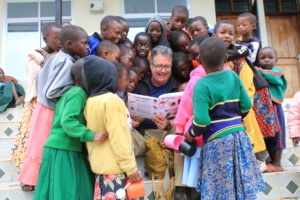
Fill the form below for more volunteer abroad information, or call: (800) 487-1074
As a private, non-profit organization independent from government and religious funding, Global Volunteers’ programs are financed almost entirely by volunteer contributions. This is important because our community partners cannot afford the “open market” costs of the services and materials we provide. Your tax-deductible service program contribution pays your expenses in the partner community. These include your food, lodging, work site transportation, program materials, team leadership, emergency evacuation insurance, and administrative costs. In addition, we provide supplemental financing to help meet our host’s many, on-going and special needs.
We’re unable to provide any assistance in obtaining your passport or visa. You'll need a passport to travel abroad and for some countries, you’ll need a visa. Please keep this in mind when planning your travel schedule. If you live outside the U.S., you may have additional restrictions for participating on U.S. programs.
- Boards of Directors and Advisors
- US and International Staff
- Our Beginnings
- Community Partners
- Collaborators
- Impact and Outcomes of Service
- Donate to Global Volunteers
- Donate to a Volunteer
- DEIB policy
- Your Service Program Contribution
- Discounts & Fundraising
- Alumni Center
- Volunteer Vacation FAQs
- Privacy Policy
- Agreements and Accountability
- Travel Risks
- Volunteer Portal
JOIN OUR EMAIL LIST!
Subscribe to receive updates, new blog posts, and inspiring stories from our work around the world.
Email Address
How It Works
- Destinations
- Project Focus
Animals & Wildlife
- Premium Programs New
- Travel Guide Free
Choose a language
Choose a currency.
Volunteer World is the World's leading comparison platform for volunteer abroad programs. We guide you through a safe and easy application process. Planning your next meaningful trip with Volunteer World gives you access to:
Your Extra Layer of Security
Quality assurance.
High ethical standards & transparent social impact
Flex Option
Change your reservation at no extra costs
Refund Guarantee
We refund your fees if your project cancels your trip
Support & Mediation
We cover your back no matter what happens
Enjoy our services for dedicated volunteers!
All program fees are charged directly by your volunteer organization.
Best Destinations 2024
South africa, more countries, asian elephants, north & central america, dominican republic, united states, south america, europe & oceania, western africa, northern africa, eastern africa, middle africa, southern africa, middle east, southern asia, eastern asia, south korea, south east asia, philippines, north america, central america, el salvador, latin america, buenos aires, amazon rainforest, the caribbean, bosnia and herzegovina, russian federation, united kingdom, great barrier reef, french polynesia, new zealand, papua new guinea, trending topics 2024, marine conservation, marine life, teaching english, suitable for, high school, over 50s & seniors, mission trips (short-term), low budgets, internships abroad, medical training, veterinary training, biology & environment, business & marketing, environment & conservation, farming & agriculture, round trips & camps, humanitarian aid, childcare & daycare support, medical mission trips, special needs & disabilities, community services, building & construction, community development, culture & arts, human & women's rights, ngo management, wildlife conservation, animal shelter, sloth sanctuary, animal protection, great white sharks, scuba diving, coral reefs, sea turtles, whale sharks, african wildlife, african elephants, volunteering abroad made easy.
Explore 1,600+ projects abroad & find your best volunteer program
Your benefits
What is volunteer world.
Volunteer World is the world's leading volunteering platform. We show you how to volunteer abroad! Search & compare the best international volunteer programs offered by volunteer organizations and local NGOs with just a few clicks.
Trending topics & value destinations for 2024
Why book with volunteer world.
Volunteer World is the world's leading comparison platform for international volunteer opportunities. We guide you through a safe and easy application process - including all necessary payments. Planning your next meaningful trip with Volunteer World gives you access to our:
Discover a world full of opportunities
Volunteer world is accessible to volunteers worldwide, get involved to make an impact.
Volunteer World stands out through our expertise in the sustainable travel industry:
- Transparency - Achieving transparency in costs and services while pursuing the UN Sustainable Development Goals and creating a positive change in the industry.
- Ethical standards - Quality checking partner volunteer organizations to guarantee that they fulfill our standards for humanitarian support and animal protection.
- Social impact - Empowering local volunteer projects and international volunteer organizations to recruit qualified and motivated volunteers worldwide.
This level of quality gives international volunteers easy access to volunteer organizations while saving time, effort and costs.
We ❤ this comparison platform
Marie-Laurence (21)
Canadian volunteer in Costa Rica
I learned a lot during this project. It was awesome; I would go back anytime. The accommodation is great, we are just in front of the beach and it's nice to be really disconnected. Seeing my first turtle made me so happy.
Rigmor (17)
Danish volunteer in South Africa
Never had I ever thought this trip would be so amazing! I can't believe it's been 4 weeks at the wildlife reserve already, time flies when you're in good company! No words will ever be enough to explain how much I enjoyed it!
Brad Brasseur (32)
Canadian Volunteer in Peru
Education gives people in poverty the skills to not only earn money but also improve their basic daily knowledge. It is a sustainable tool that does not only help someone for one day but rather a lifetime and can be passed down to generations.
Find your Best International Volunteer Program
"I love to travel and want to do something meaningful. I just don't know where to start...."
Does that sound familiar? It did to us.
We believe humans are happiest when they're part of something greater. This is why we built the Volunteer World platform, to fulfill your desire for meaningful travel and worldwide volunteering.
We designed a platform that makes it easy to search and compare volunteer abroad opportunities. We think world volunteering has never been so easy.
When you book a volunteer program with Volunteer World, you're also getting an extra layer of security. Not only will you be sure that your volunteer project meets ethical standards, but Volunteer world also provides you with financial security, a flex-option and customer support to help you navigate the world of volunteering.
Ethical Standards and Social Transparency
We created a platform to search and compare volunteer projects abroad , but we also wanted to guarantee our international volunteers an ethical volunteer abroad experience.
This is why all our partners go through an extensive screening process that complies with our ethical standards and requirements for social transparency.
Volunteer World works with the most trustworthy volunteer organizations, e.g. Global Vision International (GVI), Plan My Gap Year, Gapforce, The Great Projects, Love Volunteers, Global Nomadic, Global Vision International, and Volunteering Solutions.
Financial Security
When you apply as a program volunteer with Volunteer World, you're also adding an extra layer of financial security. We have a money-back guarantee if your volunteer abroad program cancels, and as the icing on the cake, we also guarantee the best price!
Flexibility and Support
Volunteer World lets you keep your volunteer experience flexible. If you booked a volunteer abroad project for wildlife conservation in South Africa but then decided you'd rather save sea turtles in Costa Rica, no problem. You can switch programs at no extra cost. You're also not alone during your search for volunteer work abroad. Our customer support team is there to help you with any questions about our volunteer abroad projects and guide you through the entire process. We want your volunteer abroad experience to be as smooth as possible.
Our Volunteer Abroad Programs
In 2024, Volunteer World offers more than 1,600 volunteer programs in 84 countries. Whether you're excited about marine conservation in Madagascar or dream of teaching soccer in South Africa, you'll find these international volunteer opportunities along with many others on our platform.
Conservation
If you're a water lover, join a program for marine life conservation with whales, dolphins, sharks or sea turtles. Start dreaming of marine conservation destinations like Costa Rica, South Africa, Belize, the Philippines, and Spain.
If you prefer keeping things dry, apply for one of the wildlife conservation programs with lions, rhinos, pandas, orangutans or gorillas. Volunteers, you're in for an extraordinary experience. Programs in Africa, Australia, Latin America and South-East Asia are waiting for you.
Be sure to contact us for the best program information on elephant sanctuaries, sloths rescue centers, and street animal shelters.
Environment
Volunteers concerned about climate change can support reforestation efforts in New Zealand, fight the war on waste in Portugal or learn all about organic farming in Kenya.
With over 100 environmental conservation programs, nature lovers will find volunteer jobs that will make an impact on the environment and the local community.
If you're a people person, volunteer in the world for one of the community service programs. Human rights programs, construction projects, culture, and the arts, or NGO management initiatives, all need volunteers. Your help is crucial to support these international volunteer programs and encourage cultural interchange.
Humanitarian Aid and Teaching
Are you a teacher who's looking for international teaching experience or an aspiring teacher who wants to volunteer and get their TEFL? Explore and teach in some of the most exotic hotspots in Asia or South America. Teaching is the best way to increase future opportunities within a community.
If you're a medical professional or a medical student, join one of the many medical volunteer programs spread across South America, Africa, and Asia. Healthcare providers and childcare professionals are always in high demand. Gain volunteer experience abroad in humanitarian aid and start changing lives.
Volunteer Abroad Programs for Everyone
Whether you're over 50, a student, a medical professional, on a budget, or prefer a luxury volunteer and travel program, we'll help you find the perfect volunteer opportunities overseas.
Volunteer World offers programs for volunteers of all ages. Some programs are happy to welcome families with young children while other programs have a minimum age requirement of 18 years. Seniors, don't hold back, your work and life experience are extremely valuable to volunteer projects abroad.
Most programs have a minimum age requirement of 18 years. In some cases, projects will accept applications from high school volunteers from the age of 15.
University students can count their volunteering experience as an internship abroad . Gain hands-on international work experience and learn things you'll never get out of a textbook. Whether you're a medical student, studying business or doing veterinary training, there are plenty of internship programs you can join. Help the local community and get invaluable work experience abroad.
Group Volunteering
If you think volunteering abroad would be the perfect team-building experience, take a look at our group volunteering programs . There's nothing that boosts the team-spirit like doing volunteer work together. Apply for a program together in wildlife conservation or community service in Africa or Asia!
Short-term Volunteering
If you think you don't have enough time for a volunteer trip, don't worry, we've even got your back on this one. There are several short-term volunteering abroad options. Be sure to check out our short-term mission trips .
How to Volunteer Abroad in 2024?
Select where you want to travel abroad or what you want to do. See all our opportunities for worldwide volunteering.
We made it easy for you to compare prices, ratings, and reviews of all our programs so you can make a well-informed decision about your next international volunteering program.
If you get lost in all the programs and don't know what to choose, don't worry, we've got your back. We will answer your questions about your volunteer projects abroad and guide you through the secure application process.
It doesn't end there. Once you start your volunteer abroad experience, we're here to support and mediate with the volunteer organization if things don't go according to plan.
With Volunteer World, you're never alone while volunteering abroad.
Are you ready for your Meaningful Travel Experience?
Are you ready for your worldwide volunteering adventure? Let Volunteer World help you find the best international volunteer program for you.
South Africa, Thailand, Costa Rica, and Peru may be the top volunteer abroad destinations but there are 80 others to choose from!
Teaching, marine conservation, and animal protection may be the most popular volunteer projects but there are 60 other volunteer categories that need your support.
Choose from more than 1,600 volunteer programs in 84 countries and start your meaningful travel experience today!
Trusted by 1,000+ international charities and volunteer organizations
Best projects abroad.
Call us on: (+1) 619 320 2424
Request Info
Volunteer Abroad with a Responsible Volunteering Organization
Join our overseas volunteer programs and become part of ongoing efforts to empower developing communities
Are you seeking an opportunity to travel the world? Are you interested in cultivating meaningful experiences with new friends? Would you like to learn new skills and create positive changes around the world? Then Projects Abroad is ready for you!
Here at Projects Abroad, we make your travel dreams come true. With 30 years experience in volunteer abroad programs, we provide the gold standard in international volunteering so you can participate in something you’re truly passionate about, like:
- Support children’s education
- Protect endangered wildlife and ecosystems
- Provide medical services to communities without access to healthcare
- Advocate for human rights and facilitate equal opportunity for all people
Volunteering overseas will elevate your travel experience to its highest potential. Volunteer work abroad will contribute to both your own personal growth and the development of communities around the world. From Africa to Asia to South America, our volunteer abroad programs take place in breathtaking destinations, that will enrich your sense of adventure and sense of purpose.
Why choose Projects Abroad?
Projects Abroad is the industry leader in safe , sustainable and hassle-free volunteer projects.
We manage everything from airport transfer to lodging and meals, so your energy can focus on your volunteering experience. From the moment you arrive in your chosen destination, we’ll be available to ensure your trip is safe, secure, and unforgettable.
Our volunteer travel programs are culturally-rich, where often you’ll live with a host family and work alongside local people. You’ll be working with other volunteers from around the world where you will gain practical skills and first-hand insight into global issues. It’s a way for you to make a real difference in today’s world, while visiting new destinations and making new friends.
As an industry leader for volunteer abroad opportunities, we hold our programs to a strict ethical standard . We have a responsibility toward the people and organizations we work with, as well as our staff and volunteers like you, and we hold their - and your - trust in high regard.
It’s why we champion Responsible Volunteer Travel , and work with an extensive checklist that guides all of our efforts in developing countries. You’ll be working towards achieving long-term goals guided by the UN Sustainable Development Goals. These goals address needs identified by local community members and the organizations we partner with, and they rely on your contributions to create a lasting impact.
We’re committed to making the world a better place, one volunteer at a time. All we need is you to make a difference!
Options for Global Volunteer Opportunities
View specific types of projects using the links below:

Childcare Volunteer Opportunities Abroad
Volunteer abroad to support children in developing countries

Medical Internships Abroad
Get first-hand medical experience interning in disadvantaged communities.

Animal Conservation Volunteering Abroad
Work to protect wildlife in marine, rainforest, or mountain environments around the world

Volunteer English Teaching Abroad
Make a positive impact on the lives of students in developing nations

Law and Human Rights Internship Opportunities Abroad
Learn about legal services, human rights, and social justice in challenging environments

Volunteer Building Work Abroad
Work in developing countries to build infrastructure and important buildings for communities.

Volunteer Teaching Sports Abroad
Coach young people in disadvantaged communities and share your passion for sport

Volunteer Archaeology Digs Abroad
Work on archaeological sites alongside experienced professionals

International Internships
Gain practical work experience and build your CV in areas such as Business, Medicine, and Journalism.

Cultural Immersion & Exchange Programs
Join a cultural exchange programme overseas and experience a different way of life
What are the best volunteer abroad programs for me?
We have numerous volunteer abroad programs for you to choose from, and each one is aligned with our Responsible Volunteer Travel checklist. Read on below for more details on the voluntary projects abroad we offer.
Animal Volunteer Programs Abroad
We have several Conservation Projects that are perfect for animal volunteer opportunities abroad. And where can our Conservation Projects take you? Well, anywhere!
Your interest in wildlife volunteer opportunities abroad can take you to the wild savannas of Kenya in East Africa, or to touch the sky at the top of the Himalayan Mountains in Nepal. Here are our most popular land-based Wildlife Conservation Projects:
- Animal Rehab in the Amazon Rainforest, Peru
- Giraffe & Lion Conservation in Kenya
- Rhino Conservation Expedition in Nepal
Giant Tortoise & Sea Lion Conservation in the Galapagos Islands
- Africa’s Big 5 and Wilderness Conservation in Botswana
Whichever environmental volunteering opportunity you choose, you can rest assured that your experience will be an ethical one. All of our wildlife conservation volunteer abroad programs are guided by a comprehensive Animal Protection Policy . The same policy also guides our work at Veterinary Medicine & Animal Care Projects .
Marine Conservation Volunteer Abroad
Explore our oceans as a marine conservation volunteer, and help in the fight against global issues like plastic pollution and coral bleaching. Choose from projects like:
- Diving & Coral Reef Protection in Thailand
- Shark Conservation Volunteering in Fiji
- Sea Turtle Conservation in Mexico
Community Development Volunteer Opportunities
We have a range of community development volunteer opportunities overseas. If you want to help empower communities, and work and live with local people, you can choose from programs like:
Volunteering Opportunities with Children
Our Childcare Projects are built around a community-based care system. We don’t work in orphanages, nor do we support volunteering at an orphanage. We strongly believe that stable family environments are best for the children we work with. If you’re interested in orphanage volunteer opportunities, we encourage you to read more about it .
By doing volunteering work with children, you can support communities in need and give kids the skills they need to thrive. Your focus will be on Early Childhood Development, and teaching things like motor skills and teamwork.
All of the work you do goes into our Global Impact Database , which tracks the progress each child makes, to ensure long-term impact.
Read more about volunteering abroad with children .
Volunteer Teaching Abroad
Join a teach abroad program and empower young people around the world. By getting involved with education in developing countries, you’ll also support the work of local teachers.
Education is essential for breaking down the barriers of poverty and inequality, which is why Teaching Projects are a core focus for Projects Abroad in every country we work in. Like our Childcare Projects, we also have a targeted approach:
- Each project has a Management Plan , so we can work toward a goal and measure our impact for the long-term
- Our Child Protection Policy ensures that the children we work with are protected, and our processes are ethical
We don’t require you to have previous teaching experience, as most of our volunteers work alongside local teachers as assistants. We do welcome qualified teachers interested in volunteer teaching abroad.
Read more about our teach abroad programs .
Clinical Volunteering Abroad
Promoting healthcare is another way we help empower the communities we work with. With the help of volunteers like you, we improve access to basic medical services by doing health checks and raising awareness of diseases. At the same time, you’ll gain clinical work experience.
We hold our Medicine & Healthcare Projects to a high ethical standard, and we follow strict guidelines and a code of conduct . On our volunteer opportunities for pre-med students, you won’t be allowed to do work you’re not qualified for, and you’ll always be supervised by a medical professional.
We offer a range of specialisms for medical volunteers, including:
- General Medicine
- Public Health
See a full list of the specialisms we offer for clinical volunteering .
Building Volunteering Abroad
Our Building Projects work toward providing disadvantaged communities with the infrastructure they need. This is because a lack of infrastructure can hold people back from fulfilling their potential. Children need safe spaces at school to learn, modern toilets prevent disease and improve hygiene, and shelter fulfills a basic human need.
Go overseas as a construction volunteer, and learn about the infrastructure challenges people face. At the same time, we’ll teach you everything you need to know to do the work, and you’ll be supervised by professionals. You’ll also be able to see immediate physical results from your work!
Read more about building volunteering abroad .
Sports Volunteering Abroad
Our sports volunteer opportunities are about more than you getting outdoors and sharing your passion for games like soccer. Through sports, you’ll do things like:
- Give disadvantaged children access to coaching
- Teach the importance of living a healthy lifestyle and how to keep fit
- Help children learn about teamwork and improve their self-confidence
- Work with us to provide a safe space for young people to learn and grow
From running physical education classes in Peru, to helping kids learn to swim and surf at a white-sand beach in Cape Town, South Africa, there are plenty of sports coaching programs for you to choose from.
Read more about sports volunteering abroad .
Worried about not having enough experience for volunteering overseas programs, or what you can accomplish if you only have a short time available? Read our popular blog articles about short term volunteering abroad and overseas volunteering without experience .
Interested in gaining professional work experience?
If you want to go overseas to add professional work experience abroad to your resume, we recommend our internships abroad . You can learn new skills in areas like Law & Human Rights, Microfinance, and more.
Types of volunteer trips abroad
Our Project Experts are here to help you choose a volunteer trip that’s the best fit for you. Some of our overseas volunteer programs will be more suited for you than others. Here are the different types of volunteer trips we offer.
Volunteer Abroad Programs for High School Students
At Projects Abroad, we believe in empowering young people from a young age to help others. This is why we designed a program specifically for students ages 15-18, our High School Specials .
Each High School Special is built around the idea of safe, hassle-free volunteer travel for teenagers. Everything is group-based, so you’ll live and work with people your age for the duration of your trip.
This is what our volunteer abroad programs for students include:
- A schedule packed with age-appropriate volunteering activities, geared toward experiential education
- Regular social and cultural activities, like cooking classes and quiz nights
- 24/7 support and guidance from in-country staff, so you’ll never be left on your own
- An exciting weekend trip with our staff, filled with guided exploration and fun
Our High School Specials help you gain independence while you explore the world in a safe environment. They fit perfectly into the summer break, and run from anywhere between 1-4 weeks, mainly in June, July, and August.
Want to learn more about our high school volunteer abroad programs? Read our popular blogs about what the journey of a High School Special volunteer is really like , and what our best volunteer abroad programs for teenagers are .
Volunteering Abroad for College Students
As a student volunteering with Projects Abroad, you can do hands-on work that adds real value to your studies. Our internships and volunteering opportunities for college students are built around experiential learning. You get to do things like:
- Work directly with professionals on the job, like doctors or teachers
- Give back through an ethical and sustainable volunteer program
- Add relevant, practical work experience to your resume
- Work with diverse groups of people around the world
- Hone global skills like communication, organization, and time management
Our best volunteer trips for college students are our Flexi Trips , which give you the space to work independently while still enjoying support from our full-time staff. If you want to work with a group your age and have an organized schedule, we recommend our Team Trips .
Gap Year Programs Abroad
International volunteering is an increasingly popular option for students looking to learn and make an impact with their gap year abroad. With Projects Abroad, you can choose to volunteer overseas for a full year, or for just part of your gap year.
We specialize in planning gap years, and we offer a hassle-free and completely flexible experience. You can choose:
- What kind of work you want to do
- Which country you want to go to
- How long you want to travel, and your own start and end dates
You can customize your gap year abroad by combining volunteer trips or internships in different countries , or join our pre-arranged and all-inclusive Global Gap Program .
Read more about gap year volunteering .
Professional Volunteering Abroad
Looking for a career break with a difference? Interested in breaking away from typical tourist activities for your next holiday? Volunteer abroad as a professional, and use your skills to actively make a difference while you travel and explore.
Our Flexi Trips are perfect for working vacations and adults looking for volunteer travel programs. They give you independence and flexibility, while still giving you structure and support if you need it.
We can match you to the project that would benefit most from your skills and experience, and also help you share that with local people through training. You can also volunteer as a retired professional with us.
Learn more about our approach to volunteering abroad for professionals .
Volunteer Opportunities for over 50s and Seniors
Through our volunteer abroad programs, you can use your skills, knowledge, and life experience to make an impact in developing countries, no matter your age.
Most of our volunteer programs are a great fit for those in their 50s, 60s, and older. If you want to travel more independently, we recommend Flexi Trips, which we can then tailor specifically to your interests.
Interested in travelling with a group your age? We also offer an organised group volunteer trip specially designed for older adults and retirees, our Grown-up Specials . These trips run over set dates throughout the year, for two weeks at a time.
Read more about our best volunteer abroad programs for older adults , and the reasons why you should volunteer abroad during retirement .
Family Volunteer Opportunities Abroad
Do something exciting and different for your next family vacation, and volunteer as a family. Many of our volunteer projects are family-friendly, and our hassle-free approach takes all the stress out of planning a trip!
You can volunteer with your partner, children, and other members of your family. No need to worry about leaving little ones at home, we can accept children as young as four years-old on our volunteer programs. Read more about how our volunteering opportunities for families work .
Want to get a deeper insight into what volunteering as a family with Projects Abroad is really like? Read our popular blog about a family who turned the world into their classroom for a few weeks .
Winter and Summer Volunteering Abroad
Summer Volunteer Programs Abroad
Our projects are a great fit for anyone who wants to make the most of their break with summer volunteering abroad. You can travel on a volunteer vacation with us at any point over June, July, or August, from as little as one week.
If you want to choose your own dates for to volunteer abroad for the summer, then we recommend joining a Flexi Trip. You can travel over pre-set dates in the summer if you want to join a group, either on a High School Special or Team Trip.
Our summer volunteering opportunities are popular, especially for high school students, recent grads, and university students. We recommend applying early to make sure you get a spot on the project you want. This is especially important if you’re applying for a trip with fixed dates, as those projects fill up quickly!
Winter Break Volunteer Programs
Celebrate the spirit of giving by giving back to communities who need extra support! With Projects Abroad, you can volunteer overseas for the holidays through one of our Team Trips.
Our Team Trips take place on set dates throughout the year, and several of these trips have dates through the holiday season. Learn more about winter break volunteering abroad .
Overseas volunteer work caters to people from all walks of life, no matter what your motivation is for volunteering abroad. No matter your age, level of experience, or where you’re from, you can make a difference with Projects Abroad!
Where can I volunteer abroad?
If you’re asking yourself “Where should I volunteer abroad?” we can help you find the answer!
Choosing where to go is tough, especially with so many places to choose from. Your destination depends on what you want to get out of the experience, and we can help you pin that down. Our Project Experts are always available to help you decide where to go. You can also read more about where we work below.
Africa Volunteer Programs
In the continent of Africa, we work in several countries. You can volunteer with wildlife, work with children, and more in countries like:
- South Africa
Asia Volunteer Programs
Experience a different side of Asia when you volunteer abroad and immerse yourself in the local community and culture. You can protect coral reefs, teach English, and more in countries such as:
- Philippines
South America Volunteer Opportunities
We have volunteer opportunities in South America in three different countries:
Interested in volunteering in other Latin American countries? We also offer projects in Mexico and Jamaica .
Europe Volunteer Programs
Travel to Europe and actively make a difference by volunteering in Romania . In Romania, we have several projects, from digging into the past on our Archeology Project, to working with children at a kindergarten.
Torn between different countries? Combine multiple countries and projects for the ultimate volunteering abroad experience!
What do you gain from volunteering?
You may be asking yourself, “What are the advantages of volunteering?” There are numerous benefits of volunteering abroad. You can do things like:
- Learn new skills
- Get volunteer work experience
- Add global competencies like communication to your resume
- Grow as a person and learn about the world firsthand
- Step out of your comfort zone and challenge yourself
- Make a tangible difference at a service program
- Make lifelong friends and become part of our alumni network
In addition, the skills you gain from volunteering abroad can also help you improve your employability .
Ultimately, the benefits of volunteering abroad also depend on you, and what you want to get out of the experience. Read our blog to learn more about what you stand to gain from international volunteering .
Common questions about volunteering abroad
We get a lot of questions about volunteering overseas, which we answer for you below.
Is volunteering abroad safe?
At Projects Abroad, your safety is our number one priority. We have several protocols in place to ensure your time abroad is safe, productive, and enjoyable, such as:
- All of our staff are screened and trained to high standards
- Our in-country staff are available 24/7 to help you with any problems that arise, or if you fall ill
- Our host families are carefully chosen to ensure security, comfort, and friendliness
- We carry out thorough risk assessments to ensure that all of the countries we work in are safe and politically stable
- We have an in-house medical advisor who is available to consult with you and your GP before you leave, so you can discuss any health concerns to make sure you're feeling confident about your upcoming volunteer trip
Want to know more about how we keep our volunteers abroad safe? Read our blog that explains all the ways we keep you safe in greater detail .
How much does it cost to volunteer abroad?
All volunteer abroad programs with reputable organizations come with a cost. For Projects Abroad, we charge a fee because we’re an independent organization that doesn’t rely on fundraising or government funding to achieve sustainable, long-term goals. We get all of our funding from the fees our participants pay.
In exchange for paying to volunteer in other countries, we provide you with a world-class, hassle-free experience, with all the support you need. You can also be 100% certain you are part of an ethical, guided program that makes an actual difference on the ground.
We’re clear about what our program fees cover, and there are no hidden costs. Read more about how our prices work, and how your program fees are used .
Can I volunteer abroad for free?
We often get asked if we offer free volunteer trips. The short answer is “no”, and there are several reasons why it’s important to pay for volunteering abroad. Read more about why we ask our volunteers to pay a fee . If you still have questions after you read our article, get in touch! Our Project Experts are to help and answer your questions.
How can I raise money to volunteer abroad?
We understand that the cost of volunteer abroad programs can be daunting, and we have lots of advice to help you achieve your fundraising goal .
With us, you can:
- Set up a personal fundraising page through your own MyProjectsAbroad account
- Check out our Fundraising Guide for tips and tricks on raising the money you need
Which countries need volunteers?
Simply put, all of the countries we work in need volunteers. It’s the reason why we’re there in the first place!
Wherever you choose to travel with us, you can be assured there’s a real need that you’ll be helping to address. It’s the way we’ve structured our projects, and it’s reflected in our approach to responsible volunteer travel. Every volunteer project that you read about on our website will explain why we’re there, and what goals we’re working towards.
How old do you have to be to volunteer abroad?
The majority of our volunteer abroad programs are open to anyone over the age of 16. For younger volunteers, we offer specialized programs with constant support and supervision, ideal for first-time travelers.
You may be asking yourself, “ Am I too old to volunteer abroad? ” Our answer is: not at all! Our programs have no official age limit. You can join any volunteer project as long as you meet the requirements and can do the work.
What has motivated you to volunteer abroad?
This is an important question, and it’s something we feel our alumni are best placed to answer! It’s often a life-changing experience, and each of our alumni was motivated by different reasons to volunteer around the world. You can read reviews by our alumni , or contact us to see if we can put you in touch with former volunteers.
Can I volunteer abroad without a degree?
At Projects Abroad, it’s possible to volunteer abroad without a degree. At each volunteer project, you work side-by-side with experienced professionals to guide you, and we provide extensive training. Your work will always be appropriate for your age and skill level. We’ll never ask you to anything you’re not comfortable with or trained to do.
Do you need a visa to volunteer abroad?
It depends on where you want to volunteer abroad, and for how long. We have an in-house visa team who can help you with this process once you’ve applied. They have all the up-to-date visa information you need, and can guide you through the visa process.
How to volunteer overseas
Interested in learning more about how to be a volunteer overseas? You can read about how to start volunteering , or look at more detailed information below about our opportunities for:
- College Students
- Students on Spring Break
- Recent Graduates
- Students interested in Service Learning
- Older Volunteers
You can also read more about voluntourism , another way of talking about how to combine volunteering around the world with travel, and our winter volunteer programs .
Interested in traveling with us on short notice? Read more about last minute volunteering abroad .
Choose a Volunteer Program
1- 3 of 92 Projects

- Price: $3,000 USD for 1 week
- Extra Weeks: $500 USD
- Start Date: Anytime
- Minimum Duration: 1 week
- Ages: 16 or over

Gap Project: Peru & Galapagos Islands
- Price: $7,895 USD for 8 weeks
- Extra Weeks: $300 USD
- Start Date: Throughout the year
- Minimum Duration: 8 weeks
- Ages: 17-24

Rhino Conservation in Nepal
- Price: $3,140 USD for 2 weeks
- Extra Weeks: $470 USD
- Minimum Duration: 2 weeks
Our accreditations

Want to Make a Meaningful Difference and Travel the World – But Can't Afford It?
Join thousands of volunteers on affordable programs helping to change the world one family at a time.
Make a positive difference to people's lives in disadvantaged areas. Guaranteed lowest program fees in the US – starting at $140 per week. 18 countries, 200 projects and thousands of happy volunteers. Life-changing experiences for volunteers AND aid recipients.
Global Crossroad – Meaningful Volunteering Abroad

Global Crossroad is one of the leading volunteer abroad organizations in the world. Since 2003, we have been running the most affordable and highly rated volunteering abroad programs , internship abroad opportunities , summer escapes , mini- adventures , hands on medical volunteer programs , alternative spring break trips , family volunteering projects , and high school and college group programs in 18 countries across Asia, Latin America, and Africa. Our programs have been trusted by thousands of volunteers for well over a decade.
During your chosen program you will receive unparalleled in-country support from experienced staff, which will ensure your volunteer experience is safe, life changing, worthwhile, and fun. We invite you to join us, if you are thinking of making a commitment to positively impacting the world while abroad without costs being through the roof.
Featured Trips & Highlights

Family Volunteering
Embark on a family volunteering trip for an experience of a lifetime

Hands on Medical
Join hands-on medical program to ensure healthcare to poor people

Summer Volunteer
Opt for our summer volunteer program to broaden your horizon

Alternative Spring Break
Partake in alternative spring break program and be inspired

Mini- Volunteer & Travel
Set out on a mini venture and explore new countries and culture

Wildlife Volunteer
Join wildlife volunteering project for once-in-a-life time experience

High School Volunteer
Embrace education and exploration in high school volunteering program

College Group Volunteer
Gain valuable life lessons in college volunteering program
Volunteer Abroad Guide
Download your free volunteer abroad guide ebook.
This comprehensive Volunteer Abroad Guide is jam-packed with comprehensive information so you can begin your life-changing adventure without a hitch. From getting started to living overseas and then returning home, you’ll discover all the guidance you need to ensure it’s a seamless process from the beginning to end.

Volunteer Abroad
- Getting Started
- How to Prepare
- Your Advenure Begins
- Closing and Feedback
Are you interesting in volunteering abroad, but aren’t sure where to start? Do you have questions about abroad volunteering programs, but don’t know how to find quick answers?
My name is Rachel, and I am passionate about service trips abroad. I first volunteered in 2007, and the experience changed my life.
Since then I have volunteered two other times and moved to Costa Rica. That being said, I have been in your shoes and hope to help you on your own volunteer journey by laying out a step-by-step guide to volunteering abroad.
In this volunteering guide using my own volunteering experience, I will teach you everything you need to know about abroad volunteering so you can rest assured knowing that your experience will be safe, memorable, and meaningful .
The guide starts from learning about volunteer abroad opportunities and teaches through the final stage of project completion and giving feedback. It will cover following topics:
Continue reading...
- Chapter 1: Understanding volunteer abroad programs
- What is volunteering abroad?
Why volunteer abroad?
- What are some of the most popular volunteer abroad destinations?
- What are some of the most popular volunteer abroad projects?
- Chapter 2: Getting started on your volunteer abroad journey
Is volunteering abroad really for me?
- What kind of skills is required to volunteer abroad?
- How do I know which country and project are the right fit for me?
- How do I select the best volunteer abroad organization?
- How much does it cost to volunteer abroad?
Is there any way to reduce the cost?
- What kind of accommodations can I expect in my host country?
- What’s it like staying with a host family?
- Will I have a support system when I arrive?
- How and when do I need to apply?
- Chapter 3: How to prepare for your volunteer abroad trip
How and when should I book my flight?
- What type of visa do I need?
Do I need any vaccinations?
- Should I purchase travel insurance?
- Do I need to bring extra money?
What do I need to pack?
What information should i have before departure.
- Chapter 4: Your adventure begins
- What can I expect upon arrival to my host country?
- What is my daily schedule like?
- What are some things I can do to make my experience rewarding?
How can I stay safe while volunteering abroad?
- What is culture shock and how can I prepare for it?
- Chapter 5: Completing your project and returning home
- How would you describe the life of an international volunteer?
- What are some common issues other volunteers have experienced?
What are some frequently asked questions?
Closing with a few final words.
Let’s begin with something simple.
Chapter 1: Understanding Volunteer abroad
What is volunteering abroad and what does it entail.
Volunteer abroad trip is an international humanitarian trip where you (or someone with passion for serving others) travel to a developing country and contribute your skills and experience for the benefit of a community project.
Most abroad experiences will allow you to volunteer for one week or more, and the majority require that you pay a program fee. The volunteer organization of your choice will work with you to select a program that meets your needs and interests. They should also give you support throughout your experience.
So, now that you understand what an abroad volunteering trip is, you may be wondering why people want to volunteer overseas , and whether it is worth the time and energy.
Many people volunteer for a variety of reasons. The first time I volunteered, I worked with children’s camps in Uruguay. My motivation for joining the program was to travel to another country, and volunteering seemed like a safe and affordable way to do so. My experience was well worth the energy I invested because it defined my career path and influenced my personal perspectives.
Volunteering abroad may seem like a daunting concept, but planning a trip is extremely worthwhile. This experience can be a life-changing adventure that teaches you invaluable lessons. Your time abroad will make a positive impact on individuals in local communities and allow you to embrace authentic culture that most tourists never experience.
Although everyone has their own reason for joining volunteer abroad programs, I’ve created a list of benefits that may motivate you to embark on your own volunteer excursion:
- You will positively impact individual’s lives and better the overall community where you work
- Working alongside community members will make you more proficient in a foreign language , opening doors for future opportunities.
- You will create adventurous opportunities for yourself by stepping into the unknown and out of your comfort zone. This will allow for personal growth and introspective clarity.
- Your project may teach you new skills or help you sharpen important proficiencies to support future work-related endeavors
- Experiencing a new culture will encourage new perspectives, increase your capacity for empathy, and make you more of a global citizen.
- Volunteering experience abroad allows you to create strong bonds with fellow volunteers or people in your project. You can establish lifelong friendships that enhance your global network.
- Donating time to a good cause and working in a team will boost your confidence, grow your support system, and make you feel happier.
No matter your reason, volunteer program abroad is a rewarding experience that will benefit you in more ways than one. It certainly did for me! If you’re captivated by the concept of volunteering now that you know how it can benefit you, the next thing you may want to think about is where you’d like to volunteer.
What are some of the most popular Volunteer abroad destinations?
Are there certain countries that have more experience with foreign volunteers? How many countries in the world offer volunteer abroad programs? Can you recommend some destinations that other people have enjoyed?
From exotic wildlife to dramatic landscapes to humble and welcoming cultures, many developing countries across the globe offer amazing experiences to international volunteers . The following are some of the most popular countries volunteers travel to:
- Volunteer in Bali
- Volunteer in Cambodia
- Volunteer in China
- Volunteer in Nepal
- Volunteer in Sri Lanka
- Volunteer in India
- Volunteer in Thailand
- Volunteer in Ghana
- Volunteer in Kenya
- Volunteer in Tanzania
- Volunteer in South Africa
- Volunteer in Zimbabwe
- Volunteer in Morocco
- Volunteer in Uganda
- Volunteer in Costa Rica
- Volunteer in Guatemala
- Volunteer in Peru
- Volunteer in Argentina
- Volunteer in Brazil
- Volunteer in Ecuador
- Volunteer in Mexico
Each of these countries offers a unique experience through its cultural identity, volunteer abroad work opportunities, and geographic location. In my time abroad, I have been to only two of these countries, but hope to visit all of them one day!
However, volunteering isn’t only about the destination…
What are some typical and well-liked volunteer projects?
If you consider volunteer abroad, you should also ask yourself what you’re passionate about. Where will you make the most impact? Where can you utilize your skills? Which projects have the highest need for volunteers? The following programs are offered in multiple countries and have had a lot of success with other volunteers.
Orphanage/Childcare Volunteer Program
Global Crossroad’s orphanage volunteer opportunity abroad offers you an incredible opportunity to make a real meaningful difference in the life of disadvantaged children. You will share your passion, care, love, and education to the destitute children. Your invaluable love and support will give these children a chance at a happy and fruitful life. Currently, Global Crossroad Volunteers offers orphanage/childcare volunteer programs in 18 countries across Asia, Africa and Latin America.
- Orphanage Volunteer Program in Nepal
- Childcare volunteer Program in Thailand
- Volunteer in Ghana Orphanage
- Volunteer in Uganda Orphanage
- Brazil Childcare Volunteer
- Volunteer in Peru Orphanage
Teaching English Volunteer Program
Volunteer teaching English abroad program is really an amazing opportunity for you to share your love and passion to the children who are deprived of quality English education. As a volunteer teacher, you will teach English in community schools and orphanages. You will help to improve English skills of the children while also planning and implementing creative extracurricular activities, like games, singing, dancing and drawing. Your strong passion and dedication will help disadvantaged children build a strong foundation for proficiency in English. We have volunteer teaching English program in 21 countries across Asia, Africa and Latin America.
- Volunteer Teaching English to Buddhist Monks in Nepal
- Volunteer Teaching English in Sri Lanka
- Kenya Volunteer Teaching
- South Africa English Teaching Volunteer Program
- Volunteer Teaching English in Argentina
- Volunteer Teaching English in Costa Rica
Medical Volunteer Program
Medical volunteer abroad programs offer you a wonderful opportunity to gain invaluable real world medical experience while working alongside the local professional nurses and doctors. It is indeed an ideal chance for those studying or pursuing a career in the field of healthcare. As a medical volunteer, you will shadow local professional team of doctors and nurses. We offer medical abroad programs in 14 countries across Asia, Africa and Latin America.
- Medical Volunteer Opportunity in India
- Cambodia Medical Volunteer Program
- Tanzania Medical Volunteer Program
- Ghana Medical Volunteer Program
- Costa Rica Medical Volunteer Program
- Peru Medical Volunteer Program
Women’s empowerment Program
Women’s empowerment volunteer abroad work is very meaningful. Your altruism and passion will help make impoverished women’s life happy and harmonious. As a volunteer, you will teach valuable crafting and business skills to underprivileged women to improve their living standard. Helping women and children in need will be an experience that will leave an unforgettable mark on your heart.
- Women’s Empowerment Program in India
- Women’s Empowerment Program in Tanzania
- Women’s Empowerment Program in Guatemala
- Teenage Mother Program in Peru
Elephant Conservation Program
This elephant conservation volunteering abroad opportunity will be a life changing experience for you. You can enjoy helping with all aspects of elephant care such as feeding, bathing and playing with the elephants. You will also help increase awareness with locals about the conservation and welfare of the elephants.
- Sri Lanka Elephant Orphanage Volunteer!
- Elephant Sanctuary Volunteer Sri Lanka!
- Volunteer in Thailand with Elephants!
Turtle Conservation Program
If you are passionate about conserving the charming sea turtle population than our turtle conservation volunteer abroad programs are an ideal option to fulfill your passion. You will work in collaboration with local conservationists to save endangered sea turtles.
- Sea Turtle Research and Conservation (Osa Peninsula)
- Caribbean Sea Turtle Conservation
- Turtle Conservation Program in Bali
- Turtle Conservation Program in Mexico
Wildlife Conservation Program
Global has been offering rewarding and meaningful animal conservation volunteering programs overseas. Whether you choose to volunteer with elephants, conserve sea turtles, or join wildlife conservation efforts in Victoria Falls, there are many incredible opportunities just waiting for you.
- BIG 5 (South Africa)
- Wildlife Care Centre (South Africa)
- Monkey Project(South Africa)
- Desert Elephant Project
- Save Our Wildlife (Namibia)
Panda Conservation Program
Global Crossroad offers exciting panda conservation volunteer opportunity in China . This program offers you an incredible chance to save endangered giant pandas while also experiencing local Chinese cultures and cuisines. You will get involved in cleaning, feeding, and caring for the Pandas.
As someone who has worked on projects in several of these categories, I can tell you from first-hand experience that these abroad volunteer projects are popular because they allow you to support local community projects in really big ways. Click on the links to learn more about each of these program types.
Chapter 2: Getting started on your volunteer journey
Talk of traveling and helping others sounds amazing, but you may be wondering
That’s a great question. Whether volunteer abroad is for you or not depends on your values, personality, and willingness to travel to a new country. People who are passionate about helping others, exploring the world, and meeting new people generally love volunteering.
If you have always wanted to travel abroad but aren’t sure you would feel comfortable enough for the experience or have concerns about volunteering in a foreign country , keep reading because the truth is that volunteer travel abroad opportunity is not for everyone.
Because of this, it is incredibly important that you make your decision to volunteer very carefully. Every time I traveled abroad to volunteer , I considered the pros and cons for at least a month before committing to a decision. Asking yourself the following questions may help determine if you should commit to an international volunteer program:
Are you passionate about a specific field?
It is important that you genuinely enjoy whatever project you support through your volunteer efforts. If you’re not sure what your passion is, volunteering abroad for a short amount of time is a great way to explore your interests.
Do you feel comfortable stepping outside of your comfort zone?
Often times we take hot water showers and constant cell service for granted. During your abroad volunteer trip, you may find yourself in a living in a situation where there is no hot water, no electricity, and no western toilet.
This is something I certainly didn’t consider on my first trip! I struggled a lot with cold water showers, and lack of communication with my family made me really homesick. I am very grateful that I only volunteered for 10 days my first time abroad because I don’t think I could have handled much more time away from family on my first international trip.
Are you flexible and open-minded?
Joining volunteer travel programs abroad means immersing yourself in a new world. You will experience different cultural norms while surrounded by a foreign language you may not understand. This can be amazingly overwhelming, especially if you are not volunteering with a group. You should be prepared to take step back and respond to situations with understanding.
Do I have sufficient funds to support this endeavor?
I wish volunteer abroad programs were free , but like all things in life - it is not. From airfare to daily meals and lodging costs, you should be sure that you have sufficient funds to support your volunteer abroad adventure. I always make a detailed budget on excel for anticipated expenses, potential tourist outings, and travel costs so I have an idea of how much I should save up before applying.
Do you like meeting new people?
You should be prepared to engage with new people on a daily basis. You will be put into a living situation where you will make friends with people from all walks of life. If you don’t like meeting new people, you may re-evaluate your motives for traveling abroad to volunteer.
If you answered ‘yes’ to many of these questions, that’s a really good indicator that you would do well in a volunteer abroad program. If have doubts about some of the points we just reviewed, take a little more time to consider how you would do while traveling and working abroad, and whether its something that would be manageable for you.
What kinds of skills are required?
How do I know if my program of interest has specific requirements? If I am under 18 , can I still participate in a program?
Many programs accept volunteers of all ages, and in general the most important requirement is that you are passionate and motivated to help people in need.
In general, there are two exceptions to this: English teaching programs sometimes require previous experience and often require that the volunteer is fluent in English. Medical volunteering work abroad requires a background in medicine or that you are at least a pre-med student.
How do you know which project and country are the right fit for you?
With so many options to choose from, how can I narrow down my selection? What type of volunteer work abroad would you advise for someone who has never traveled abroad?
Asking yourself what you’re passionate about! If you’re not sure, try and make a list of things you enjoy doing. What brings you joy? What do you like to do on the weekends? If you love talking to people and playing games, an orphanage or teaching project would suit you well since you will interact with children. If you like spending time outdoors, I would recommend looking into conservation projects . If you’ve considered going into the medical field, working with HIV/AIDS outreach or healthcare programs might benefit you the most.
With respect to selecting volunteering abroad destination, you may analyze how far you are willing to step outside of your comfort zone. Some countries may have access to certain creature comforts, whereas others may have very limited resources. Some languages may feel more familiar while others are completely foreign. Certain country’s populations have higher poverty rates and therefore a greater need for volunteers. I have always volunteered and traveled to Latin American countries because I am infatuated with Latin culture and enjoy listening to the Spanish language, even I can’t speak it proficiently.
Grab a pencil and paper and start brainstorming! List your passions on one side of the page, and then list countries you’re interested in or would feel comfortable traveling to on the other. This is a great way to get your selection process started.
Once you’ve narrowed down your choices for programs and countries, you now have to research which volunteer organizations will provide you with a good volunteer abroad experience.
How to select the best and cheap volunteer abroad organization?
Are you feeling overwhelmed by the quantity of organizations offering to facilitate your volunteer experience? Not sure how to pick out the cheap and best volunteer abroad programs and organizations from “middlemen” organizations only interested in making a profit?
Here’s a tip: don’t just type “ best volunteer abroad programs ” into Google’s search bar and go with the first company that comes up. You’ll want to do your research. This choice is very important because the organization you select will affect your safety, budget, and overall experience.
I didn’t research very thoroughly on my second trip, and I wound up paying for a low-quality experience. (I’ll tell you about that a little later in this guide…) I offer a few suggestions that will help you spot the phonies from best and cheap abroad volunteer programs & organizations:
Check the organization’s website to determine their credibility. Look for clear and accurately written information, an ‘about us’ section, and social media account communications with their followers.
Compare the program fees with other organizations. The best organization provides meaningful abroad volunteering programs at a cheap price. Also, investigate to obtain a clear idea how the company allocates your program fees . If they are taking a large portion of your fees for administration or don’t explain where your money goes, it is likely the organization is motivated by profit.
- Review the organization’s ratings and reviews and avoid organizations who get negative reviews. You can also ask the company for references or past volunteer contact information to get a direct review of the program.
- Test the organization’s communication by sending them an email or two to see how fast they reply. If they reply within 24 hours, that’s a great indicator that they most likely provide quality and professional service.
- Evaluate the volunteer abroad organization’s commitment to local causes by analyzing their community projects and the types of local organizations they partner with.
- Ask about experience. If the organization’s website doesn’t explain how many years they have been in business, they may not be reliable or not know what they’re doing.
While remembering that all volunteer organizations have their limitations, the best providers will have a good reputation with field-tested staff who care about your personal journey. They will provide a high quality volunteer abroad experience at a cheap and transparent price .
Speaking of prices, how much does it cost to volunteer abroad?
What should I expect to pay for a program fee? How much money should I expect to spend outside of my program? Why there are only a few cheap volunteer abroad programs available? Why is volunteering so expensive when you’re helping people?
While you may hope that your volunteer efforts will give you free room and board, many developing countries just don’t have the means to donate resources in that way. You should become familiar with all of the potential expenses before committing to a volunteer abroad adventure and understand that the amount of money you pay depends on a multitude of factors. These include the country you plan to visit, the program type you’re interested in, and how long you plan to stay. Specialized programs (such as medical or dental work) in countries where poverty rates are low tend to be more expensive than more general programs (working with orphans or in conservation) in very poor countries.
The cheap abroad volunteer opportunity cost about $200 for two weeks whereas expensive programs cost about $3000. These expenses include lodging, meals, a project donation, supervision, and more and tend to be covered in your program fee. The best organizations will insist that the volunteer pay their host families and project donation directly, so that they know for sure the money is going to people who need it. Many organizations also ask that you pay a registration fee, which generally supports the volunteer organizations’ administrative costs including things like advertising, utilities, rent, employee salaries, and other business expenses.
Besides these abroad volunteer opportunity fees which cover your project you should also plan to invest money in airfare and travel expenses, vaccinations , insurance, climate appropriate clothing and footwear, travel gear, and other personal expenses such as buying souvenirs or visiting tourist attractions. We’ll explain a bit more about these details in the next chapter.
Volunteer organizations do not usually offer grants or discounts to volunteers because their fees are dependent on the number of volunteers they have. Most organizations are NGOs, meaning that they don’t receive government funding and depend solely on volunteer money.
Are you concerned about extra costs you may not anticipate up front? If you want to know how you can be frugal abroad, let me tell you about how you can either raise money or reduce the cost of your volunteer abroad experience.
- Use a spreadsheet to plan a detailed budget ahead of time. This can help you understand where your money will go. Tracking your money as you travel will also help you spend money mindfully.
- Research local currency and be prepared to do math when purchasing so you understand how much money you are spending.
- Volunteering abroad during off-season. Airplane tickets tend to be cheaper!
- Check to see if vaccinations are covered by your health insurance or if there are any free or low-cost clinics in your immediate area.
- Limit personal spending including snacks, souvenirs, eating out, personal travel, going out on the town, etc. If you want to take full advantage of being abroad and don’t like the idea of limiting your personal funds, that’s okay! Just make sure to plan a bigger budget.
- Start a fundraising campaign or reach out to family and friends for support of your volunteer travel programs abroad. If you explain your motives and intentions well, you could really save a lot of money.
OK – so you understand why you have to pay for this experience. But before you dive in further, let’s talk about the realities of what to expect from your accommodations.
What kind of lodging and meals can I expect in my host country?
Will I stay with a host family? Should I expect to buy my own food? Will I be able to do laundry and have access to the internet?
These questions are super important because your accommodations can really make or break your abroad volunteering experience, and accommodations vary greatly depending on your project location and organization.
You will probably live with a host family or in volunteer housing and receive local meals . The level of accommodation you receive really depends on local resources. Generally, these aren’t very flexible. You may not be given the choice of accommodation type you’d like to receive, you may have to share your room, and you may not be able to choose what type of food you want to eat during mealtimes.
Let’s break this down a bit, starting with lodging. Here are the three most common lodging accommodations during your volunteer opportunity abroad:
Host families: host families are local families that have been vetted (investigated and specially selected) by the volunteer organization. These locals have agreed to take in one or more volunteer and provide them with a bed and food. Since this is a very common type of lodging in volunteer abroad programs, I will explain more details about staying with a local family in the next chapter.
Volunteer House or hostel: Volunteer houses and hostels are normally communal, dorm style living arrangements where your house- or hostel-mates may or may not be volunteering.
Cabin or tent: Staying in primitive living conditions during your volunteer project abroad is not likely but may be necessary if you’re working in a very remote area. This happens most often with medical volunteers as they often aim to provide healthcare to rural communities .
In some cases, you may be able to choose between staying with a host family or staying in a hostel. I have stayed in both, and each have their own perks and drawbacks. Staying in a volunteer house or hostel allows you to create strong connections with fellow volunteers and gives you a bit more independence. However, staying with a host family will help you better connect with the community you’re serving and provide you with a more authentic abroad volunteering experience. If you’re given the option to choose, think about what is best for you as an individual and the type of experience you want to have.
Depending on where you live, there may be certain rules you should follow , and of course you should always treat the facility, your family, and your housemates with respect. I love hearing about when volunteers feel as if they’re lodging is a home-away-from home, but you are also still a guest and should act in an appropriate manner. Keep your room and living area clean, help with cooking, don't come home drunk or disruptive, and don't bring home outside guests without prior permission.
With respect to food, most volunteer abroad organizations will accommodate at least two meals per day, but again this depends on your specific project location and what resources the community has available. If you stay in a hostel, you may be asked to cook your own food.
The food you eat will be local, fresh, and delicious! But it may be different than what you are used to, so remember to keep an open mind during your time abroad and try to eat as much local cuisine as you can. Your host family may ask you what you like and don’t like – it is okay to be honest but be respectful and don’t demand certain foods.
Most food allergies and special diets can be accommodated, but you should discuss this with your volunteer organization to make sure. Never assume that your dietary needs can be accommodated without checking ahead of time.
Other accommodations depend on your volunteer abroad program location, so I will discuss these in a very general sense. The best thing to do for specific information is to ask questions to your volunteer organization.
Laundry: You may pay your host family to do your laundry for you, or they may let you use their laundry machine free of charge. In some countries, like India, it is offensive for the host family to do your laundry. In this case, you will need to use a laundry mat.
Internet: If your volunteer overseas work is in a major city, you be able to access Wi-Fi by visiting an internet café or coffee shop during your down time.
Electricity: Access to electricity really depends. Some countries in Africa and Asia still function regularly without electricity, and power may only be available during certain times of day.
Toiletries: You should bring your own toiletries, but don’t over pack. You will have access to local markets where you can buy common toiletry supplies.
Hot water: Hot water is not guaranteed. Many cultures take cold water showers or don’t have access to electricity.
Curious about staying with a homestay family, but want more details? Keep reading and I will tell you the in-depth details of what this unique and authentic volunteering abroad experience is like!
What’s it like living with a host family?
If your motivated for volunteering abroad is to experience culture or learn another language, you can’t ask for much more than staying with a local family. To discern which family you should join, most volunteer organizations will ask you a series of questions ranging from your comfort with the language to whether or not you like children. This will help your organization match you with a good family.
There are many benefits from staying with a homestay family , which include giving extra income to a deserving family, gaining an incredibly authentic experience, strengthening your community ties, and opening up opportunities for language practice.
Upon your arrival to volunteer abroad program destination, you may feel a bit out of place, and it might take a little time to adjust. This is completely normal, so don’t feel bad about feeling this way. Talking to people will help you process and work through your adjustment period.
Often times the first thing you will do upon arrival to your family’s house is sit with them and drink coffee or tea. This is a great way to ask questions and get to know them a bit better. Even if there’s a language barrier, your efforts to reach out to them will be valued and appreciated. They have to adjust to you as much as you have to adjust with them!
It’s a good idea to bring a small inexpensive gift for your host family and present it to them upon arrival as a token of gratitude for allowing you to stay with them. A gift representative of your home country or your life and background is always a good way to start up conversation. Some common gift ideas include candy, chocolates, a t-shirt from your favorite sports team, a favorite book translated into the local language, a nice notebook, etc. It's nice to get your host family something that they couldn't ordinarily get at their local market.
You can spend time with your family by cooking meals together, sharing stories, playing games, watching TV, or helping them with house or homework. Be prepared for the ups and downs of normal family life during your volunteer abroad experience. Be respectful! Don’t take super long showers or eat all their food or leave a mess. Help around the house as much as you can and attempt to speak their language often. Immersion is the best learning tool, and you’ll find that you leave your homestay more proficient in your host countries language and a thorough understanding of local culture .
Most homestay families will welcome you with open arms and accept you as a member of the family, but they may be nervous to meet you and make a good impression. Take things one day at a time and remember that local customs can differ greatly from western culture. Try to avoid controversial issues like religion, politics, gender roles, and sexual orientation. Should these topics come up, speak with respect and caution understanding that your host family has different societal norms while in abroad volunteering trip. If any issues arrive, discuss with your in-country coordinator.
The time you spend with your host family can really enhance your volunteer experience, so it is important that you try to connect with them.
Here’s a few more tips for living with your host family:
- Do not consume alcohol, smoke, or do drugs in your host family’s home.
- Dress modestly and avoid any dating or romantic activities with members of the host family.
- Do not use the belongings of the host family (TV, radio, DVD player, bicycle, etc) without permission.
- Keep your room clean.
- You are responsible for your laundry.
- Do not bring home any friends or romantic partners without the permission of your host family.
- Your host family will give you some instructions about mealtimes and curfew. Please respect these guidelines.
Will I have a support system while abroad?
While you’re volunteering abroad, it is likely that you face challenges on a daily basis. Whether you’re looking for advice or confronting a larger issue, your volunteer organization’s in-country support staff should be there for you.
Most volunteer organizations follow one of two models. They either have their own volunteer abroad in country field office with staff members or they work through local volunteer organizations taking on the role of the middleman and the head of the local volunteer abroad organizations acts as your support. No matter which model your volunteer organization uses, your support staff is responsible for airport port pickup, managing homestays, orientation and introduction to the culture, host family, and project, periodic follow ups to ensure your stay is going smooth, and to provide advice for any issues or concerns. You should ensure you have their contact information on hand should anything happen.
Are you still with us in your quest for an incredible volunteer journey? Let’s start thinking about how we can take action to make this happen.
How and when can I apply to volunteer abroad?
What is the process like to join a volunteer abroad program? How far in advance should I apply to work abroad? What does the application process entail?
Volunteer abroad applications are typically very straight forward. Your volunteer organization should provide an online application. This application may be quite extensive, so you’ll want to be prepared to supply your personal information, project of choice, reasoning behind wanting to volunteer, and more.
Sometimes organizations will ask you to do an interview or write a statement of interest. You will also most likely be asked to pay a deposit or booking fee ranging from $50 to $500 to hold your volunteer spot. The deposit is part of the overall cost of your program . For example, if your abroad volunteering program application fee is $299, and your deposit is $99, you will have $200 left to pay after you are accepted.
After you submit your online application, it is forwarded to your host country's main office, where the local staff will review it, assess your interest in the program, and examine your educational and personal background to determine if you are a good fit for the project.
It may take a little while to hear back (normally between 1-3 weeks), but once you are approved to volunteer abroad in your program of choice you will receive a confirmation of your acceptance and the details of your placement. This should include everything you need to know about pre-departure requirements , project details, itineraries and schedules, visa information, vaccination requirements, in-country office details, accommodation details, and more.
Very few people are rejected from volunteer programs. One thing that may bar you from volunteering abroad is prior criminal history . If you have been in trouble with the law before, it’s important that you’re upfront about this with your organization.
If you’re looking for an exact timeline of when you should apply for your program, I will say that earlier is always better. You’ll want ample time to prepare, book your flight in advance for cheaper prices, purchase belongings , arrange your visa, and get immunizations that may take up to 6 weeks to complete. My best recommendation is to apply about 3 months in advance; however, some organizations may allow you to apply up to 2 weeks before departure. Rushing this part of the process can cause you stress and get your volunteer abroad experience off to a bad start.
Let’s talk about some other need-to-know details before embarking on your volunteer adventure.
How do I know which airline to use? Do I need to book the flight myself? Why wasn’t the flight included in my program fees?
Your flight cost is one of the most expensive parts of volunteering abroad, and most organizations will not help you pay for this because buying a flight separately is generally cheaper and logistically simpler than having the volunteer organization over budget flight costs and track individuals’ travel plans .
To book your flight, you will need to select an airline, and then pay for and book your ticket yourself. You should send your flight details to your project coordinator. If you’re not sure how to go about selecting the best flight, using third party sites like Google Flights or Kayak.com or talking with project coordinators may be able to helpful to understand all the different options available to you.
The cost of your flight will depend on many factors; most tickets will range anywhere from $500 to $3000 round trip. Some destinations will be cheaper than others, so it is a wise idea to research flight costs before setting your heart on a certain country.
What are the visa and passport requirements?
How early do I apply for a passport? How long does it take to get a visa? What happens if I can’t find my passport the week before my departure?
Preparing to volunteer abroad opportunity means solving any passport issues early on. You will not be allowed to travel outside of the country without a valid passport. If you already have a passport, make sure that it is not expired, and that it won't expire for at least six months after your travels.
If you do not currently have a passport, you need to apply for one immediately. They normally take about 6 months to obtain. If you lose your passport before travel or make last-minute volunteer abroad plans, you will need to pay extra money to expedite the process of obtaining or replacing your passport. you will need to research your host country’s visa requirements and then make sure you apply for the correct visa type with plenty of time to spare (1-2 months before departure). Most volunteer abroad programs only require a tourist visa , although in recent years some countries such as Tanzania have created a specialized volunteer visa . If you work for an organization that pays its volunteer or if you’re volunteering for more than 12 weeks, you may need a work visa . Visas typically cost between $10 and $300.
Your volunteering abroad organization will have experience and knowledge on this subject, so check with them about what type of visa you'll need. Some countries may allow you to buy a visa upon arrival to the country, but this is more common in developed countries.
Lack of planning has caused a lot of volunteers some major problems. Don’t let this happen to you. Double and triple check your passport expiration, and make sure you have applied for the right type of visa.
How do I learn about which vaccinations I need to obtain for my host country? Can I volunteer abroad without getting vaccinated?
Some vaccinations are required , while others are only recommended. You can investigate which vaccines you may need by visiting the Center for Disease Control’s website or talking with your host-country coordinator. Make sure to plan your vaccinations with plenty of time because some take up to 6 weeks to complete!
Why is getting vaccinated important for volunteer travel abroad? Proper preventative measures can avert some pretty terrible situations. Because you will be in a new country and your immune system may not be functioning at its best due to stresses from travel, you may be more apt to come in contact with harmful diseases and nasty viruses.
Make sure to schedule a visit to your doctor or healthcare provider and ask them about the vaccinations recommended for your country. Discuss any preexisting diseases that may make you susceptible to new diseases. You should also plan accordingly if you are pregnant, breastfeeding or traveling with children.
Speaking of health, you may be wondering:
Should I invest in travel insurance?
The short answer is yes! But let’s talk about why.
As previously mentioned, your body endures a variety of external and internal stresses when you are traveling abroad for volunteering programs that can really take a toll on your immune system. You may be more susceptible to germs or bacterium because of this. The best way to handle getting sick abroad is to be prepared. If you normally take certain medications, bring enough with you for the duration of your trip. If you experience motion sickness or headaches, bring OTC medicine you may need to use. Make sure to take care of yourself by staying hydrated, eating well, and using proper sanitation.
In the case that something unfortunate does happen, though, the same lines of thinking apply be prepared. How can you do that? Invest in travel insurance .
Most volunteer abroad programs are based in or around cities, so hospitals are typically not too far away in the case that you should fall ill, but you should confirm medical facilities before departing. There are even some clinics that specialize in processing foreign insurance. Check with your current insurance company to see how their policies function while abroad. They may cover general illness but may not cover accidents that happen during adventure activities or evacuation expenses.
This is another reason to purchase travel insurance. Most travel insurance policies offer specialized coverage for potential tourist accident situations. Some may cover issues outside of health as well, such as damage to electronics. You can often tailor travel insurance to cover exactly what you need while joining volunteer travel opportunity abroad.
Regardless of the what your specific plan covers, travel insurance is essential for anyone volunteering abroad to ensure your safety and wellbeing .
Should I bring extra money?
You should bring some extra money to cover transportation needs, personal snacks, and essential toiletries – as well as just in case of emergencies. However, the overall amount you’re going to bring will depend on additional activities you’re planning on doing while volunteering abroad. If you plan to travel around the country after your project ends, go sightseeing in your free time, eat out, socialize, take part in adventure activities , go shopping or visit local attractions you should factor this into your pre-trip budgeting.
Once you’ve applied for you abroad volunteer project of choice, been accepted, and booked your flight – the next thing you’ll want to do is start packing. The items you will need to pack will vary depending on your project’s location, work type, and how long you will be staying.
As someone who has lived out of a suitcase for months on end, I understand how stressful packing can be. You want to plan for all types of adventures you may encounter while still feeling comfortable with the necessities you’ve brought along. It’s a pretty delicate balance.
I like to think about different situations I may find myself in. Will I go swimming? Should I prepare for a situation where I get sick? Does my volunteer work abroad have a dress code ? Do I have enough medication and personal supplies for the length of my stay? Asking yourself these questions will certainly help you plan to pack well.
Your volunteer organization will likely provide you with a general packing list, but you should not limit yourself to what’s on that list.
You will have to tote your luggage around with you wherever you go. If you are going to multiple destinations or have to travel a lot to get to where you are going, this can be quite cumbersome. Try to pack light to avoid this. Here’s a packing list to help you think of things you won’t want to forget:
- Passport and travel documentation (including travel insurance papers/card, itineraries, important contact information, copies of medical history/list of allergies and medications
- Reusable plastic or Ziplock bags – when it comes to travel, they are good for everything, don't take up space or weight, and are handy to have around
- Travel adapter and convertor if needed
- Your phone, camera, or other electronics – but only take the essentials. If traveling with expensive or easily damaged electronics, make sure you get insurance
- First aid supplies with things like aspirin, Band-Aids, antiseptic, gauze, vitamins (especially vitamin C), anti–nausea and anti–diarrhea medication, etc.
- Sunscreen and bug spray to protect yourself and stay comfortable while working outdoors
- A small amount of extra cash
- A small daypack for carrying your daily essentials
- Comfortable, durable, and ideally waterproof shoes (Chaco’s are my choice!)
- Flip flops or lightweight shower shoes
- Sunglasses and a bathing suit
- A light rain jacket or umbrella
- A windbreaker or warm jacket and hat
- Work gloves for those doing physically demanding abroad volunteer work such as construction, maintenance, etc.
- A country guidebook and/or foreign language dictionary (optional)
- Some form of personal entertainment be it a book, kindle, journal, etc.
- Basic toiletries
- A reusable water bottle
- A small flashlight and batteries or a headlamp
- Clothing – bring clothing that is appropriate for your location, season, and the type of work you are going to do. Packing clothes that can easily be layered is key. Keep items to a minimum and just do laundry when you need to.
- One nice outfit just in case you need to dress up for anything
- A gift for your host family
- Towel/sheets/bedding if applicable
- Mosquito netting if applicable
Always remember that even if you forget something, there’s going to be a store with essentials wherever you are going. Lay out your gear days in advance to be sure you have room for everything you need and can edit out things that are unnecessary.
You are packed, and ready volunteer abroad, but before you walk out the door, I’d like to give you a list to ensure that you are 100% prepared (mentally and physically) before getting on your plane. Double check to make sure that you have:
- Your passport (original and copies)& flight confirmation details
- Sent flight detailed to your volunteer agency and confirmed airport pickup
- Obtained your visa/checked to ensure that your visa is up to date
- Gotten the appropriate vaccines
- Read the safety precautions for the country you’re traveling to
- Understood what to expect from your volunteer abroad project
- Written down all emergency contact and support staff information (names, websites, email addresses, phone numbers - anything that will help you to transition easily)
- Looked up climate information and packed appropriate clothing for free time and work
- Knowledge of what to expect upon arrival
- Information about your host family (you should know names, how many are in the household, their jobs, their address and a phone number if available) and/or housing accommodations(access to hot showers and laundry facilities, if you will you have a room to yourself, about the type of food and what time they eat).
- Memorized key language phrases
- Realistic expectations (remember that you are traveling to developing countries ; you will see poverty, extreme health problems, lack of education, slums and underdeveloped communities).
- Made sure you are ready to travel, contribute your time and energy to humanitarian causes, face challenges, and start the unique experience of a lifetime!
- Packed a carry-on bag with ample clothing in the event that your luggage is lost or delayed. With numerous connecting flights, there is always a chance that your luggage may be mishandled or misplaced.
- Called your volunteering abroad agency to confirm that all the details are clear, ask any last-minute questions and check, that nothing has changed.
Do you have everything ready? Excellent. Now…
Chapter 4: Your Adventure Begins
What should i expect upon arrival.
When you arrive at your destination country’s airport, most organizations will send a representative to pick you up from the airport. You should confirm this before departure. They’ll then take you to your accommodations and introduce you to your homestay family. Most volunteer abroad organizations will provide some sort of orientation that cover basic information on safety, culture, language, project life, and work responsibilities
What will my schedule look like?
Your daily schedule depends on a variety of factors – your location, work placement, the season, and how long you stay. In general, most volunteers are expected to work between 4 and 6 hours per day between 5 and 6 days per week. You’ll wake up around 7 or 8 AM for breakfast, and their work day begins between 8 and 10 AM. Lunch occurs around noon, and your workday normally ends between 2 and 3 PM. Depending on your organization, you may then have language classes, cultural immersion classes, or free time. Dinner usually takes place between 6 and 8 PM.
If you’re worried about free time, don’t! You will have the afternoons and weekend for in-country fun and travel. Talk to locals to find out what kind of events are happening around town. The weekends are a great time to make trips further out of the city/town. In-country coordinators on tips for the best places to go and how to organize your volunteer abroad daily life.
You will most likely walk to your workplace daily or take a public bus. Make sure to ask your country coordinator how far your accommodations will be from your work project to avoid expensive transportation costs.
How can I make the most out of my volunteer experience?
Are you worried that you’ll arrive to your destination and be so put out of your comfort zone that you don’t enjoy your volunteer trip? Are you questioning how much you’ll actually feel rewarded from your volunteer?
During my second volunteer abroad trip, I definitely second-guessed my motives for volunteering. During the program, I really struggled to see how I was making a change and positively impacting the local community . Here are a few tips and tricks for preventing this situation or coping with negative feelings with regard to your work:
Take everything as an adventure
Some days abroad will be good, and others not so much! But if you take each day as part of the adventure and learn to roll with the flow, you will find that you’ll have a more rewarding experience . My Ecuador conservation program definitely wasn’t what I expected, but I still learned new skills, met amazing people, and had the adventure of a lifetime. Even though my experience wasn’t ideal, it still had a TON of value!
Understand cultural norms and the country’s history before you arrive
Investigating your host country before you arrive can help you calibrate your cultural expectations and help you mitigate culture shock that may otherwise take you by surprise. When I volunteered in Uruguay, my group met weekly and explored a different cultural theme each time we met. This really helped me mentally prepare for the journey because it was m first time outside of the country!
Engage with your community through conversation
Talking to people during your abroad volunteering program is so important. You should chat with locals, fellow volunteers, your in-country coordinator, and friends and family at home. This will help you process your experience and make you feel more secure. What’s more, sharing your experience will help your community celebrate your adventure with you! I like to do daily Instagram posts as a way to share my daily experiences with both my in country and external communities.
Practice local language even if you aren’t proficient
Even if you can’t speak properly, attempting to make conversation in local language will help you strengthen ties with your community. You’ll feel good for trying, and you will build confidence to practice more, which will allow you to get more out of your experience. You may want to learn a few key words and phrases if you are traveling to a country where you don’t know the language.
Understand that you are one person contributing energy to a big change
Volunteers may get frustrated because they don’t see change happen before their eyes during their time abroad. You must understand that when you volunteer abroad, often times you are joining a large team of people working toward a bigger change. Do not expect grand accomplishments while you are in our program, but rather remain patient and appreciate the work you’re doing.
Arrive prepared to experience the limitations of developing countries
In the western world, we are used to a certain lifestyle with ease of access and efficiency. This is not the case in developing countries. Once you understand why the country and its population functions in the way that they do and accept the fact that certain things will be out of your control while volunteering in abroad programs, you will have a much more rewarding experience.
Maintain a good attitude
This can be a huge. Witnesses the conditions of a developing country can be hard to deal with but practicing empathy and staying positive will help yourself feel better and encourage everyone around you to do the same.
Don’t lose your volunteer motivation and stay committed to your program
Unfortunately, many volunteers travel abroad with the intention of contributing to their project but get caught up in the social and travel aspects of their adventure. They decide the work is too hard or insignificant. That really hurts the surrounding community who are dependent on humanitarian resources. Staying committed to your project and seeing it through will help you feel like you have made the most of your time abroad.
Every person will have their own experience, and I hope these tips will help you remember how you can mitigate these negative feelings if you find yourself in one of these situations.
Can you give me some tips for safety precautions I may want to use while abroad? Are developing countries dangerous?
Any time you travel, you abandon the normalcies of your daily routine. The familiar becomes foreign and laws or social norms you are used to may not apply. Because of this, it is important that you are extra-cautious and think on your toes while you participate in your abroad volunteering experience! I’ve listed a few safety tips that I always follow while abroad, starting from the pre-planning stages of your adventure:
First and foremost: Choose a safe destination
This may seem obvious, but you’re going to feel a lot more secure if you’re in a stable country. Usually volunteer organizations halt their volunteer abroad programs if the country’s situation become unsafe, but it is always a good idea to do your own research and make your own decision about where you travel. This applies to cities within your host country as well – you need to ensure that you’ll be in a safe part of town by researching exactly where your project is located and learning about the community before you make a decision.
Volunteer with an established organization
I can’t emphasize this enough! If you volunteer with an organization that has a good reputation and reliable support, in the case that something does happen you know you will have someone helping you and an immediate point of contact.
Volunteer with a friend or in a group
When you’re in a group or with a friend, you may feel stronger peace of mind. Joining a group abroad volunteer opportunity as a safe way to travel was my motivation for traveling to Uruguay. There’s no shame in not going alone.
Stay on the grid and keep connected
It may be tempting to disconnect from technology during your adventure abroad, but honestly that’s not a very safe decision. Make an effort to get a cell phone with a local number rather than just relying on Wi-Fi connections because danger waits for no one. What’s more: you need to check in with family and friends while abroad. Although you may be having the adventure of a lifetime, undoubtedly your relatives back home who understand the dangers of travel will be preoccupied with your well-being.
Rely on Support Staff
Check in with your volunteering abroad project’s support staff regularly and ask them for their best advice regarding safety while in country.
Don’t walk alone at night
You may not realize it, but you stand out as a foreigner. Walking alone at night makes you a target for thieves and other bad people. I’ve personally heard some pretty intimidating stories from fellow travelers that have always kept me from going out at night alone while volunteering abroad.
Register with your Embassy
Registering with your embassy abroad will give you immense peace of mind. This way, your home country will know that one of their citizens in inside the country should anything happen.
Keep an eye on your money and belongings
People assume everyone from the western world is wealthy. I had a dear friend from Nicaragua once make a comment about how gringos didn’t know how to cook because they hire people to cook for them. Regardless of whether you have money or not, people will perceive that you do. This makes you a target. Do not carry a lot of cash, always know where your wallet is, and do not under any circumstances leave your belongings alone. Opportunistic thieves are not uncommon.
Dress modestly
When you dress in a semi-revealing manner, foreign men may take this as a sign that you would like their attention. It can create unnecessary and unsafe situations for you.
Use alcohol in moderation
The idea of drinking Mai Tais all day on a beach in a foreign country during your abroad volunteer trip may seem romantic, but you should remember that drinking makes you vulnerable. People are watching you and may take advantage of you if you drink.
And lastly, trust your gut!
If you feel unsafe or threated, or if you sense that you’re being followed – trust your intuition. Remove yourself from that situation and stay alert!
Culture Shock: What should I Expect?
When you travel to a new country , you’re going to experience a LOT of changes! You will be immersed in a new environment, surrounded by new language and cultural norms. These sights and sensations are part of the volunteer abroad experience; however, it can leave you feeling a bit overwhelmed or without energy if you aren’t prepared.
Here are a few tips to consider that will help you minimize any negative effects culture shock may have on your while volunteering:
Research your destination before you arrive
Embrace your Host Family
Your host family provides your accommodations, but they can also act as a strong support system for you. Spend time getting to know them and have conversations with them about the differences you’re experiencing! Many people are eager to learn about different cultures and lifestyles.
Pay attention to your surrounding
Observe and explore! Take it all in. Get to know residents by visiting them for tea or coffee. When you slowly digest your environment through observation and mindful interactions, you will open your mind to a different way of living.
Prioritize social connections
Living in a new environment away from what’s familiar may make you feel quite lonely or disconnected. That’s why it is so important to make friends with your fellow volunteers and keep in touch with friends and family back home. Spending time with people who speak the same language and are sharing the same experience as you help create life-balance, whether it’s inside or outside of your volunteer program abroad.
Find a language outlet
One thing I have done in the past is to listen to English music or download Netflix episodes on my phone. At the end of a long day of speaking only broken Spanish, relaxing with a little English TV or music time really helped me feel like I could reset and keep utilizing my foreign language skills the next day.
Chapter 5: Completing Your Project and Returning
How would you describe life during your volunteer program.
Volunteering is the core of your travel abroad experience , so volunteers will spend most of their time sharing their compassion and heart with people in need. You should be patient, enthusiastic, motivated, and ready to take each day as it comes. Remember, many projects are grassroots efforts with limited resources and very low budgets.
You are welcome to contribute in multiple project areas during your abroad volunteer opportunity; the support will be very welcomed. You may choose to write proposals, help in administration, or share specialized skills that are relevant to your project.
On the other hand, your project may need help in other activities, so please be open minded, patient, and postivie in your approach, helping the NGO in whatever ways possible. This will make your experience even more worthwhile.
Tips for a successful abroad volunteer experience:
- On your first day, our in-country coordinator or project director will explain your duties, responsibilities, and other rules/regulations of the project. You should follow and respect project rules.
- For a more rewarding experience, please develop a weekly schedule with your project director and follow it.
- Do not tolerate any mistreatment, abuse, and harrassment of children or animals: please treat all humans and animals with love and respect.
- Please use the facilities belonging to your project (computers, vehicles, telephone etc.) only after approval is given by the director.
- If you are not stasfied with your project, please contact your country coordinator – don’t wait until the end of your stay! They may be able to mitigate issues or change your project.
What are some issues that other volunteers have experienced?
While you volunteer abroad, issues may arise . We understand that these things happen and want to help you solve any problem that may come up. I’ve compiled a list of some of the most common volunteer complaints that I’ve heard of for you to review, some of which have even happened to me!
Lack of communication between you and your volunteer organization
The organization you volunteer with should make themselves available to support you via email, telephone, and other methods of communication. Support should come both before your departure and while you are in the country. That being said, communication is a two-way street. Please communicate with your volunteer abroad agency for any doubts, concerns, or questions you have. Many large problems can be prevented by just a little communication.
Problems with your host family or lodging accommodations
You should know how your host family was vetted and selected for you. If your volunteer organization doesn’t offer up this information upfront, ask questions to ensure you’re host family or accommodations are an appropriate placement. You may also confirm how many people live in the house, what you will have access to, and whether or not you will have your own bedroom. If you learn details you’re not comfortable with, simply let your volunteer agency know and they will work with you to find more appropriate accommodations or a different volunteering opportunity abroad.
Issues with work placement or job responsibilities
Sometimes, volunteers arrive to find that their work is not what they expected. I experienced this when I volunteered in Ecuador. To avoid this situation, you should acquire as much information as possible before committing to a project. Ask how your project was vetted, who runs the organization locally, and whether there is an on-site manager. Get in touch with someone who worked directly for the organization before leaving your country or talk to a past volunteer from the program.
There’s not enough properly managed abroad volunteer work
Some volunteers have complained that instead of being given the opportunity to work hard and utilize their skills, they spend most the day waiting for instructions or to be given work. Or, you may find that you’re in a situation where there are too many volunteers and not enough work to go around. To avoid this situation, speak to your organization about a detailed work schedule. A good volunteer organization should be able to provide you with an hour-by-hour work breakdown.
Issues with money
One of the most important things when researching a volunteer organization is to know where your money is going. Volunteers who say they spent too much money or complain that their program was too expensive for the experience they received often times did not do very good organization research. Don’t let this happen to you! Compare program costs with multiple organizations to ensure you aren’t being duped into paying high prices for half-hearted or meaningless volunteer experiences abroad.
Tips: Problems and Complaints
Most problems you encounter while volunteering abroad are normally a result of miscommunication. You should be open with in-country staff and communicate your needs to the best of your abilities. In-country staff wants more than anything for you to be happy.
It is also up to you to learn about and understand the realities and limitations of living and volunteering in a developing country prior to your travel. Although it may be hard, try to maintain expectations that are consistent with those realities and limitations. If there is a problem with the accommodation or project, you should first attempt to discuss and resolve the matter with the staff as soon as the problem arises. If there is no resolution, then please politely ask your in-country coordinator for help with the situation.
We cannot stress enough that however rewarding and memorable volunteering abroad in a third world country is, it can also be very challenging. Electricity and other modern conveniences may not always be available. In many of the host countries we work in, electricity is available only intermittently. And in some of these countries, hot water may be only intermittent or not available at all. Volunteers should determine whether they are up to the task of living with these inconveniences as part of the experience of volunteering in a third world. It is best to try and meet these frustrations with initiative ingenuity and a sense of humor.
It is important to understand that the everyday conveniences (as mentioned above) that are sometimes taken for granted in developed countries are considered luxuries in developing countries. The temporary inconvenience that you will experience is a part of everyday life for citizens of developing countries. We, therefore, ask that you approach your experience with patience and an open mind.
Just to make sure we’ve covered all of our bases, I’d like to review some final questions with you for abroad volunteer travel program. These are questions that come up for volunteer’s time and time again. Some of them have been previously addressed, and others have not.
Will other volunteers be working with me?
Other people may be working with you, or they may not. This depends mostly on the size of your volunteer organization. Volunteering abroad in the summer will give you a higher chance of working with other volunteers. You can also reach out to your project coordinator and inquire about fellow volunteer.
If I really love my project, can I stay longer?
If you are really enjoying your project and have the means to stay, you may be able to extend your time. Small and medium sized volunteer organizations are more flexible while larger organizations that have more volunteers coming and going may not allow it. You may also consider visa limitations.
What happens if I don’t like my project?
If it turns out that you really don’t like your project, depending on your organization you may be able to change your project. Smaller organizations tend to be more flexible with regards to abroad volunteer placement , whereas larger organizations may be more rigid.
What should I do if I have a problem with my project?
If you have a problem at during your day-to-day work, you should first talk to your work supervisor. If the problem is not resolved, be sure to inform the in-country coordinator. Keep in mind that as a volunteer, you may not always be watched closely by a supervisor.
How will I get from the airport to my host family/housing?
Your organization will arrange this for you, and they should give you clear directions about what to do when you arrive at the airport of your destination country. Be sure to inform your organization about your flight times and confirm where you will meet each other.
Will there be support from anyone in my host country?
Yes, in most instances in-country support is available, but it’s always best to check with your organization directly.
If I volunteer with a friend can we be placed in the same volunteer work abroad and be housed together?
In most circumstances there should be no problem with this, but it’s best to make such plans known to your volunteer organization well in advance so that appropriate arrangements can be made rather than applying independently and hoping for the best.
Are meals and housing provided?
Most programs’ fees will include accommodation and 2-3 meals a day . Check with your volunteer program abroad to find out exactly what is provided.
I am a vegetarian; will that be a problem?
Host families want to look after volunteers in the best possible way, and they are usually more than happy to work around dietary requirements. It is best however to advise your organization and host family before arriving so they are aware of the situation and can prepare accordingly.
Will my host family be able to speak English?
Most host families accommodating those who are volunteering abroad will speak some basic English, however this is not guaranteed. Since you are visiting their country and living with them, it is the perfect opportunity for you to learn or practice their language too.
Can I travel to other cities during my days off?
Yes, while volunteering it is recommended that you visit and explore as many destinations as you can. You are encouraged to ask your host family and program coordinator for recommendations.
Do I have to bring my own bedding and mosquito net?
If you are placed with a host family, then bedding will be provided for you. However, if you are joining one of the programs based in areas which experience high humidity, such as coastal areas or the rainforest, then it is recommended you take a mosquito net, just in case.
Can I volunteer even if I don’t speak the language?
Generally, yes, but we recommend learning key words and phrases before you arrive if you don’t speak the native language. Some placements require volunteers to have a certain level of proficiency in the host country’s language, especially in Latin America, so be sure to check if this applies to your chosen volunteer work abroad.
How will I get to my project every day?
This depends on where your housing accommodations are located with respect to your abroad volunteer program. In many cases, volunteers can walk, but for others you may need to use public transportation. Talk to your project-coordinator about what to anticipate so arrive prepared with an idea of your daily commute.
Can I speak with a previous volunteer from my chosen project?
Many organizations are happy to share networking opportunities with people who have previously been a volunteered with them. If you are unable to contact anyone then use online volunteer reviews as a useful guide.
What kind of food will I eat while I'm there?
Staying with a host family during your volunteer trip abroad probably means you will get to experience traditional dishes. These vary between regions, so once you know where you’ll be placed it’s easy to research local specialties and diet.
How many hours per day will I be work?
Daily schedules vary from placement to placement, but the average is usually between 4 - 6 hours. Some projects may involve working early morning or late nights, so be sure to check what is expected of you with your volunteer organization.
Do you still have some questions? That’s A-OK. Reach out to us via email and we will respond as soon as we can to help you understand more about volunteering abroad program details.
Volunteering requires continuous flexibility, a strong sense of motivation, and a lot of patience. Choosing to volunteer internationally in a developing country is not a decision you should make lightly, nor should you travel with the intention to “teach western ways” or “rescue” people. You should partake in international volunteer abroad opportunities so that you may share your energy with people in need, experience another culture firsthand, and help yourself grow. Be ready to live like the Romans and roll with the flow as you will need to be able to cope with unexpected, local customs, environmental differences, and shortage of resources.
Final tips for a good experience:
- Travel with a positive attitude and a will to learn. Treat people with love and respect.
- Accept that there are many limitations in developing countries that are beyond our control.
- Volunteer abroad programs are not luxurious. They offer you basic services.
- Volunteering is by nature service oriented. If you are choosing the abroad volunteer program as a cheap travel option, you may be disappointed as this is not a typical tourist trip.
- Volunteering is always helpful to the local community – however, you cannot always see immediate results that clearly show how you’re making difference in the world. Don’t worry if you don’t see an immediate outcome – just accept that you have contributed your time , passion, and energy for a good cause.
- If you run into any problems, please let our coordinator know immediately. They are there to help you, let them give you advice and assistance.
I certainly hope that you have found this guide helpful. Don’t hesitate to reach out with more questions or ask for information on any of the programs mentioned in this guide.
Thanks for reading and feel free to share. Happy volunteering!
Trusted by Thousands of Volunteers Since 2003
Top 10 Trips
- Elephant Conservation – Sri Lanka
- Turtle Conservation – Costa Rica
- Work in Orphanage - India
- Teaching Buddhist Monks- Nepal
- Volunteer with Children - Guatemala
- Galapagos Conservation- Ecuador
- Summer Escapes – Peru
- Summer Escapes – Costa Rica
- Wildlife Conservation – Africa
- Elephant Conservation – Thailand
Popular Projects
- Orphanage/ Children
- Medical/Health
- Nature Conservation
- Wildlife Conservation
- Construction
- Professional Support
“ The monastery where I stayed was awesome. The monks were great and treated you with great respect. I would recommend this opportunity to all men regardless of the age. I am 66 and did not have a difficult time fitting in. – Frank (Volunteer in Nepal)
“ Our experience in Guatemala was incredible and so impactful! I highly recommend Global Crossroad. I also appreciate that there were no hidden fees or additional costs sprung upon us once we got to Guatemala. We felt and were safe the entire time we were in the country. – Stephanie (Volunteer in Guatemala)
“ I’m sure to visit Ghana year after year. Wow!!! what can I say? My experience was truly life changing. One thing I learned for sure is that I didn’t find my purpose here…My purpose FOUND ME!!! – Dianedsy (Volunteer in Ghana)
Media/Newspaper features Global Crossroad

Get Your Free eBook NOW!
Complete the form below to receive your free volunteer ebook..
- web-inquiry-popup
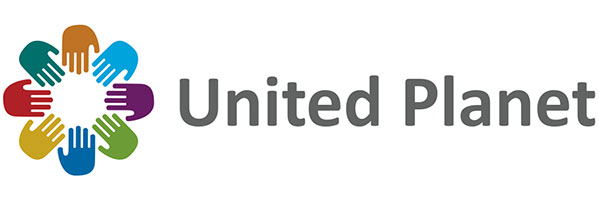
Volunteer Abroad on a Short-Term Quest
When you journey on a United Planet Quest, you will have an impact, both on the community you serve and on yourself. You will feel connected to a new culture. You will learn, and you will teach. You will discover, understand, grow. You will come home a different person than when you left.
United Planet also offers virtual volunteering and virtual internships for 4 weeks and more in over 20 countries. Learn more about our virtual volunteering and virtual internship countries and projects .
Short-Term Quest in Peru Available : Support after-school programs, rural development, wildlife, and animal rescues, or volunteer at global health project to shadow doctors and nurses in local clinics in Cusco.
Short-Term Quest in Moldova Available : Help Ukrainian Refugees in Moldova ! There is an urgent need for volunteers in Moldova , helping with the Ukrainian refugee crisis. United Planet is seeking volunteers to support Ukrainian refugees, primarily women and children, în Chișinău, the capital of Moldova . United Planet volunteers are supporting local organizations in Moldova at the forefront of the refugee crisis.
Short-Term Quest to Ecuador Available: Support a Wildlife Rescue Center by helping care for rescued animals, learning about environmental education, and rehabbing endangered wildlife of the Amazon.
Short- & Long-Term Quest to Costa Rica Available : Support ecological projects in rural areas—sea turtle & butterfly conservation, and ecological reserve protection. Spanish lessons are available for an additional cost.
Short-Term Quests to Italy Available: Volunteers can support foster care projects located in Northern Italy, living near or on site with the family. Volunteer Abroad Quests to Italy are available year-round.
Short-Term Countries

Project Options

Children and Education
Work with community members in classrooms, after school programs, daycares, childcare centers, women’s shelters, and more while immersing yourself completely in the local culture of your host community.

Global Health
Work and learn alongside community health professionals in general medicine, nursing, dentistry, physical therapy, psychiatry, and other areas while gaining real insight into shared healthcare challenges around the globe.

Environmental Sustainability
Live and work in conservation areas, contribute to construction projects, care for wildlife, and collaborate with local professionals to provide environmental education to surrounding communities.
What’s It Like?
“I have made some of the best memories during my Quest, and my stay in Peru was and always will be a monumental time in my life. I feel that I made a real difference in the lives of the children in my project, and I can say without a doubt that they had (and are continuing to have) a huge impact in mine. I felt immersed in the culture and lives of the Peruvian families. My excursion to Machu Picchu was an amazing and spiritually enhancing experience. I will forever cherish the memories of my day at the monumental Incan ruins. My overall experience on my United Planet Quest to Peru was everything I had hoped for and more. I will have these memories for the rest of my life. I have always been bothered by people who come back from life-changing experiences and simply say ‘it can not be put into words,’ but I am beginning to understand where they are coming from.” – Karsen G., volunteer in Peru
Program Details
United Planet Quests are designed to be immersive, authentic, comprehensive and provide you everything you’ll need to succeed. The program elements allow you to engage fully with a new culture, forge strong relationships, and challenge yourself. Most importantly, we partner with the community to ensure your experience will be important, relevant and helpful to the community you serve.
Get In Touch With Us
2024 Best Volunteer Abroad Programs, Organizations, and Projects

By Sarah Vandenberg

By Volunteer Forever
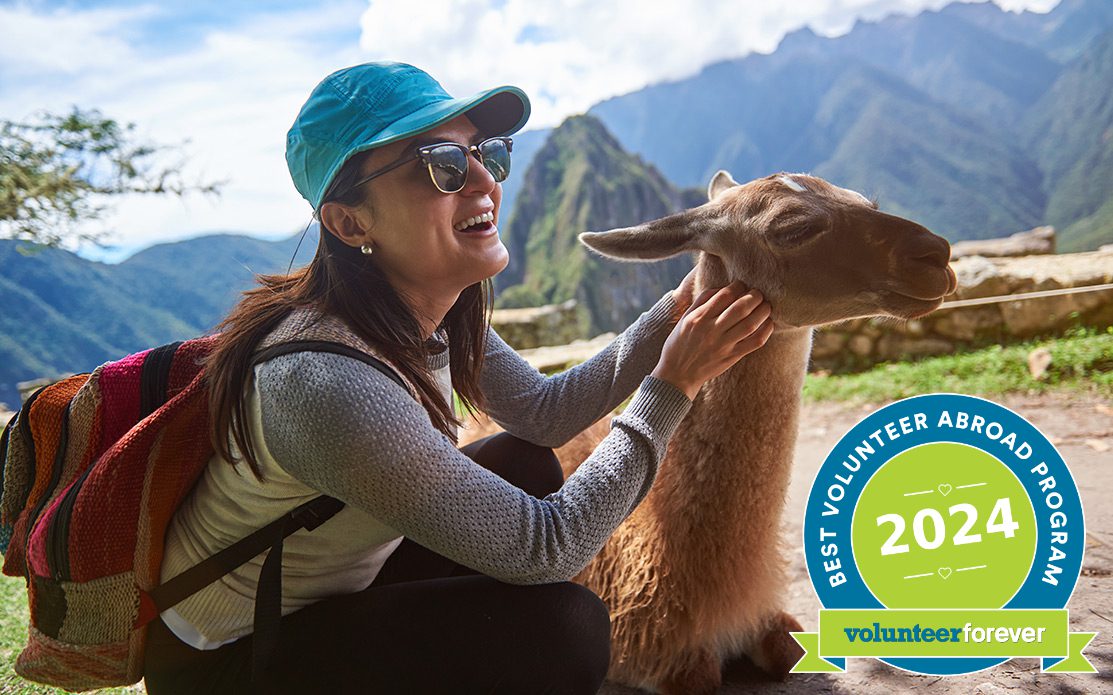
(New! Updated for 2024 trips)
Since 2015, Volunteer Forever has compiled the original list of best volunteer abroad programs worldwide with nearly 12 million views of our travel guides . Using our database of 1,000 international volunteer abroad organizations, 6,000 program reviews, and 13,500 fundraisers who’ve collectively raised $3 million for their trips, we have crunched the numbers to identify the top volunteer abroad opportunities. To take some of the guesswork out of choosing a program, we considered the history of each organization, number of alumni, and our twelve years of intensive work and research in the volunteer abroad world.
Read on for our list of the top recommended volunteer abroad programs!
2024 Best Volunteer Abroad Programs
If you’ve resolved to travel and make a difference this year, there’s no shortage of amazing volunteer abroad, intern abroad, study abroad, and teach abroad programs awaiting you. All of the volunteer abroad organizations showcased below have excellent reviews from very happy participants on Volunteer Forever – on this list, you’ll see some of the many different volunteer abroad experiences you can embark on and you’ll learn how to get there.
While traveling abroad can be expensive, we feature wonderful volunteer organizations such as International Volunteer HQ (IVHQ) , which are super affordable and available in over 50 different destinations , including in Bali , South Africa , Costa Rica , Peru , Fiji , Nepal , and Spain . They have supported over 130,000 travelers to volunteer abroad safely since 2007 and have an experienced team of volunteer travel experts who will ensure you are well prepared for your trip. Their top rated volunteer abroad programs and emphasis on safety are what makes IVHQ the world’s most popular choice for solo travelers, couples, families, and groups . Starting from $20USD a day, volunteers have among 330 plus projects to choose from with volunteer opportunities in Healthcare , Childcare , Teaching , Conservation , Construction , Wildlife and Animal Care , and more. Some of the most popular destinations to check out are Madagascar , Vietnam , Kenya , Cambodia , Spain , and Thailand , and they’ve recently opened new programs in Jamaica , Greece , Australia , Belize , Namibia , and Trinidad and Tobago .
If you’re interested in volunteering with animals, check out GoEco’ s numerous well-known wildlife conservation projects , which are some of the most popular in the world. If you want to work with animals in exotic locations, then GoEco’s Marine and Turtle Conservation program in the Maldives , Wildlife Animal Sanctuary in Australia , Marine Conservation in Belize , Giant Tortoise Conservation in Galapagos , or Amazon wildlife Sanctuary in Peru is worth a visit! Also, one of GoEco’s top programs in 2022 is the African Wildlife Orphanage in Zimbabwe , where volunteers will care for injured animals from tortoises to lions. Besides wildlife conservation projects, GoEco also has medical volunteer programs in Peru , Sri Lanka , and Costa Rica ; teach English abroad in Nepal , Sri Lanka , or in Tanzania ! Some of their programs are also family friendly to make a family vacation more meaningful. In addition, they offer safe and impactful programs specifically curated for teens , and programs that accept under 18 years old with parental consent. Visit GoEco to start your volunteering abroad adventures!
Take an immersive volunteer abroad trip to Latin America with Maximo Nivel! They offer impactful and educational placements in Costa Rica , Guatemala , and Peru . Some of Maximo Nivel’s volunteer abroad opportunities include construction , conservation , teaching English , working with kids , and working with indigenous communities . You also might consider earing your certificate by enrolling in a Teach English as a Foreign Language (TEFL) certification program , which offers job-placement workshops and prepares you for ESL job placements around the world – or on the flip side, if you’re looking to learn a new language, be sure to check out Maximo Nivel’s Spanish Immersion programs . Lastly, if you are interested in studying abroad in Costa Rica, Peru, or Guatemala, you’ll definitely want to look into Maximo Nivel’s University Abroad programs , which are excellent alternative to traditional programs due to their affordability.
Check out Volunteering Solutions ’ wide-range of affordable volunteer and intern programs worldwide in more than 26 countries. They are known for their voluntourism and professional growth their projects offer. Take a look their curated programs for the best summer volunteer programs , for medical internships abroad , or wildlife conservation projects for outdoor adventures!
Or if you’re a current or aspiring doctor, nurse dentist, or other healthcare professional, you will find a ton of medical volunteer opportunities and healthcare internships with Projects Abroad . For those interested in public health and nutrition, we strongly recommend Involvement Volunteers International , which has been providing humanitarian aid, emergency disaster relief, and international volunteer opportunities since 1989.
Lastly, if you’re interested in teaching English abroad, a high quality and educational international volunteer and work organization is International TEFL Academy (ITA) . Through International TEFL Academy, you can get paid to live abroad as a professional English teacher in a country like Spain , Thailand, or Costa Rica . The organization offers TEFL training to get you certified to teach English abroad, then provides job placement services. Teaching English with ITA is a great way to do good while earning money and traveling the world.
Ready to plan your trip? Read on!
Most Popular Guidebooks
Medical volunteer abroad programs for doctors, nurses, pre med students, cheap affordable volunteer abroad programs & low cost overseas projects, teens & high school volunteer abroad programs | under 18 mission trips, 200 volunteer abroad & study abroad scholarships & grants, dental volunteer abroad & medical mission trips | dentists & students, volunteer abroad opportunities for seniors and retirees, nursing volunteer abroad projects for students & professional nurses, short term volunteer abroad programs & mission trips (1 week & 2 weeks), long term volunteer work abroad programs & voluntary charity jobs, trending guidebooks, volunteering abroad after the coronavirus outbreak, 2024 best internships abroad: medical care, marine biology & more, volunteer in australia: animals, conservation, ranching and more, international volunteer hq (ivhq).
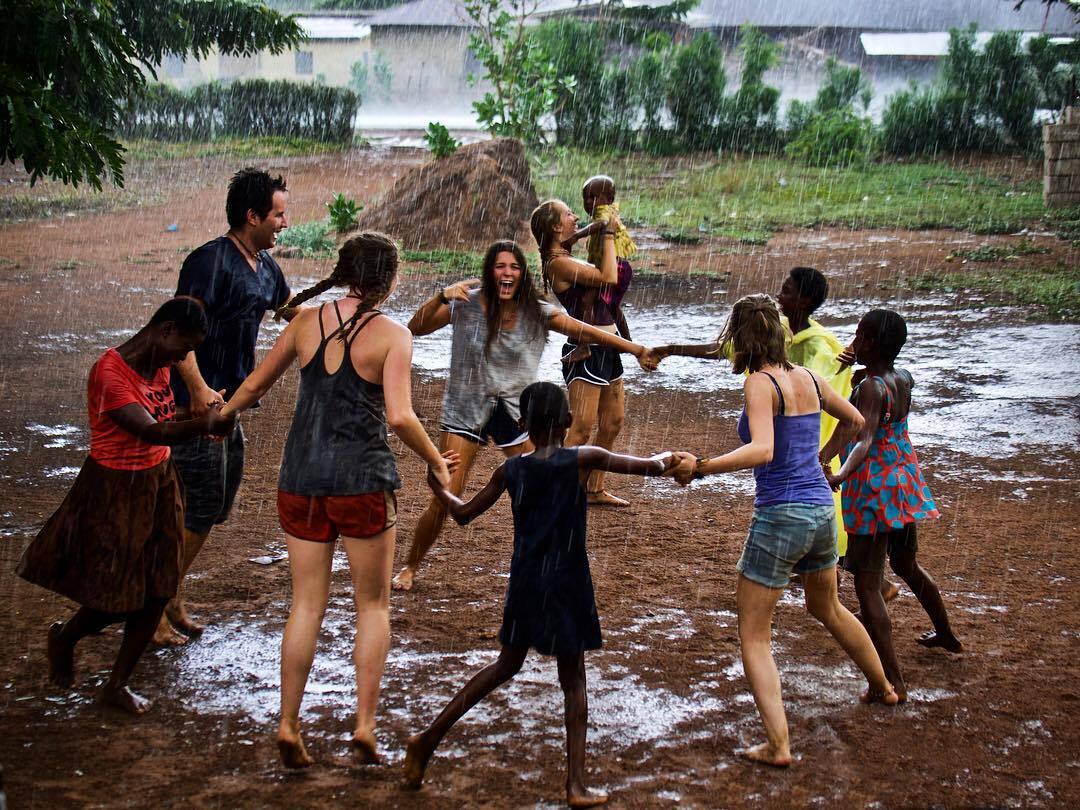
Founded in 2007 by Dan Radcliffe, International Volunteer HQ offers over 330 affordable volunteer trips to over 50 destinations in Africa, Asia, the Middle East, Latin America, the USA, Europe, the Caribbean, and the Pacific. IVHQ has placed more than 130,000 volunteers around the world on projects ranging from teaching and healthcare, to wildlife conservation and construction, and more. Programs last one week to 24 weeks and start at $20USD a day.
One of the key benefits of volunteering with IVHQ is knowing you’ll receive ongoing support from their experienced team of volunteer travel experts. If you’re looking for an immersive and impactful travel experience, IVHQ makes organizing a volunteer trip on your own schedule easy and affordable.
IVHQ Opportunities to Check Out
Volunteer in galapagos island.
IVHQ has exciting new volunteer opportunities in the Galapagos Islands. This program is great for eco volunteers with a love of conservation and protection of natural resources and habitats. Most of the volunteer experiences will be set in the small coastal town of Puerto Villamil, on the southeastern edge of Isabela Island, with its pristine white beaches. There are 6 interesting projects to choose from, with a minimum commitment of 2 weeks. Check these projects out:
- Promote conservation and document ongoing projects in social media
- Environmental conservation , where you will work in the National park to protect and preserve the ecosystems
- Giant tortoise conservation , where you’ll help this endangered species at a breeding center
- Sea turtle nest monitoring to help protect and manage the nesting season
- Sustainable agriculture and gardening to support sustainable farming practices
- Teaching English to the local adults and children
As a volunteer for these projects, you are working to help protect this beautiful island’s ecosystem as well as enjoying its beautiful natural beauty and learning about its culture, animals, and people. On the weekend, there are opportunities to dive, hike an active volcano, snorkel in many of the islands’ beautiful spots, or just relax on the white sand. For more detailed information, click here !
Volunteer in Bali: Ubud and Lovina
Looking for a tropical island getaway where you can also help the community? Volunteer with IVHQ in Bali ! There are 9 year-round projects to choose from. Travel to the cultural center of Ubud, where you can volunteer to teach English in an afterschool project , to assist teaching in a kindergarten , to help with construction and renovation in schools and community spaces, to support turtle conservation , to improve environmental education on recycling and sustainability living, or to encourage healthcare education promoting health and wellbeing. Or head to the coastal town of Lovina, where you can lend a hand with kindergarten support and teaching, or with school and community renovation . During your free time, go snorkeling or diving, embark on a cycling or trekking tour, explore temples and waterfalls, and much more! IVHQ’s trips to Ubud and Lovina , Bali start from one week at a very affordable $385.
Volunteer in South Africa: Cape Town, Kruger National Park, and Table View
Have you always wanted to visit South Africa? If so, IVHQ has 10 year round projects for you to choose the perfect volunteer abroad opportunity! Travel to central Cape Town, Kruger National Park, or to nearby Table View and immerse yourself in South African culture while volunteering on impactful initiatives.
In Cape Town, you can choose between childcare , teaching , animal care , sport development , or surf outreach volunteer trips . If you decide to volunteer in Table View, check out IVHQ’s Surf, Skate & Swim volunteer program , which supports students from low-income communities. Other Table View volunteering opportunities include childcare in kindergarten in low-income communities, sport development to help after-school sports programs, and the Holiday Club project , which keeps students active and engaged during their school holidays. Lastly, you can visit Kruger National Park while being a wildlife conservation volunteer. During your free time, you can explore the areas, and even take a long weekend to go on a safari or check out the Garden Route. IVHQ’s South Africa volunteer programs in Cape Town , Kruger National Park, and Table View start from only $275 for one week.
Volunteer in Costa Rica
Embark on an adventure to Costa Rica with IVHQ, where you can choose from sixteen volunteer programs in San Jose, Manuel Antonio, and beyond! Some highlight programs that you can be a part of include:
- Childcare and working with children at daycares and schools
- Turtle conservation and research
- Healthcare at clinics for disabled children or the homeless, nursing homes, and ambulance services in San Jose , Maneul Antonio
- Construction and renovation
- Teach English at public schools, in homes, or even at a local fire station in Manuel Antonio , in San Jose
- Eco-agricultural conservation in the central highlands of Costa Rica
- Special needs care for students with intellectual and physical disabilities
IVHQ also offers a Holiday Experience during Christmas and the New Year in San Jose, where you can participate in a variety of volunteer projects, including working with children and the elderly, planning celebrations for underprivileged children, and sprucing up community centers.
During your weekends and free time, you’re invited to explore San Jose and other areas of the country, including volcanoes, rainforests, and beaches. Volunteering with IVHQ in Costa Rica starts from one week at only $445.
Volunteer in Spain
Volunteer in Barcelona with IVHQ ! Choose one of eight impactful programs to volunteer while immersing yourself in a beautiful architectural, vibrant, and cultural city with lots to do. These programs range from one week to 12 weeks, starting at $650 a week.
Programs in Barcelona include:
- Youth support , where you will volunteer in an afterschool center
- Animal care , which will have you working in a shelter for cats and dogs
- Marine conservation , which gives you the chance to complete PADI dive certifications while helping to reduce ocean pollution
- Special needs support , which assists people with disabilities and may include arts and crafts, physical therapy, and exercise
- Creative technologies , where you’ll help local NGOs develop their online presence
During your stay in Barcelona, you will have the opportunity to explore the iconic architecture, museums, go shopping, relax on the beach, or visit other beautiful surrounding cities.
IVHQ Program Review: Kaitlyn, Guatemala
I volunteered in Guatemala with IVHQ and it was one of the best experiences I have ever had ! My program cost less than half of some of the other programs I was looking at and gave me more than those programs did – from the great food at meal times, to the actual program and the pickup at the airport and lots of options for support if it was needed!! Overall IVHQ is amazing and they are definitely the organization to volunteer with !
Check out over 6,400 reviews of International Volunteer HQ here !

Since 2006, GoEco has offered affordable volunteer abroad programs and internships in over 45 countries throughout Africa , Asia , Australasia , Central America , Europe , the Middle East , and South America . With more than 170 different programs, GoEco is a great organization to check out if you’re looking for a variety of impactful volunteer abroad trips to choose from, from wildlife conservation to teaching English . As a volunteer, you will have 24-hour support from the GoEco team, from start to finish.
Top destinations include South Africa , Australia , Bali , Costa Rica , Thailand , and Zimbabwe . Top activities include wildlife and animal conservation , marine and coral reef conservation , medical and healthcare , community aid and development , teaching English , and volunteering with children .
With GoEco’s 3rd Week Free Grant , enjoy the benefits of a third week free of charge when you sign up for two weeks or more on selected projects.
GoEco Opportunities to Check Out
- Zimbabwe – African Wildlife Orphanage: Volunteer abroad at a wildlife orphanage in Zimbabwe to care for various wild animals that have been injured or orphaned. Volunteers work closely with these animals to rehabilitate them before releasing them into a Protected Area.
- Indonesia – Bali Sea Turtle Rescue: Join GoEco on the beautiful island of Nusa Penida, just off the coast of Bali! Work hands-on with injured sea turtles and release the rehabilitated back into their ocean home.
- Thailand- Hua Hin Teaching and Childcare : Teach English to children ages 6-18 years old with local teachers while immersing yourself in Thai culture. Known for being a beautiful beach destination, Hua Hin has golden beaches for swimming and snorkeling during your free time.
- South Africa – African Wildlife Ranch: On this program, you will travel to a privately owned ranch and sanctuary in South Africa to help endangered animals, such as the white tigers, cheetahs, lemurs, and meerkats. Volunteer tasks focus on construction at the sanctuary and hands-on care.
- Australia – Wild Animal Sanctuary: Lend a hand at a sanctuary that provides a safe, natural home for some of Australia’s unique wildlife such as koalas and kangaroos. This sanctuary provides refuge for rehabilitated but unreleasable, injured and orphaned animals.
- Costa Rica – Animal Rescue and Conservation: Experience Costa Rica with this unique program! Volunteers will work closely with injured sloths, monkeys and other Costa Rican wildlife and immerse themselves into the local culture through Spanish language lessons, exploring the capital of San Jose and living with a host family.
- Check out other varieties of Wildlife Conservation programs in Japan , South Africa , Portugal , Kenya , Thailand.
- Other Marine Conservation programs include: Portugal , Dolphins in Italy , Whales and Shark in Mozambique , and Marine Conservation in Barcelona
GoEco Program Review
Taking this volunteer trip to the Wildlife Sanctuary project was something I had wanted to do for several years… Literally after one day of volunteering, I was already regretting only having two weeks to stay. Every day was amazing and full of incredible experiences and new people. The days flew by as we were so busy working on the farm, hanging out and making new friends, and learning about the wildlife in a very hands on manner. The staff is very helpful, friendly, and seem just as excited to be there as the volunteers. As mind-blowing as the actual project [was], the people I met were similarly incredible. It’s crazy that in just a few weeks you can develop friendships that seem like you’ve had for years. Leaving was very emotional, but still, I can’t recommend this trip enough to anyone who is considering it or may be on the fence, seriously, do it. Having just returned home, I already miss everything that filled my days for those two weeks in South Africa. I find myself constantly looking back at photos and in the back of my mind planning a return visit as soon as possible. – Dave P, Wildlife Sanctuary, South Africa
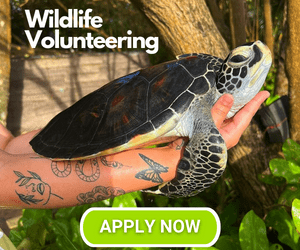
Maximo Nivel

Maximo Nivel is Volunteer Forever’s top-ranked volunteer abroad program with over 250 reviews and a perfect 5-star rating . Their projects are very affordably priced , starting at just $595 (for one week) and appeal to a broad base of participants from high school students to graduate students and working professionals.
Maximo Nivel was founded in 2003 and has hosted over 25,000 participants for its volunteer abroad , internship abroad , study abroad , Spanish Immersion , Teach English as a Foreign Language ( TEFL ), Semester Abroad, and High School Abroad programs. Maximo Nivel offers its projects in three countries in Latin America: Costa Rica , Guatemala , and Peru .
Whether you’re looking for a one-week adventure or a full gap year experience, Maximo Nivel is definitely worth checking out if you are looking for a high-quality, affordable, and enriching experience in Latin America.

Maximo Nivel Opportunities to Check Out
Tefl – teaching english abroad.
Right now, Maximo Nivel is offering TEFL certification courses for travelers who want to volunteer abroad as English teachers and gain new skills abroad. You’ll start with an intensive, four-week, accredited certification course in Costa Rica, Guatemala, or Peru ( online courses also are available), after which you’re free to look for paid teaching abroad placements.
Maximo Nivel provides lifetime job-seeking support for their alumni, and even hires three to five graduates each month to work as teachers in their Native English Program in Costa Rica, Guatemala, or Peru. There are lots of different types of teaching opportunities Maximo Nivel will help you find, including business English teaching, private tutoring, school teaching, and much more, depending on your skills and interests.
Volunteer Adventure
On this two-week volunteer adventure , you’ll spend five days volunteering, and six days traveling in Costa Rica, Guatemala, or Peru. A few volunteer work projects you can take on include working with kids, teaching English, construction, conservation, animal care, or medical / healthcare.
For the tour portion of your trip, you’ll go zip lining, touring on a catamaran, hiking through a national park, visiting waterfalls and volcanoes, and much more, depending on which country you decide to visit. This is an excellent opportunity to combine international community service, learning, and adventure.
Education Internship
If you’re currently studying education, secondary education, or a related field at your college or university, you are invited to take part in Maximo Nivel’s education internship abroad . Through this placement, you’ll work alongside professional teachers to gain insight into teaching in classrooms for early childhood, elementary, middle school, and high school students. ESL-specific placements also are available.
You’re invited to stay for a minimum of four weeks and can expect to work four to six hours per day Monday through Friday each week. As an intern, you’ll have the wonderful opportunity to observe classroom instruction and management, help with planning and conducting lessons, learn about Latin American culture, and develop your teaching and leadership skills.
Micro Business Internship
Maximo Nivel also offers a micro business internship for students interested in subjects such as business development and management, marketing, sales, client services, accounting, and much more. For four weeks, you’ll work with a local company or entrepreneur in Costa Rica, Guatemala, or Peru to assist with marketing, client needs, administrative work, and other tasks that can help keep the company running, scale it appropriately, and set it up for success over the long-term.
You must have intermediate Spanish language ability to apply, and you’re encouraged to enroll in Maximo Nivel’s online Spanish class or native Spanish program to gain the language skills you’ll need to be successful on your internship.
Maximo Nivel Program Review: Alexa Hart
I went to Cusco, Peru on a one-way ticket back in 2009 and had the time of my life. Maximo was a big contributor to my positive experience. I volunteered with underprivileged kids and helped paint a battered women’s shelter. I also took inexpensive Spanish lessons with them. The accommodation they provided was great (I recommend Arcopata Family House). I lived with fellow participants of the program in a house and was provided really good meals. When I got sick, they had a doctor come to the house to check on me and give me medicine too. After volunteering, I became TEFL certified with them during a 4-week course. All in all, I was very impressed, and I would recommend them to anyone. The experience changed my life.

Projects Abroad

Projects Abroad describes itself as providing the gold standard of volunteer support and safety so that travelers may fulfill their potential, discover themselves, and create positive change in the world. Long-term, sustainable solutions are at the core of their programs, where you can be part of their ongoing efforts to meet specific goals in places where extra support is critical. Projects Abroad works directly with local community members and organizations, ensuring that their work meets real needs.
Programs run year-round, allowing volunteers and interns to choose their own start and end dates. With a hassle-free experience and dedicated in-country staff available 24/7 , you don’t need experience or qualifications to sign up for most trips.
Projects Abroad Opportunities to Check Out
Medicine internship in ghana.
Projects Abroad’s medical internships in Ghana give you the opportunity to learn directly from doctors in hospitals or clinics. You’ll shadow them on their rounds, observing how they diagnose and treat different illnesses or conditions. You’ll see medical cases that you’ve only read about in textbooks, which is a great way to enhance your practical medical knowledge. This program is suitable for pre-med and medical students.
In Ghana, the organization runs regular medical outreaches in communities where healthcare services are limited. As a volunteer, you will help provide basic medical treatment, from cleaning and bandaging wounds, to measuring blood pressure levels. If you would like to focus specifically on practical outreach work, you may be interested in joining the Public Health internship .
Volunteer with Children in Nepal
In Nepal, Projects Abroad supports the work of local caregivers and teachers by focusing on improving early childhood development and literacy in care centers. During your time here, you will work with young children and assist with a variety of activities such as:
- Sing songs to teach the alphabet and counting
- Play catch with a ball to improve hand-eye coordination
- Read stories that engage the kids’ imaginations
You don’t need previous experience to volunteer with children in Nepal – you’ll work alongside local staff and have regular workshops.
Protect the Amazon Rainforest in Peru
Live in the heart of the Amazon Rainforest and work alongside experienced conservationists to protect wildlife and indigenous plants. You’ll be on the frontlines of rainforest conservation at Taricaya, an award-winning ecological reserve.
There’s plenty to do in the jungle. You’ll help rehabilitate wild animals like the spider monkey, and release them back into their natural habitat. You’ll also help with reforestation, collect scientific data on local animal populations, and work on a sustainable farming initiative.
Projects Abroad Program Review: Christian, Shark Conservation in Fiji
As a scientist-in-training I was most impressed with all of the science underlying the project and how willing the staff was to share their knowledge. I was able to see science in action as well as conservation efforts making their way up the chain to actually change environmental policy.
Involvement Volunteers International (IVI)
Are you in search of a life-changing experience and an opportunity to make a genuine difference in communities around the world? Involvement Volunteers International (IVI) , founded in 1989, invites individuals to join the ranks of over 25,000 volunteers who’ve made a lasting impact in 112 projects spread across 23 countries.
Why IVI Stands Out
With a legacy spanning over 34 years, IVI distinguishes itself as a non-profit that actively supports local communities, particularly in the South Pacific regions of Fiji and Vanuatu , as well as in India . Unlike many organizations, IVI has built many of its projects from the ground up. Beyond offering travel and volunteering experiences , they play a significant role in the humanitarian sector, aiding impoverished communities and refugees. They also provide university students the opportunity to fulfill their practicum hours in sectors such as mental health, medical, teaching, and veterinary projects.
Beyond Volunteering: Internships, Teaching, and More
Moreover, for those eyeing internships, destinations like Peru, Guatemala, Costa Rica, Ghana, Nepal, and Sri Lanka offer openings in the medical , teaching, physiotherapy, dental, and nursing fields. IVI’s internships guarantee specific hours, and for university placements, the necessary documentation and supervisor approvals are given. Although IVI doesn’t provide paid teaching abroad, they offer teaching projects at almost every destination, catering to various age groups, predominantly aged 3-12.
Family and Group Adventures
Whether one is a solo adventurer, a family unit , a group, or a teen, IVI has projects tailored to fit each need. Their family-friendly ventures encompass kindergarten teaching, construction, environmental initiatives, and animal care projects. For larger groups, IVI presents specialized itineraries combining volunteering programs with engaging activities, making them an ideal choice for school groups.
For volunteers aged 16-17, a signed parental consent from their guardians is a prerequisite. Some of IVI’s projects also accommodate younger kids, ensuring they remain under parental or guardian watch.
Discover More
Interested in learning what sets IVI apart? Dive deeper into their story by visiting “Who We Are” and “Why IVI?” on their official website: volunteering.org.au
Embarking on a journey with IVI promises to enrich both the individual and the world at large. The adventure awaits!
Volunteer in Fiji (Flagship Program)
Fiji is Involvement Volunteers International’s premier destination where they have over 25 years of operation history. With over one third of the population below the poverty line, malnutrition, and low literacy rates, Fijian communities desperately need the support of international volunteers. IVI offers project opportunities in five different parts of Fiji with projects including Public Health & Nutrition , Teaching , Construction , Medical Care , and more. Project fees are extremely affordable starting at just $295 and includes accommodation, meals, airport pickup, 24/7 in-country support and so much more. Click here to learn more about volunteering in Fiji with IVI .
Beach Cleanup in Costa Rica
Volunteer to protect beaches and nature reserves in the Nicoya Peninsula of Costa Rica . If the place “Nicoya Peninsula” rings a bell, it may be because it is considered to be one of the world’s five “Blue Zones”. As a volunteer, your responsibilities will include assisting with trail maintenance at a nature reserve, assisting with beach cleanups, educating the local population on conservationism, and showing visitors around the nature reserve. Program fees start at an affordable $595 and includes meals and homestay with a local family. Click here to learn more .
Public Health and Nutrition in Vanuatu
Vanuatu is a South Pacific island nation between Fiji and Australia. Vanuatu’s population is largely impoverished with only 58% of people having access to electricity and one third of people lacking access to basic services. Furthermore, the island nation has one of the highest rates of diabetes, high blood pressure, and malnutrition in the world necessitating the need for strong public health interventions. As a public health volunteer , you’ll conduct health screenings for local communities, raise awareness about nutrition and diabetes, and design exercise programs for villagers. Program fees start at $1150 for two weeks. Click here to learn more and apply .
Volunteering Solutions
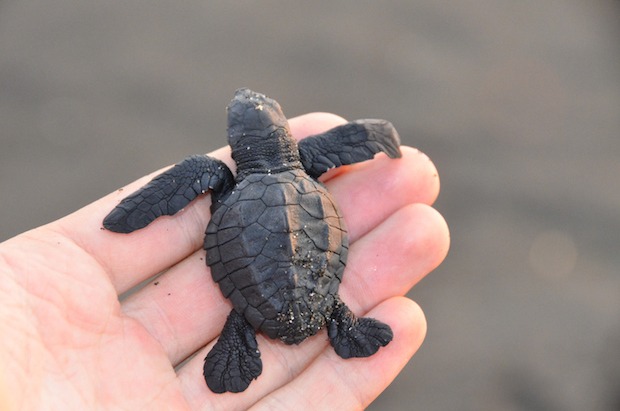
Volunteering Solutions (VolSol) is an international volunteer organization that was started in 2007. Since then, they have hosted over 17,000 volunteers in projects across 27 countries , including popular destinations such as Nepal , India , Thailand , South Africa , Peru , and Costa Rica .
Volunteering Solution’s volunteer projects are among the most affordably priced in the world, starting at $200 USD for one week .
In addition to their 120+ volunteer projects, Volunteering Solutions also offers intern abroad opportunities, the highlight of which are their international medical internships.
To learn more about Volunteering Solutions and apply to their program , visit their website here (UK readers, please visit their UK site here ).
Volunteering Solutions Opportunities to Check Out:
Medical Internship
Right now, Volunteering Solutions is offering several different medical internships in Nepal, India, Peru, and Thailand. As a medical or healthcare intern with VolSol, you can choose from projects focusing on nursing, medical care, dentistry, and physiotherapy while earning hands-on experience in your field.
Depending on your placement, you can work in local government or private hospitals and clinics, and you’ll have the amazing opportunity to work alongside local medical and healthcare professionals to learn about their practices. Internships can be customized to your university requirements, and you’ll earn a certificate of participation upon successful completion of your program abroad.
Internships start from two weeks at $650, with your program cost varying based on which placement you sign up for. Learn more about medical internships with Volunteering Solutions here .
NGO Support and Human Rights Volunteering
If you’re passionate about human rights, check out Volunteering Solutions’ NGO support and human rights volunteer program in Rabat, Morocco. As a volunteer, you’ll work with local organizations that confront a variety of important social and political issues, including human rights, children’s support, women’s rights, education, skilled learning, government accountability, and much more.
Depending on your background, skills, and what’s needed by your program site, you can assist with marketing, planning community events, helping with reporting and documentation, and assisting with development activities at your partner NGO. You’re invited to stay one week or longer, starting from just $410 for your first week in Morocco. Click here to learn more and to sign up .
Sports Coaching in South Africa
Another excellent volunteer program being offered right now with VolSol is their sports coaching project in South Africa . Through this placement, you’ll coach sports, teach life skills, and encourage healthy habits among children at a local primary school.
During your stay, you’ll help lead three physical education periods per day, while assisting teachers with their lessons and guidance in classrooms in between those periods. If you’re creative, flexible, and ready to be a mentor to students in South Africa, this program is for you! You’re invited to stay two weeks or longer, starting at just $495 for your first two weeks in South Africa – learn more about coaching sports here .
Volunteering Solutions Program Review: Sarah, Thailand Elephant Program
“I participated in the Elephant Camp Program in Chiang Mai, Thailand . Before arriving in Thailand, I was a bit apprehensive and nervous , however after arriving in Chiang Mai, everything went smoothly. I dad a very informative orientation session with the local team. The Chiang Mai city tour was fab too!
My 3 weeks stay at the elephant camp was definitely the highlight of my Thailand trip. I enjoyed meeting other volunteers from around the world and getting involved in different tasks at the elephant camp. On the weekends, we enjoyed our time in Chiang Mai thoroughly exploring the night market, going to Doi Suthep and other plenty of Thai temples. I would definitely recommend doing the Elephant Camp project in Chiang Mai.”
African Impact
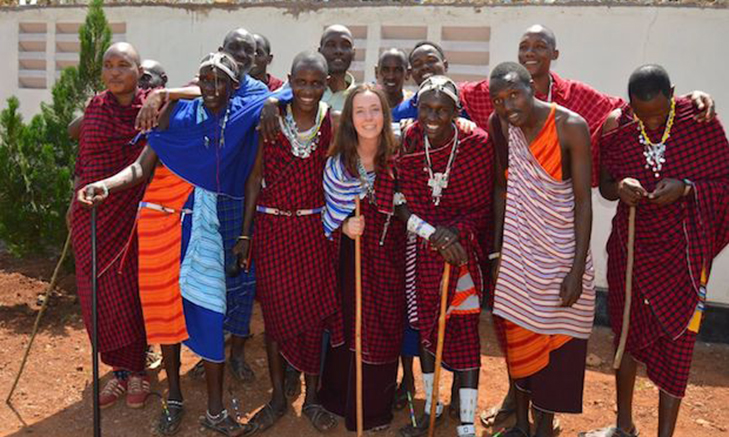
African Impact is a responsible, sustainable volunteer travel organization that has won multiple industry awards, including being voted the world’s Top Volunteer Abroad Organization by volunteers on GoAbroad four years in a row. Since 2004, they have hosted over 35,000 participants on 20 projects across 7 countries. The organization believes in the spirit of Africa and that the volunteer experience is just as important as the impact made.
African Impact manages its own projects and is able to provide tangible, real achievements on a regular basis. The organization has a clear Child Protection Policy and ensures that volunteers complete a criminal record check prior to involvement. Experienced staff is on the ground to support volunteers day-in-day-out and the organization does not use volunteer support in replacement for a local person.
In addition to making a positive impact, African Impact also believes that volunteering abroad should be enjoyable. The organization offers a range of activities for volunteers, including teaching children in South Africa , assisting with wildlife conservation in Zimbabwe, working in hospitals or clinics in Kenya, and carrying out dolphin and marine research in Zanzibar .
Volunteering with African Impact allows individuals to gain new skills, knowledge and practical work experience, while also making a lasting impact on local communities and conservation efforts. The organization believes that volunteering in Africa helps to change perceptions and stereotypes about Africa and its people, while providing local communities with an exchange of culture, mindsets and ideas.
African Impact Opportunities to Check Out
Big Five and Wildlife Conservation, South Africa
For two weeks or longer, you’ll have the chance to monitor and study the African Big 5 (leopard, rhino, lion, buffalo, and elephant) and help local researchers and foundations with protecting endangered species. Based in the game reserves of the Greater Kruger Area, your volunteer tasks can include researching animal behavior and movements, helping with reserve conservation work such as clearing brush and maintaining waterholes, compiling data at the research lab, and much more to help understand animal behavior and maintain a healthy ecosystem. Learn more here!
Education and Community Support, Tanzania
On this program , you will teach English and other skills to children and adults on the island of Zanzibar. Zanzibar is a beautiful island that is a tourist favorite, yet many of the residents don’t have adequate access to English-learning opportunities. By teaching English, you’ll help to provide economic opportunity to the residents of Zanzibar and help them participate in the island’s thriving tourism industry. This volunteer trip lasts 10 days or longer, and is a wonderful way to immerse yourself in Tanzanian culture while contributing to valuable development initiatives. Click here to learn more!
Early Childhood Development Project in Cape Town
The Early Childhood Development Project in Cape Town offers volunteers the chance to work with vulnerable children in underprivileged townships. Volunteers will support children in foster care homes and pre-schools, providing them with access to education and care that they may not otherwise have access to. The project aims to make a positive, long-term impact on the lives of disadvantaged children by providing them with the support and education they need to succeed.
In addition to working with children, volunteers will have the opportunity to explore the beautiful city of Cape Town and all it has to offer. Cape Town has been named the Most Beautiful City in the World for the past 5 years, and is known for its stunning natural beauty, diverse culture, and vibrant nightlife. Volunteers can take advantage of the many activities available in the city, such as hiking up Table Mountain, going paragliding, kayaking in the ocean, or visiting historic sites such as Robben Island.
Volunteers will live in a spacious guesthouse in the center of town, with shared dorm-style accommodation and shared bathroom facilities. The guesthouse is close to the main sights of Table Mountain, the V&A Waterfront, and the Company’s Gardens. A team on site will be available to support volunteers and help them with any needs they may have during their stay.
Dolphin and Marine Conservation Project
Volunteer in Zanzibar on African Impact’s Dolphin and Marine Conservation Project and make a real difference to the sustainability of dolphin tourism. As a volunteer, you will monitor human-dolphin interactions, promote ethical dolphin tours, and contribute to the conservation of marine life in the area. This project is ideal for those passionate about marine conservation and the environment. In your free time, you can explore the beautiful coastlines and vibrant culture of Zanzibar. You will live in a private volunteer house near the coastal village of Kizimkazi and work with local communities and organizations to protect the marine ecosystem. This is a unique opportunity to make a lasting impact while enjoying a truly amazing location.
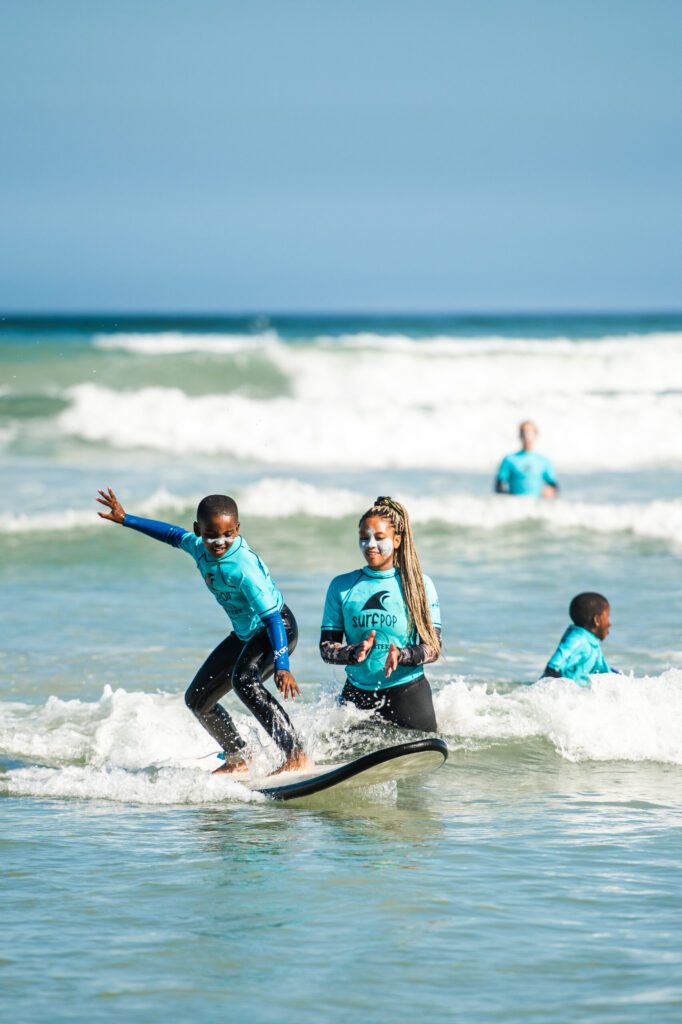
Founded in 2015 by Daniel Botha, Surfpop is a South African-based organization that aims to build a sustainable future for vulnerable children from township communities around Muizenberg, Cape Town through a powerful formula of surfing, education and life coaching. They have hosted over 350 international volunteers for their two surf volunteer projects in Cape Town.
Surfpop is very unique compared to other international organizations due to their long-term outlook on supporting the needs of the local community. On average, they work with each child beneficiary for around 8 years, after which they help them find sustainable employment or provide them with employment within the Surfpop organization. Their holistic model of surfing, education, life coaching and nutrition also sets them apart from most other organizations.
Surfpop is the only Volunteer Forever partner that exclusively focuses on surf volunteering, so if you are a surfer or have a strong interest in surfing, Surfpop is definitely an organization you will want to check out!
Volunteer with Surfpop in Cape Town, South Africa
Surfpop’s surf volunteer program is based in the beautiful seaside town of Muizenberg, South Africa. As a volunteer, you will play a critical role in helping disadvantaged children escape poverty, crime, and drugs. Through their comprehensive after-school program, you will not only teach children to surf and swim, but also tutor them on more formal academic subjects such as math, English, and computer literacy.
Surfpop’s volunteer program is open to volunteers ages 18 and up. No prior experience with surfing is necessary. This program starts at roughly $500 USD per week with a minimum duration of four weeks. The cost of the program includes accommodation, breakfast, airport pick-up, orientation, 24/7 support, and surf lessons. Volunteers will also receive surf gear rentals for their stay. If you are interested in having more surf lessons or even practicing yoga, then check out Surfpop’s Surf Pro and Surf & Yoga volunteer programs .
International TEFL Academy
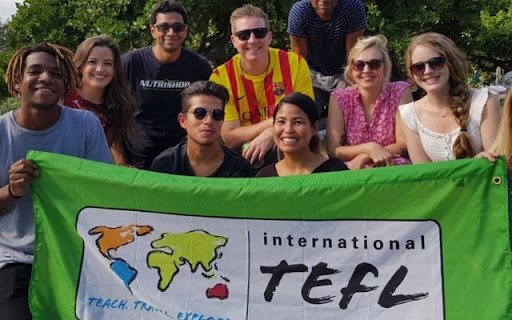
Do you want to get paid to live abroad as a professional English teacher in a country like Spain, Thailand, or Costa Rica? Are you looking for the best TEFL training and job services? If so, then International TEFL Academy is the right place for you.
Founded in 2010, International TEFL Academy (ITA) offers the gold standard in TEFL certification for teaching English abroad and teaching English online. ITA offers the finest internationally accredited TEFL courses both online and in-person in 20+ locations across the globe. ITA certifies 5,000 people per year, with graduates teaching in over 80 countries and online. Committed to providing the highest quality training and services, ITA can help you achieve your goal of getting a great job and enjoying the experience of a lifetime teaching English abroad and online.
All ITA TEFL courses – including online TEFL classes – include live practice teaching and employ a state-of-the-art curriculum taught by highly credentialed and experienced instructors. In addition, all ITA students receive lifetime job search assistance that includes personalized guidance from a team of expert advisors. To learn more and begin your journey, download your free TEFL Guide now .
Teach English in Japan
With International TEFL Academy, you can get a job teaching English in Japan – long one of Asia’s top teaching job markets! You must be a native English speaker, have a 4-year college degree, and get TEFL certification. After getting your TEFL certificate, ITA will help you obtain a job in a city such as Tokyo, Kobe or Osaka. Learn Japanese, immerse yourself in the culture, help students learn and earn money during the trip of a lifetime. Teaching hours should be about 20-25 hours per week and you can expect to earn between $2,500 – $4,000+ per month. Free housing is available with some contracts.
Teach English in the Czech Republic
Providing a quintessential blend of modern and classic Europe, the Czech Republic is a great destination if you wish to teach English abroad. Demand for qualified native English teachers is high, especially in cities such as Prague. English teachers typically need a bachelor’s degree, plus TEFL certification, to teach in the Czech Republic. Pay is about $1,000 – $1,800+ per month and work hours average around 20-25 hours per week.
Teach English in Mexico
With an abundance of cultural and natural diversity, Mexico offers international volunteers all you could want, including ample work opportunities and the chance to practice Spanish everyday. You must have a 4-year degree, along with TEFL certification, to obtain a job teaching English. Cities with the highest demand for foreign teachers include Mexico City, Guadalajara, Puerto Vallarta and Puebla. Similar to teaching jobs elsewhere, hours range from 20 to 25 per week. You should earn between $600 – $1,000+ per month.
Teach English in the United Arab Emirates (UAE)
A center of trade and commerce, cities in the UAE such as Dubai and Abu Dhabi are some of the most sought-after destinations for English teachers. To get a teaching job in the UAE, a bachelor’s degree is required (master’s preferred). You’ll also need TEFL certification and preferable some experience to help you have an edge over other applicants (due to a competitive job market). Expect to make between $1,800 – $5,000+ per month, with 20-25 teaching hours monthly. The nice aspect of teaching jobs in the UAE is the benefits, which can include free housing, airfare and health insurance, as well as paid vacation.
Global Vision International
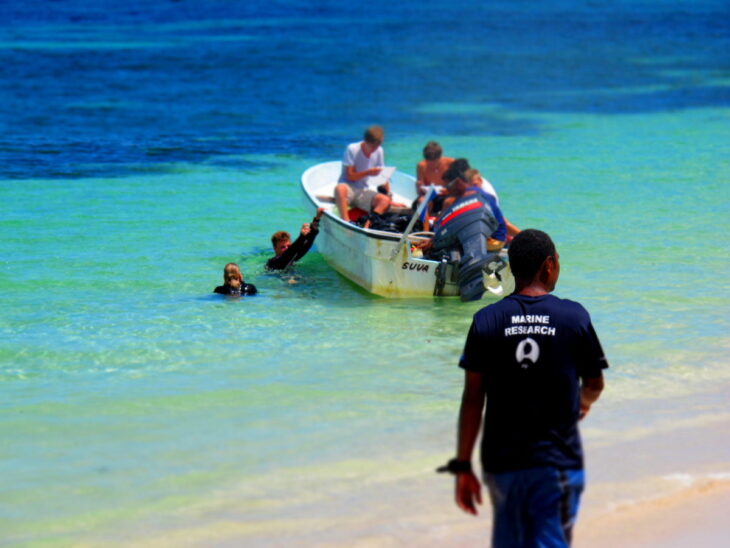
Founded in 1997 by Richard Walton, Global Vision International (GVI) is an award-winning organization that provides volunteer and internship opportunities in Africa, Asia, Australasia, Europe, Latin America, and North America. GVI has sent more than 25,000 volunteers overseas on programs ranging from construction, to animal care, to education, and beyond with 95% of past volunteers stating they would want to travel with them again. GVI is unique from other volunteer programs in three ways: they operate their own volunteer projects to ensure real, sustainable impact on the ground; they provide 360 degree support before, during, after your placement; and lastly their alumni network provides increased access to higher education and career development opportunities. GVI’s differentiators and their emphasis on volunteer safety make the program very appealing to first-time international volunteers and teen / high school / under age 18 volunteers. Their projects start from one week and can last up to one year. Projects mix community service with global and cultural awareness to inspire and encourage volunteers to continue learning and serving even after they’ve returned from their trip.
GVI Opportunities to Check Out
Wildlife research in south africa internship.
Through this internship , you’ll work with local research teams to track animals, study behavior, and learn more about the wildlife of South Africa. You’ll get started with a training session to get you acquainted with the project and the types of animals you’ll study, and from there work day-to-day tracking wildlife, conducting research, assisting with data entry, and even participating in community education about conservation. This program starts from four weeks at $8,445.
Volunteer with Elephants in Thailand
If you’d like to visit Asia, GVI has an amazing opportunity right now in Thailand to volunteer with elephants that have been rescued from working in the tourist industry. Through this program, you’ll help rehabilitate elephants and work with trainers to care for the animals, and may even help with community education and outreach programs. This amazing project starts from one week at $3,545.
Volunteer with Buddhist Novice Monks in Cambodia
Through this placement, GVI invites you to teach English to Buddhist monks and children in Siem Reap, home to the famous Angkor Wat, which is a UNESCO World Heritage Site. You’ll work directly with monks in a temple school and learn about Cambodian culture, history, religion, and much more. This program starts from two weeks at $2,895.
Marine Conservation Expedition in Fiji
On this project , you’ll travel to Caqalai Island in Fiji to work with a local NGO in collecting data on fish species, mapping coral reefs and mangrove, developing an environmental education and awareness program for local schools, and assisting with the development of best practices in conservation on the island. The first part of your project will start with an initial training phase, where you’ll learn to identify fish and coral species through a series of dives with guidance from GVI staff. This program starts at $6,545, and you’re invited to stay from two to 12 weeks.
GVI Program Review:
“I was in need of a career break, and was looking to do something out of the ordinary. I was looking to get far away and do something worthwhile. After some heavy research GVI continued to be the organization that ticked all the boxes. They were incredibly helpful when I was choosing my location, and the onsite assistance and support throughout the entire journey was fantastic. I was so lucky to be involved in the Community development program of El Cocal, the children were amazing, I made some friends for life and hopefully one day soon I’ll return for a visit! It really was an unforgettable experience!” – Amelia, Costa Rica Community Development Program
First Things Foundations (FTF)

First Things Foundation (FTF) is a non-profit organization that partners with local leaders to build sustainable businesses and communities in developing countries. FTF is different from other volunteer organizations in that its field workers (international volunteers) commit two years of their lives to living in the communities they are serving; all expenses are fully covered by the program . This allows field workers to develop deep relationships with the people they are working with and to better understand the needs of the community.
FTF has 15 projects in 4 countries ( Guatemala , Sierra Leone , the Republic of Georgia , and Mozambique ). These projects are all led by locals in the communities that FTF works in. FTF’s field workers have worked on a variety of projects, including starting businesses, building schools, and providing healthcare. FTF field workers are not afraid to get their hands dirty: working on farms, sanding wood, and kneading dough are some of the ways that they integrate into the local community and become familiar with a new rhythm of life.
FTF covers all travel costs and operations expenses (food, local transport, accommodation, etc.) for its field workers. In addition, field workers receive a monthly stipend of $375. FTF also has international medical and evacuation insurance for all of its field workers.
FTF is looking for volunteers with a desire to better their souls by undertaking a serious challenge, an adventurous attitude, and a willingness to learn new languages, make fun of themselves, and be made fun of. Field workers typically have completed 4 years of college or have an equivalent amount of experience. If you are looking for a challenging and rewarding volunteer experience, the First Things Foundation volunteer program is a great option. FTF field workers have the opportunity to make a real difference in the lives of others and to learn and grow in ways that they never thought possible.
First Things Foundations Opportunities:
- Field Worker Program in Guatemala : The First Things Foundations has been facilitating impactful projects in popular tourist destinations in Guatemala since 2016, with accomplishments like building schools and supporting local businesses. As a field worker, you’ll immerse in the local community for 8 months to understand their needs and then embark on a community development or social entrepreneurship project. This two-year paid immersionship is a unique opportunity to make a real difference while experiencing the rich Mayan culture.
- Field Worker Program in Sierra Leone : First Things Foundation has been empowering communities in Sierra Leone since 2017, with projects ranging from constructing churches to enhancing medical services. Volunteering in the serene town of Kailahun, you’ll immerse in the local culture for 8 months, then collaborate with an “Impresario” on meaningful community projects. Embrace this two-year “immersionship” for a deeply rewarding experience that brings tangible change to communities.
- Field Worker Program in Mozambique : First Things Foundation’s Mozambique program offers a unique opportunity to pioneer community development in Corrane, a town impacted by internal displacement. As a field worker, you’ll immerse in the rich culture, learning Portuguese and Makua, while forging deep connections with locals over 8 months before spearheading impactful projects. With the support of a dedicated professional team, this challenging “immersionship” promises personal growth, skill enhancement, and the chance to leave a lasting positive mark on Mozambique
- Field Worker Program in the Republic of Georgia : First Things Foundation is expanding its impact to the Republic of Georgia, focusing on Akhaltsikhe, a town enriched by its Armenian heritage. As a field worker, you’ll dedicate the first 8 months to deeply connect with the community, subsequently aiding local businesses and community projects during a transformative two-year immersionship. With expert guidance, immerse in Georgia’s vibrant culture, enhance your skills, build genuine relationships, and contribute meaningfully to a nation on the cusp of change.
Love Volunteers

Founded by a brother-sister team, Love Volunteers is a low-cost international volunteer organization that provides meaningful, life-changing projects in over 34 countries around the world .
Every year, thousands of Love Volunteers from all over the globe are placed into 1 week to 6 month volunteer abroad projects in Central and South America, Asia, Africa, The Middle East, and Europe. A few of Love Volunteers’ popular locations include:
- South Africa
Love Volunteers’ volunteer abroad programs start at just $175 for a one week placement along with a one-time $249 registration fee when you submit your application.
Love Volunteers offers 120 community-based development programs in healthcare, education, sports and coaching, law and legal assistance, social services, engineering and architecture, special needs, construction, environmental protection and in many more areas.
We LOVE Love Volunteers because it is an affordable volunteer program with lots of options in terms of placements.
Love Volunteers Opportunities to Check Out
Tanzania: teaching and assisting in schools.
Through this program, volunteers work in multiple schools in the city of Arusha. English teacher volunteers are especially needed to English and as such, volunteers should consider a TEFL course prior to volunteering (though this is not required by the program).This program starts at one week for $175.
Nepal: Special Education Program
This program is located in Kathmandu in order to assist people with disabilities. Volunteers in this program help the participants in the special education program to develop technology skills, develop their conversational English skills, and build the life skills needed to live an independent and dignified life. This program at 1 week for $195.
Thailand: Elephant Village
Based in Surin, this volunteer trip invites you to provide care for elephants that have been abused and neglected as tourist attractions and for logging work. As a volunteer, you can help to create a safe place for elephants to live full, peaceful lives in their natural habitats. This program starts from one week at $619.
Costa Rica: Turtle Conservation
Another excellent trip you can take with Love Volunteers brings you to Costa Rica to help save sea turtles from extinction by assisting in hatcheries, helping with conservation projects at the beach, releasing hatchlings into the sea, and patrolling hatching grounds. This trip starts from one week at $349.
Love Volunteers Program Review: Delaney and Jordan
Love Volunteers is such an amazing organization . I can’t stress enough how kind and helpful they were doing the whole trip process. They were happy to answer any question I asked, and made the process as smooth as possible. I would recommend Love Volunteers to everyone. I can’t thank them enough for helping give me this opportunity. It easily was the greatest experience of my life, and I can’t wait to do it again.
Fronteering
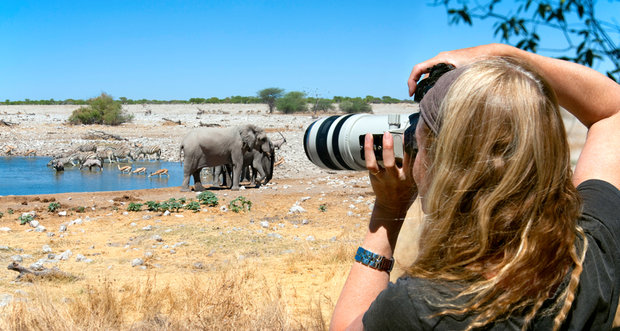
If you’re looking for a volunteer abroad experience that’s unique, exotic, and off the beaten path , look no further than Fronteering . With volunteer and internship projects located in 14 different countries, Fronteering offers impactful programs for travelers who want to visit unspoiled locations and make a positive difference in environmental conservation, wildlife research, indigenous communities, and more.
Fronteering’s volunteer abroad and intern abroad opportunities start at an affordable $695 for your first week onsite – and if you’d like to stay longer, the organization also offers placements up to 24 weeks.
Fronteering Opportunities to Check Out
Husky ranch canada.
For four to eight weeks, you’ll have the chance to feed, groom, and walk huskies , help with ranch maintenance, go dogsledding and snowmobiling (if you’re volunteering in the winter), clear and prepare dogsled tracks, and more. Located in British Columbia, Alberta, Ontario, or the Yukon, this program is excellent for volunteers who love animals and the outdoors, and starts from $1,395 for your first four weeks.
Predator Research Internship
If you’ve always wanted to visit the Amazon, Fronteering invites you to help with bush dog research and monitoring in the rainforest, with tasks such as setting camera traps, collecting data, helping with community activities, performing research, and much more. This volunteer abroad opportunity starts from one week at $695, and you’re invited to stay up to six weeks to help further research, get to know the community, and rough it in the Amazon Rainforest.
Amazon Amerindians
Through this program, you’ll delve into the jungles of Guyana to help an indigenous community create a sustainable, eco-friendly infrastructure through construction, maintenance, wildlife research, and more. And depending on your skills and background, you can also teach IT skills, build wildlife viewing camps, and much more. You’re invited to stay two to eight weeks, starting at $1,695.
A Broader View Volunteers
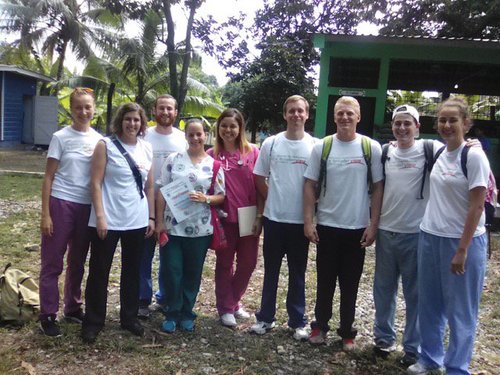
A Broader View Volunteers, a US nonprofit charity, was founded in 2007 by Sarah and Oliver Ehlers. Their team sends more than 5,000 volunteers each year to 245 programs across 25 countries, and has raised and distributed more than $3 million in donations worldwide.
A Broader View ’s goals are to provide developing countries with volunteer assistance while educating those volunteers about the communities in which they serve. Projects can include wildlife conservation , childcare , teaching , and more, and start from one week at $745, depending on the location and placement. Many of their projects are offered year-round, which provides you flexibility in terms of your start date.
A Broader View is one of the best rated programs on our site and has over 150 positive reviews on Volunteer Forever!
A Broader View Opportunities to Check Out
Ecuador: quito hippotherapy.
Volunteers in the Quito Hippotherapy program assist with rehabilitation and recreational programs with horses for those with mental or physical disabilities. Through this placement, volunteers feed and groom horses, prepare them for and handle them during therapy sessions, and may provide horseback riding lessons to the general public. Gardening and canine therapy placements also are available. Placements range from one to 12 weeks and start from $895. Volunteers must have intermediate Spanish knowledge, and immersion courses are available for those that would like to gain a greater language proficiency.
Peru: Environmental Conservation
In this conservation volunteer abroad program , volunteers work in reforestation, organic farming education, and sustainable growth at a Peruvian national park in the Madre de Dios region. Projects can include flower inventory, research, replanting, clearing holes, animal rescue, and other tasks. This program lasts one to 12 weeks and starts at $895. Spanish language background isn’t required, but is helpful while assisting on community outreach programs.
Colombia: Social Welfare Program
Volunteers in A Broader View’s Social Welfare program assist a local center that cares for children from 18 months to five years old, and that educates single mothers about child care, nutrition, and hygiene. On this placement, volunteers help provide lunch, assist in the kitchen, teach preschool lessons, and play games with the children. This program starts from two weeks at $995.
Uganda: Maternity / Midwifery Nursing Program
Based in the Bulenga community, this program provides the opportunity for volunteers to support two healthcare centers that offer maternity, ultrasound, and contraceptive services; treatment for malaria, typhoid, and diarrhea; infant care; antenatal care; and HIV/AIDS testing and counseling. Volunteers also assist with outreach and education for expectant teen mothers within the community. This program starts from two weeks at $995.
A Broader View Program Review: Logan, Honduras Medical Program
I had a great time in La Ceiba, Honduras. I did not feel unsafe or threatened at any time. My work was great and fulfilling at both the old hospital and the school. My host family was excellent and accommodating, and the food – especially the local food – was very delectable. All of the people, from the children to the patients at the hospital were very nice and respectful. I had a lot of fun with the other volunteers and I highly recommend being outgoing and personable… it will make you life way easier if you can hang out with friends and commiserate after a long day of work. I had very good Spanish entering into the program, but after 2 weeks of immersion my Spanish is crisp and fluent; I truly valued the ABV experience as a life-changing event. I am willing to speak with others about my experience.
Global Leadership Adventures

Founded in 2004, Global Leadership Adventures provides teen and high school programs abroad that combine community service with hands-on learning and adventure. With an emphasis on safety – outlined in Global Leadership Adventures’ five-point safety system – this organization sends thousands of travelers to nearly two dozen countries throughout Africa, Asia, Europe, and Latin America every year.
As a leader in youth development, Global Leadership Adventures has a database of nearly 2,000 references willing to vouch for the impact of their programs – and in fact, GLA’s co-founder was recognized by President Obama for making a positive impact in Africa.
Global Leadership Adventures Opportunities to Check Out
Dominican republic: spring break service adventure.
On this spring break program, you’ll volunteer with rural communities in the Dominican Republic and learn about their challenges in accessing daily necessities. A few projects you can take on include building schools and community centers, assisting in reforestation or water filtration projects, or building vertical gardens or clean-burning stoves. You’ll also have the opportunity to check out the beach, explore freshwater lagoons and caverns, and much more. This eight-day program costs $1,899 – click here to learn more and to register.
Dominican Republic: Global Health Initiative
Another amazing program you can sign up for in the Dominican Republic is Global Leadership Adventures’ Global Health Initiative. Perfect for students who want to pursue an education in medicine or public health, you’ll meet with community leaders to discuss health, sustainability, and education, assist traveling doctors and Peace Corps volunteers with their work, and lots more. On the adventure portion of your trip, you’ll zip line through the jungle, hike through waterfalls, and explore coral reefs on a snorkeling expedition. This 14-day program costs $3,399 – learn more here .
Galapagos: Preserving Nature’s Wonders
If you’re passionate about protecting animals and their natural habitats, check out this program in the Galapagos Islands, where you can help to restore the habitat of native wildlife. On Isabela Island, you’ll volunteer in a tortoise breeding center, and on San Cristobal Island, you’ll help to clear invasive species to allow tortoises and birds to re-inhabit the area. You’ll also be able to go snorkeling, swimming, kayaking, and hiking during this two-week program. Click here to learn more .
Ghana: Children of Africa
GLA also invites you to Ghana, where you’ll teach children in a village primary school or orphanage, make bricks for construction of new facilities, and play soccer and other team games and sports with the kids. You’ll also learn about Ghanaian culture through workshops in cloth dyeing, drumming, and local Ewe or Krobo language – and you’ll have the opportunity to meet with local tribe members and chiefs to learn about religion, social construction, and much more.
During the adventure portion of your trip to Ghana, you may have the chance to explore mountains, hike waterfalls, and explore outdoor markets. This 21-day summer trip costs $4,999, and is an amazing way to spend your summer break. Click here to learn more and to sign up !
Raleigh International
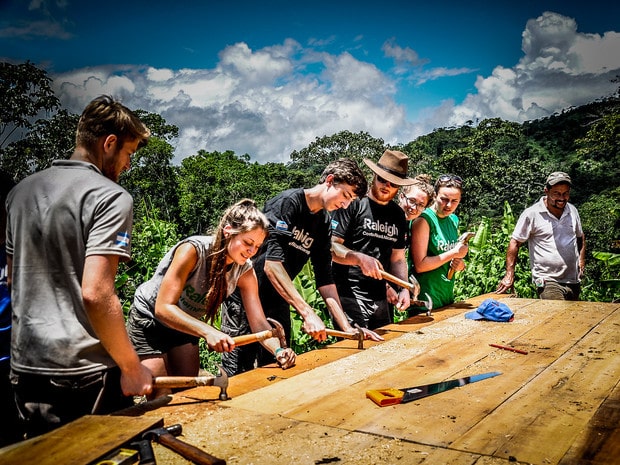
Founded in 1984, Raleigh International offers volunteer abroad programs for youth and young adults in Nepal, Nicaragua, Costa Rica, and Tanzania. Programs focus on clean water and hygiene, sustainable use of natural resources, and community building. So far, 400,000 youth volunteers have traveled with Raleigh International, with another 800 expected to sign up this year.
With a commitment to youth leadership and engagement, Raleigh International helped design and currently holds the BS8848 Safety Standard for organizing and managing visits, fieldwork, expeditions, and adventurous activities outside of the UK. If you’re in high school or college, taking a gap year, or recently graduated and looking for a way to make a difference, Raleigh International offers a wide variety of volunteer projects with a real impact led by multicultural and multinational teams.
Raleigh International Opportunities to Check Out
Nepal expedition.
One of Raleigh International’s expeditions brings you to Nepal . Based in a rural village in Gorkha, you will be able to make a difference by volunteering with an initiative to improve access to safe water and sanitation. This is especially important in an area where 85% of homes were affected by the devastating earthquake of 2015 – as a volunteer, you will help with digging trenches, laying pipes, and awareness-raising to help those living in this community lead healthy lives. As part of this expedition, you also will have the chance to go trekking in the foothills of the Ganesh Himal mountains. Learn more here!
Naturally Africa Volunteers
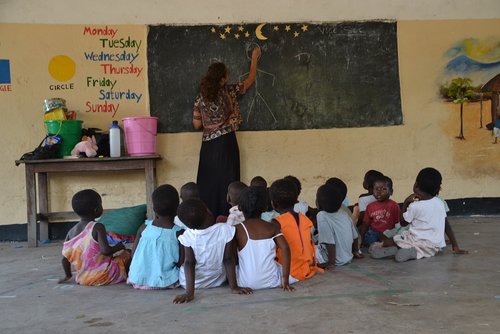
Naturally Africa Volunteers (NAV) coordinates sustainable, community-centered projects throughout Kenya , South Africa , Malawi , Tanzania , Ghana , and Namibia . Their projects tend to run from two to twelve weeks and are perfect for volunteers who are seeking shorter term opportunities in Africa. Naturally Africa Volunteers seeks to solidify its change on two levels– by coordinating high-impact, well-researched volunteers programs and by supporting its international volunteers from the moment they join the project.
NAV is dedicated to making sure that each international volunteer has the best experience possible and is able to work in close conjunction with communities across the continent. Volunteers are currently urgently needed in Malawi to assist with medical care , childcare , teaching , and sports coaching . Participants from Volunteer Forever are eligible for a reduced program fee that starts at an affordable $925 for a two week placement, which includes your room & board, transportation (including airport pickup), and contribution to the host community.
Naturally Africa Volunteer Opportunities to Check Out
Naturally Africa Volunteers supports programs in many areas of interest, including volunteer teaching , medical volunteering , sports coaching , community outreach , and wildlife and conservation . Volunteers who are interested in a short-term volunteer project (2-3 weeks) will especially be interested in NAV’s Wild Coast School Project , which places volunteers in underfunded rural South African schools supporting full-time staff and volunteers. Volunteers will have the opportunity to work with students aged 6-14 promoting computer literacy, often through traveling through rural schools alongside state-of-the-art technology education equipment including laptops that the students usually lack access to.
Naturally Africa Volunteers Program Review
My time in Malawi was amazing. Meg, Sam and Aug were the main reason. They provided a balanced view on how to go about my role as a volunteer. I can not describe how inspired I was by the whole trip and the staff at the cottage. The structure of the project was brilliant. You can clearly see the priorities. Keeping a good relationship with the village population and the elders was their main focus. Providing amazing support to the wound clinics, HIV support groups, nursery and home based care groups was incredible. I am very lucky I was part of the development of the different village I visited. At the weekends I got to experience other parts of Malawi. Like the landscape and culture outside the village. I wish I could have stayed for longer. I hope to return to Malawi in the near future. – Maria, March 2015
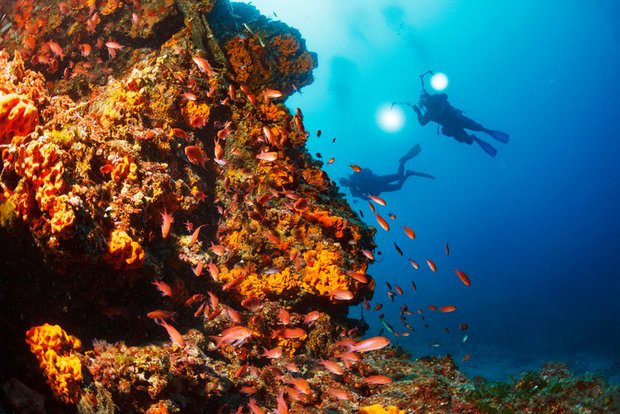
Founded over 25 years ago, Frontier combines community development, capacity building, ecosystem protection, economic growth, and the development of civil society through collaboration between local communities, researchers, and volunteers of all ages.
From their first program in Tanzania – a marine park still operating today, developed in partnership with the World Wildlife Fund – Frontier has expanded to include more than 400 projects in 72 countries around the world.
This nonprofit scientific research organization employs dedicated staff who have been published in more than 450 articles in peer-reviewed journals – and whether you’d like to take on an internship abroad, volunteer project, gap year, or teach abroad / TEFL program, Frontier is a fantastic way to travel the world and make a positive impact.
Frontier Opportunities to Check Out
Costa rica: big cats, primates, and turtle conservation.
On this program , you’re invited to gain practical research and conservation experience while helping to conserve the natural habitats of Costa Rica’s wildlife. Costa Rica has one of the world’s most biodiverse ecosystems, and your work will be vital to protecting it and ensuring endangered animals have a place to thrive. A few activities you’ll take part in include beach patrols to research turtle nesting habits, surveying and collecting data on big cats, walking primate transects to collect data on different species, and more. This program starts from one week at $1,445.
Fiji: Marine Conservation and Diving
Through this placement, you’ll have the opportunity to aid conservation research on Beqa Island, Fiji. You’ll locate and map coral reefs, conduct a reef census to discover which species live there, assess coral bleaching and damage, record marine life feeding habit observations, and much more. This research is provided to local stakeholders, research groups, and government entities to help develop plans for protection of the island and its marine ecosystem. This project starts from one week at $2,095.
Costa Rica: Animal Rescue Project
Costa Rica is home to more than 500,000 animal species in need of protection from deforestation, encroachment on natural habitats, and poaching. On Frontier’s animal rescue project in Costa Rica , you’ll volunteer in a rescue center that provides a sanctuary to animals that have been injured or that have been rescued from captivity, with the goal of reintroducing them into the wild. You’ll work alongside local staff to care for the animals – such as monkeys, sloths, raccoons, and other wildlife – and educate visitors about wildlife protection and environmental conservation. This program starts from two weeks at $1,145, plus $395 for each additional week if you’d like to stay longer.
Madagascar: Marine Conservation and Diving
If you want to go off the beaten track, take a look at this marine conservation program in Madagascar , where you can dive nearly-untouched coral reefs while studying marine life and providing valuable research into sustainable management of the island’s natural resources. A few tasks you’ll take on include charting coral reefs, recording healthy fish populations, identifying different species in the reef, studying how fishing communities utilize marine resources, and more. This volunteer program starts from one week at $1,745, with PADI Open Water and Advanced Open Water training available at an additional cost.
Big heart, but little wallet? Check out our list of free volunteer programs and affordable volunteer organizations .
P.S. If you’re still looking for a volunteer opportunity, check out our list of gap year programs and recommended volunteer projects in Asia , South Asia , Africa , Central America , South America , and Thailand . You can also read about 7 Great Medical and Veterinary Volunteer Abroad Projects , 10 Dental Volunteer Abroad Program and Medical Mission Tips for Pre Dental Students , and nursing volunteer abroad projects for students and nurse professionals . Or, if medical volunteer projects aren’t for you, be sure to read about our sports and coaching volunteer abroad , wildlife conservation and veterinary abroad, teach abroad , and intern abroad programs. Lastly, if you’re under age 18, you may be interested in a teen volunteer abroad program from one of our many great partners.
Sarah Vandenberg · Director of Partnerships
Sarah has worked as a researcher and consultant in the volunteer travel world since 2004. With a BA from the George Washington University and background working with both public and private sector volunteer organizations, she enjoys exploring the world and collecting and sharing stories, trends, and advice with travelers who want to volunteer, intern, or teach abroad.
- Follow Sarah Vandenberg:
Related guidebooks

- Prof. Development
2024 Best Internships Abroad: Medical Care, Marine Biology & More

2024 Best Teach Abroad and TEFL Programs
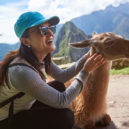
30 Best Places to Volunteer Abroad: 10 Countries & 30 Program Destinations

40 International Travel Safety Tips: Your Guide to Safety Abroad

Traveller type
- Solo Travelers
- First Time Travelers
- Female Travelers
- Senior Citizens
- Family & Group
- Teen & High School
- Volunteer Abroad
- Intern Abroad
- Teach Abroad
- Study Abroad
- Professional Development
To stay in touch! Enter your email address to get travel recommendations and be the first to know about our $500-$1,000 travel scholarships!
Thanks for signing up!
Your first email will arrive shortly

95,268 + dreams turned into reality

What is volunteering abroad?
If you are feeling altruistic and have a heart of gold, volunteering overseas gives you the unique opportunity to experience local cultures first-hand and make a real difference in critical projects and causes internationally, from Africa and Asia, Central and South America to Europe and the South Pacific. In most destinations, your dollar will go far allowing you to experience more and relax knowing you have enough money to do it all!
Volunteering abroad is one of the most rewarding experiences you can have with various placements worldwide so you can make a difference in what you are passionate about. It’s generally an all-inclusive voluntourism experience where you’ll play a vital role in creating sustainable and positive change to humanitarian projects, local communities, animal rehabilitation or rescue centres, the natural environment, or at vetted organisations and genuine charitable causes around the world. These trips also allow you to experience the real world off the beaten tourist path from hidden gems in nature to mouth watering flavourful foods! And like all trips, you will have plenty of spare time for additional activities and excursions with our support throughout.
Make a difference in the world through meaningful contributions and feel proud of the lasting positive impact you have made!
Highlights of volunteering abroad with Global
Secure your project placement before departure
Dedicated Trip Coordinator to sort everything for you from accommodation to visas to packing list
Contribute to a good cause and make a difference in the world
Experience a country and culture off the beaten tourist path
Gain international experience to add to your resumé/CV that will provide insight into your character
Our Volunteer & Travel trips
- Most booked
- Staff picks
- Price high to low
- Price low to high
- Duration high to low
- Duration low to high
Introducing...
The superlite app.

Straight from the ‘gram
Why go global, worldwide support.
Feel confident knowing that someone is always ready to assist throughout the journey & they’re only a call, tweet, comment, text or double tap away, 24/5.
We’re the experts
We don’t just say that to brag. With over 10 years in the industry and a team of over 90 passionate pros, you can bet we know our stuff better than anyone else.
Partner network
With over 1,200 partners around the globe, we have access to plenty of exclusive opportunities to make your trip the best it can be.
Payment plans
There’s no reason you can’t live out your travel dreams! If your funds are low but your desire to travel and see the world is high, don’t stress. You can pay off your trip in any instalments that you get to choose.
Lifetime Deposit Guarantee
We’re proud to offer our Lifetime Deposit Guarantee for when things don’t go according to plan. Change your travel dates for when you’re ready, or choose a totally different trip of ours. You can even gift your deposit to a friend.
Flexible trips
We understand that the unexpected happens sometimes. Can’t travel right now? Swap your trip, gift it or save it for later with our Lifetime Deposit Guarantee.
Travel inspiration
Sloths, coffee & unforgettable memories: life as a volunteer in costa rica with cemaliye b., what exactly will i be doing as a volunteer in south africa.
Want to volunteer in South Africa? Here's what you can expect to do while you're there!
The best way to get your scuba diving certification.
Don't limit your travels to surface level! Explore the aquatic world by becoming a fully certified scuba diver. Here's how you do it.
You are using an outdated browser. Please upgrade your browser or activate Google Chrome Frame to improve your experience.

- Trip Styles
- Destinations
Volunteer Travel: Take a Trip, Make a Difference
- All Inspiration and Destinations
- Canadian Rockies
- New Hampshire
- New Zealand
- North Carolina
- Vancouver Island
- Washington State
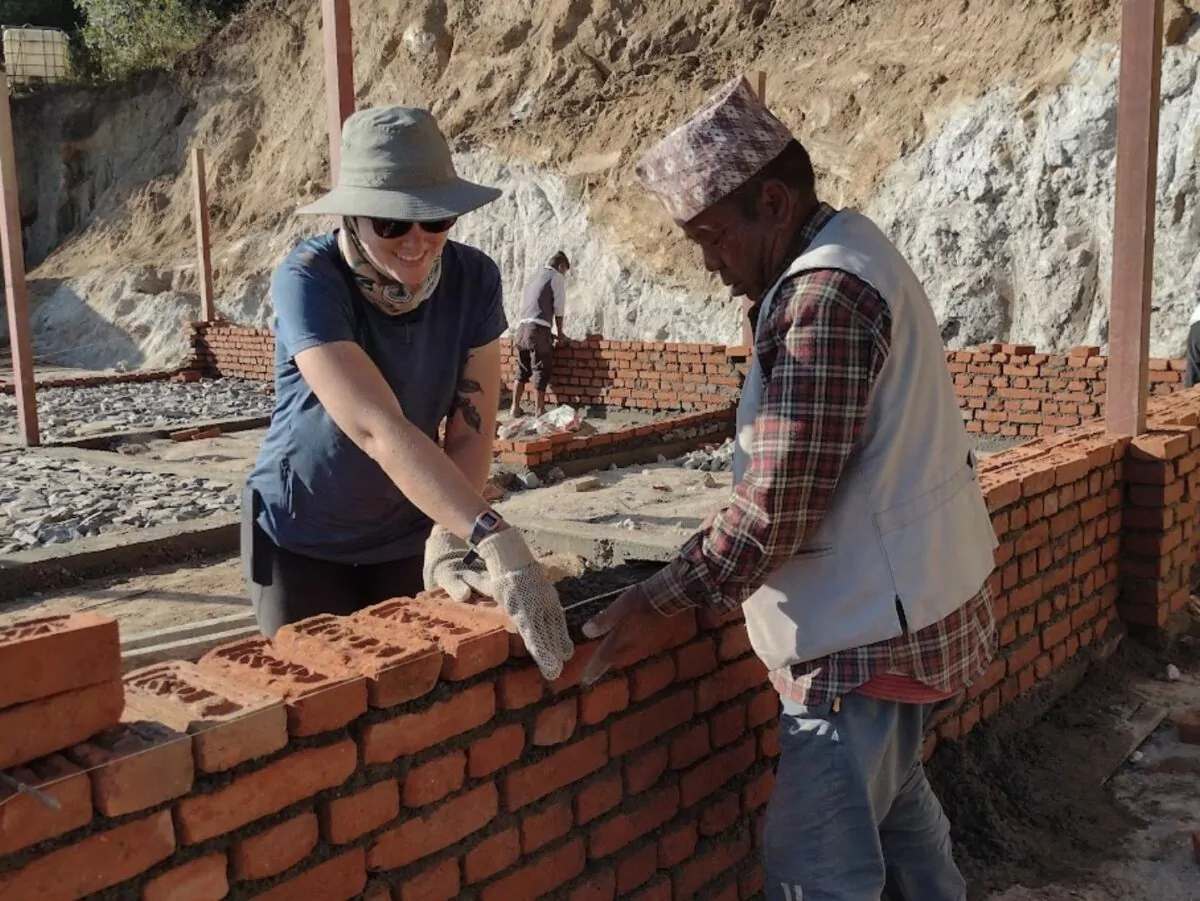
In an increasingly interconnected and globalized world, the notion of voluntourism, or volunteer travel, has achieved widespread popularity. It offers an opportunity for individuals to contribute their time and skills to wider communities while experiencing the richness of diverse cultures. This article delves into the essence of volunteer travel, examines its potential challenges, and explains how to engage in this travel trend in a sustainable way. We showcase the top organizations in the field and offer ways volunteers can create meaningful, lasting change through their travel experiences. We also highlight our exciting new service trek in the magnificent Langtang Valley in Kathmandu, Nepal.
Volunteer Travel
Volunteer travel is a combination of volunteerism and tourism, where individuals travel to various parts of the world to engage in volunteer work. This can include a variety of activities such as teaching, community development, environmental conservation, healthcare, and wildlife protection. Programs can range from a couple of weeks to a few years in length depending on how much time the individual can and desires to give. Beyond the immediate impact of their work, volunteers typically immerse themselves in the local culture, fostering a rich cross-cultural understanding and global awareness.
Why it Matters
This mode of travel is important for myriad reasons:
- Cultural Exchange: It facilitates mutual respect between volunteers and local communities, crafting a greater tolerance for and understanding of cultural differences.
- Support for Local Communities: By addressing the specific needs of the local communities, volunteer projects can provide essential services and support for underserved communities.
- Skill Development: Volunteers gain practical skills and experience that enhance their personal and professional lives moving forward.
- Environmental Conservation: Volunteers contribute to projects that protect and preserve natural ecosystem biodiversity.
- Global Awareness: Volunteering abroad helps raise awareness about global issues and encourages active, informed participation in addressing these challenges. Applied successfully, volunteer travel creates global citizens with deep empathy, cross-cultural understanding, and leadership skills.
Leading Volunteer Travel Orgs
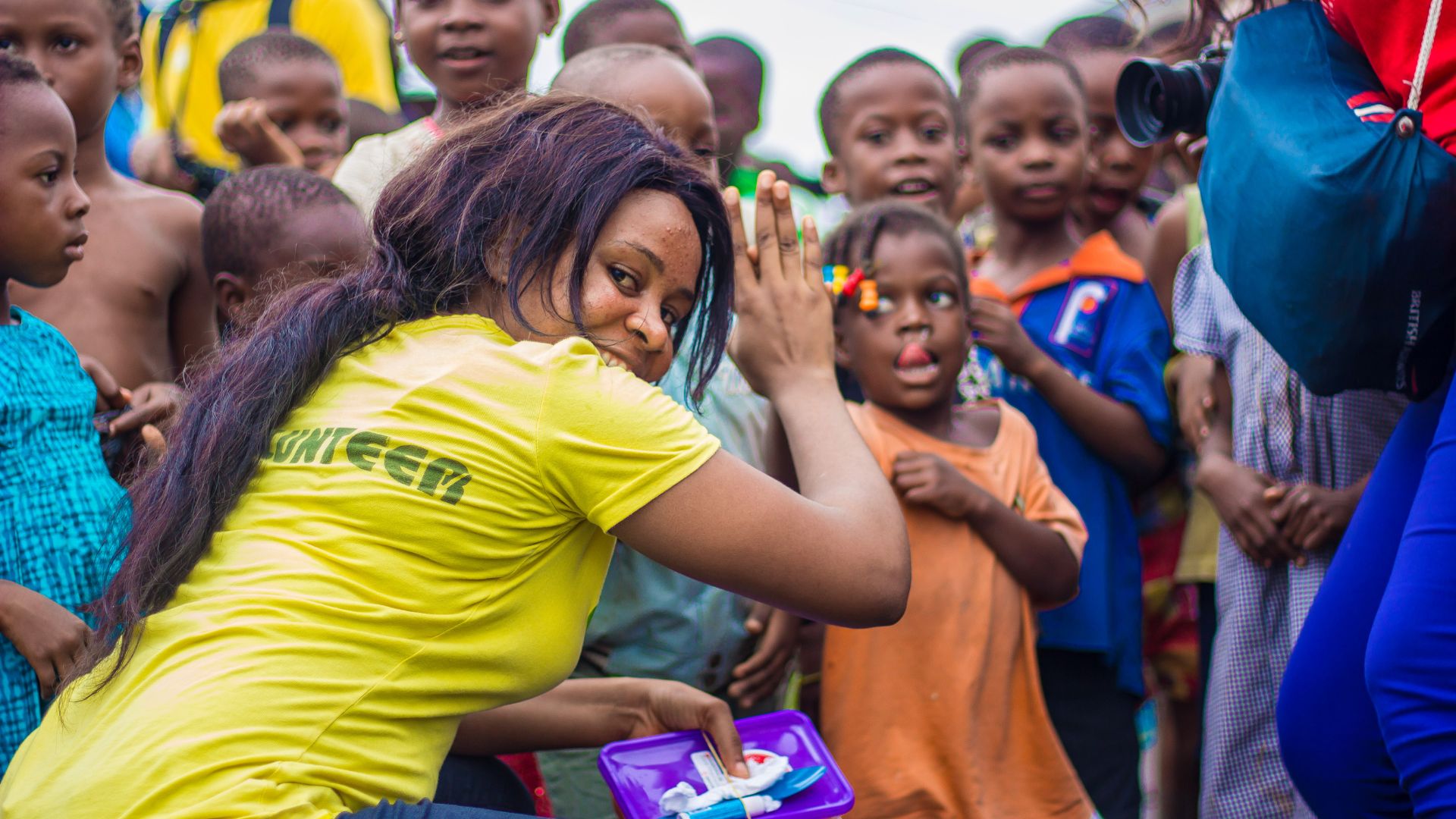
Several organizations have established themselves as leaders in the field of volunteer travel, known for their diverse and impactful programs.
Projects Abroad
Offering a wide range of volunteer travel opportunities in over 50 countries, focusing on education, conservation, community development, and more. This organization provides 24-hour support during the trip and is praised for its comprehensive support system. From high school trips, to spring break trips, study abroad, and more.
International Volunteer HQ (IVHQ)
IVHQ is celebrated for its affordability and 309 diverse program options in more than 40 countries. It emphasizes responsible volunteer travel, with projects designed to be specifically beneficial to the local communities. IVHQ provides pre-trip training and 24/7 in-country support to ensure volunteers are safe and supported.
Global Vision International (GVI)
GVI is known for upholding its commitment to ethical volunteering and sustainable development. With programs in conservation, community development, and education, GVI aligns its projects with the United Nations Sustainable Development Goals, ensuring long-term positive impact.
Cross-Cultural Solutions (CSS)
CCS focuses on sustainable community development in education and health. The organization is recognized for its long-term partnerships with the local communities and culturally immersive experiences. CCS provides robust support systems, including cultural orientation and ongoing training for volunteers.
Maximo Nivel
From one-week to gap year programs, Maximo Nivel provides affordable volunteer travel programs where everything is arranged for you. With full support from the organization, volunteers can choose to be based in Costa Rica, Peru, or Guatemala.
Potential Pitfalls in Volunteer Travel
While volunteer travel can be incredibly rewarding, it is not without its challenges. We’ve remarked on some common struggles with voluntourism and ways to avoid them.
- Ethical Concerns: Volunteer projects may inadvertently cause harm, such as creating dependency or disrupting local economies. Ensuring volunteer efforts are genuinely needed and beneficial requires careful consideration and research.
- Cultural Insensitivity: Volunteers may unintentionally disrespect local customs or impose their cultural norms leading to misunderstandings and tension. Sensitivity to cultural differences and a willingness to learn and adapt are crucial.
- Short-term Impact: Short-term volunteer placements may not lead to sustainable change and might divert resources from local initiatives to accommodate volunteers. Sustainable volunteer travel requires a focus on long-term goals and outcomes.
- Voluntourism Criticism: The commercialization of volunteer travel can lead to exploitative practices, where the primary focus shifts to profit rather than meaningful impact. Volunteers should seek out organizations with transparent, ethical practices and a genuine commitment to positive change.
Sustainable Volunteer Travel
To engage in voluntourism responsibly and sustainably, consider the following:
- Research Thoroughly! Choose reputable organizations with a proven track record of ethical practices and meaningful impact. Look for transparency in how projects are selected and managed, and seek out reviews and testimonials from past volunteers.
- Align with Community Needs. Select projects that address real, identified needs within the community. Collaborate with local organizations and stakeholders to ensure that your efforts are truly useful and sustainable.
- Be Culturally Sensitive. Take the time necessary to educate yourself about the culture, customs, and traditions of the community you will be working with. Approach your volunteer work with humility and respect and be open to learning and adapting. Check-in with your organization to see if they have educational training before leaving to volunteer.
- Focus on Long-Term Impact. Consider the sustainability of your efforts and how they contribute to long-term goals. Support projects that build local capacity and promote self-sufficiency rather than creating dependency.
- Match Skills with Needs. Choose volunteer projects that align with your skills and experience. This ensures that you can contribute effectively.
Making Voluntourism Meaningful
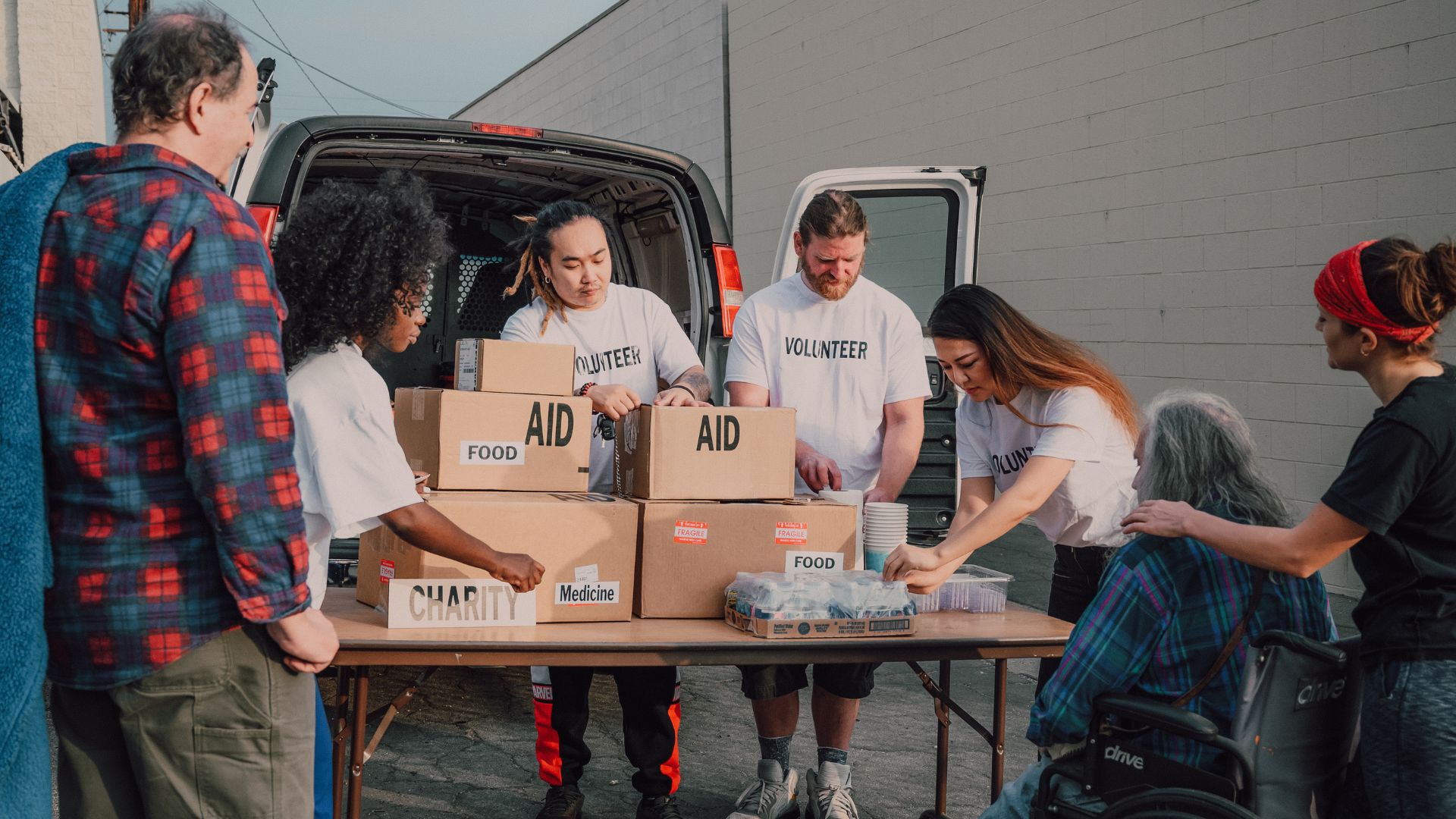
This mode of travel-meets-volunteering can be deeply meaningful for the volunteers and the communities they serve. Engaging with this service can foster personal growth, resilience, and a deeper understanding of global issues. Volunteers often return home with a renewed sense of purpose and a commitment to making a difference locally and globally. It provides practical experience and skill development that can enhance career prospects. Returning volunteers can become advocates for the issues they encounter during their volunteering, raising awareness and inspiring others to get involved. Sharing insights from personal volunteer experiences can highlight global challenges and create support for meaningful causes.
Voluntourism offers a unique opportunity to make a positive impact while exploring the world. By choosing reputable organizations, being culturally sensitive, and focusing on sustainable, long-term outcomes, volunteers can ensure their efforts are as meaningful as they are effective. In an increasingly globalized world, volunteers have the power to foster understanding, support development, and advocate for change, creating a ripple effect that extends beyond their time abroad.
Take a himalayan hiking and community service trek
Come journey with us to Langtang Valley in Kathmandu , Nepal where we will join with Backpacker Magazine to build community and make a difference. Our new service trek combines world-class trekking in the Himalayas with sustainable and meaningful service work. We will support communities in need after the 2015 earthquake that left this area in shambles. No previous skills are required, all training will be provided onsite. Learn more here .
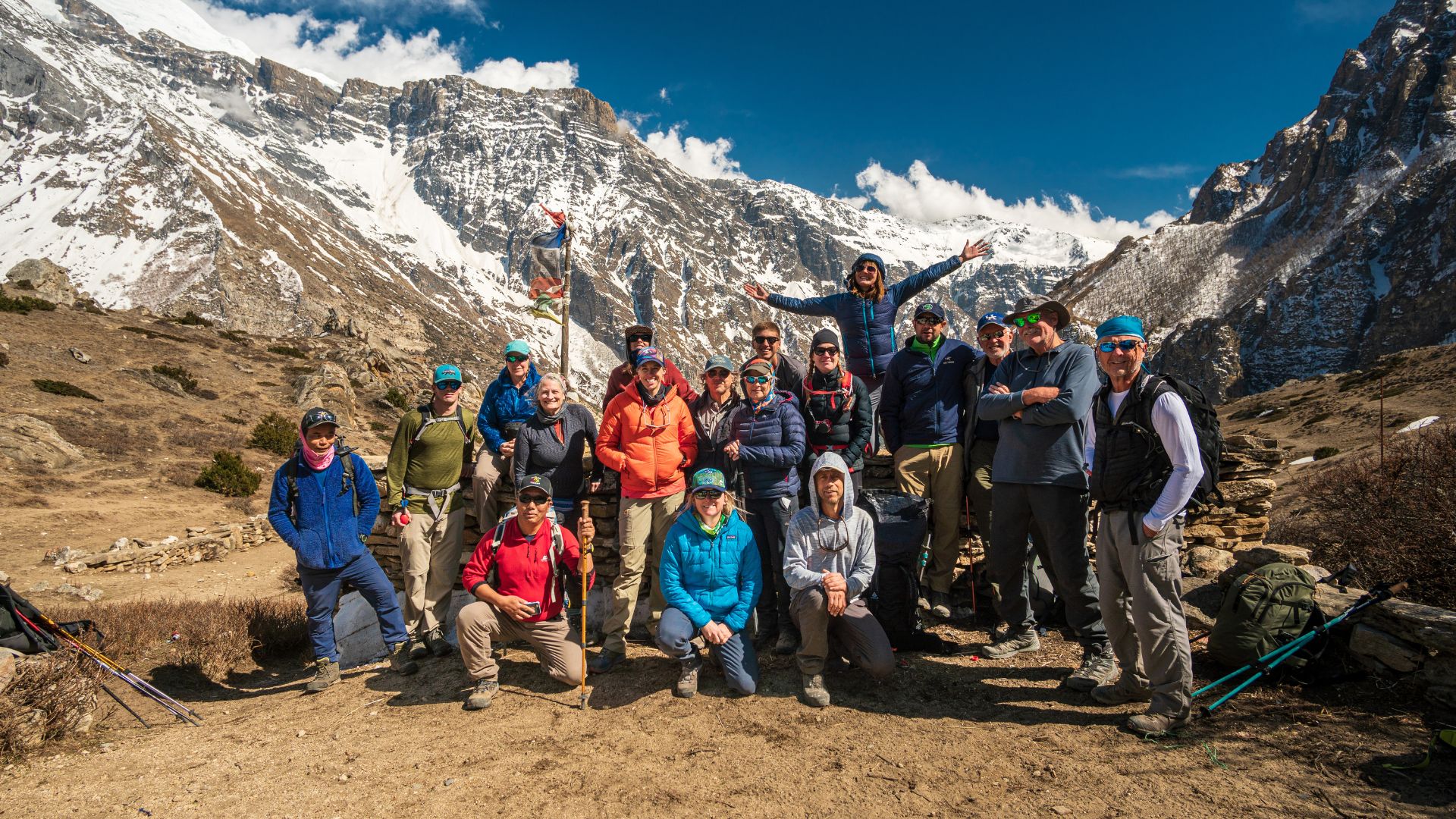
About Shelby Lynn
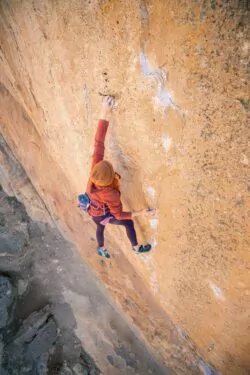
Shelby is a whimsical writer, and wanderer. Her curiosity constantly introduces her to new and inspiring escapades. Her passion for rock climbing fields adventures near and far. And rarely is she without a small library in tow. She currently resides in Salt Lake City but will forever call the Pacific Northwest home.
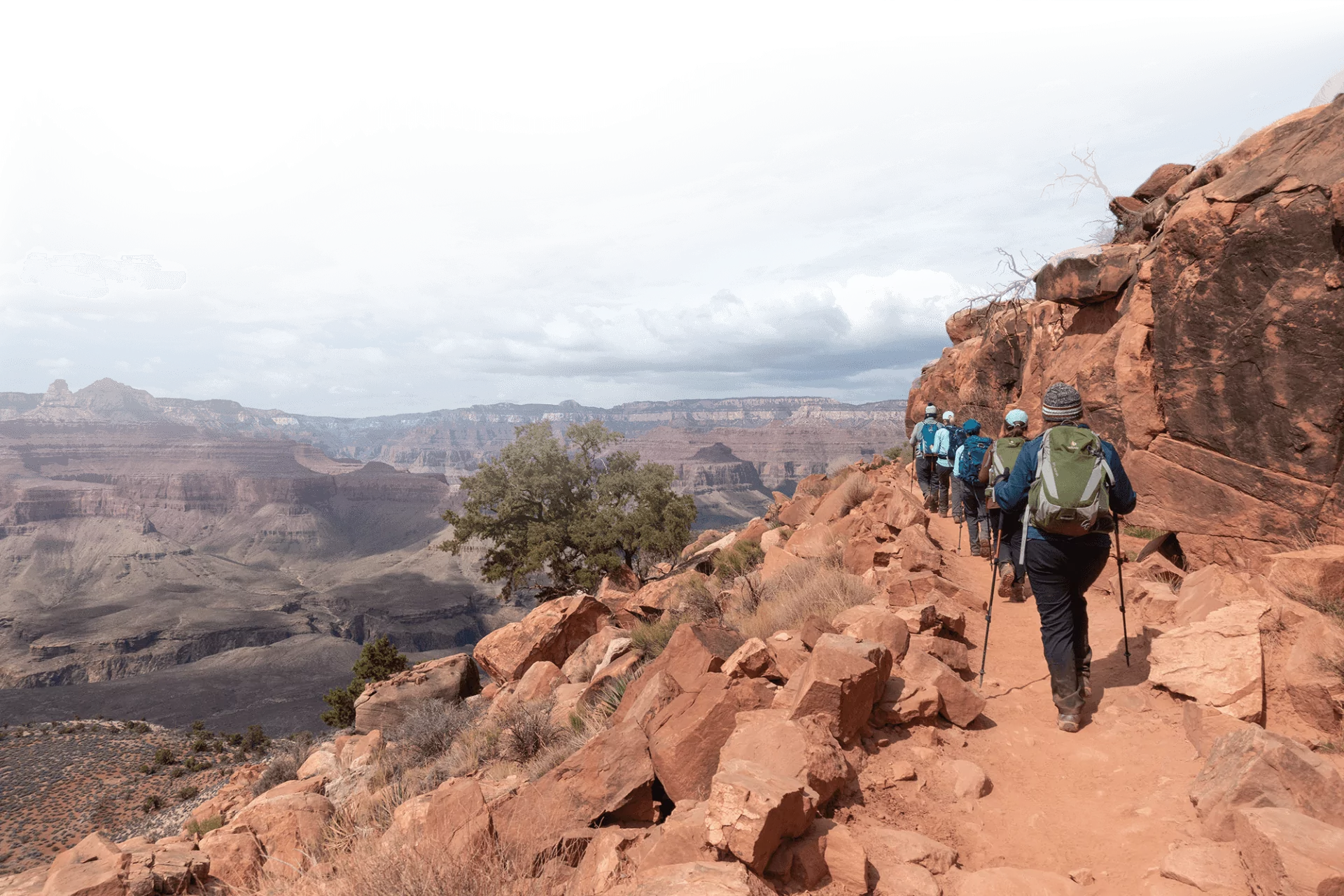
wildland Wires
Sign up to receive our exclusive Wildland Wire emails and stay up to date with Wildland Trekking's promotions, discounts, contests, outdoor tips and tricks, trip reports and more!
Send us a message and one of our Volunteer Travel Specialists will be in touch.
Fill out a quick form to get personalized recommendations from our team.
Can't call us? Let us know what date and time work for you and we'll call you.
Available 8:30 AM to 5:00 PM New Zealand time.
Current time in New Zealand:

International
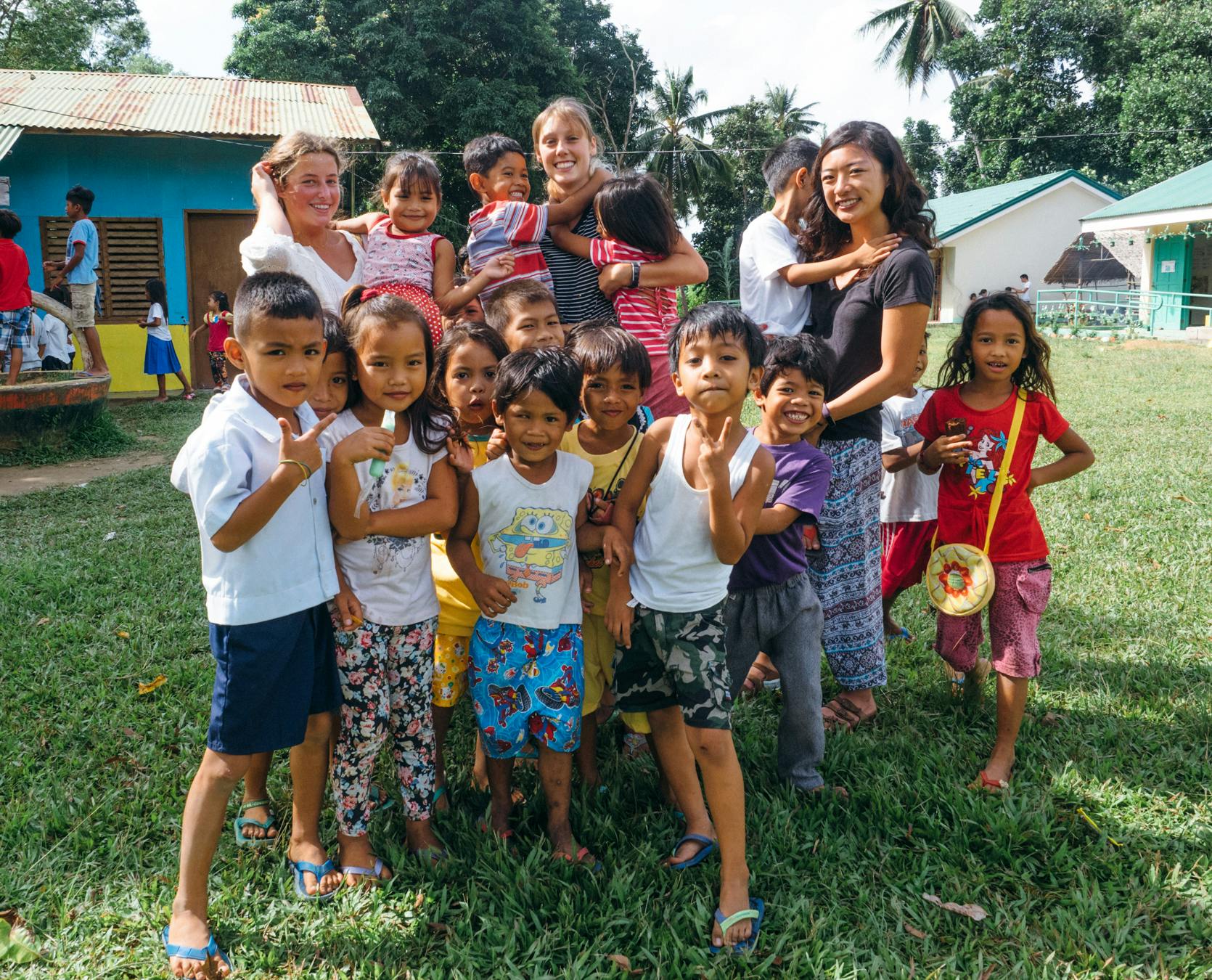
Mission Trips
Looking for short-term mission trips with everything organized for you? Every year, International Volunteer HQ supports more than 15,000 people to volunteer abroad on mission trips in 40+ countries around the world. Since 2007, IVHQ has helped more than 142,000 volunteers complete mission trips to Africa , Asia , Europe , South America , Central America , North America , the Caribbean , Middle East , and the Pacific .
IVHQ offers safe, social and fully-supported mission trips for teens , college students , families and individuals at any stage of life, as well as for those seeking summer mission trips and medical mission trips . With long-term and short-term mission trips starting at just $20/day including accommodation, meals and 24/7 in-country support, IVHQ is the world’s leading mission trip organization.
IVHQ offers both short-term and long-term mission trips with durations ranging from 1 to 24 weeks. Through IVHQ, you can choose from a diverse range of volunteer projects to support, inclduing: childcare volunteering , wildlife conservation , environmental conservation , medical volunteering , teaching abroad , and much more. These international volunteer opportunities enable you to support locally-driven projects that uplift under-resourced communities around the world.
If you’re looking to join a mission trip in 2024 or 2025, we’ve outlined IVHQ’s most popular types of mission trips and all the information you need to know to find your perfect mission.
What is a mission trip?
A mission trip is an international volunteering opportunity centered around collaborative efforts with local communities to provide essential support where it is most needed. These trips can be either religious or non-religious in nature, aiming to uplift individuals, local communities, and natural environments across the globe. IVHQ offers inclusive volunteer abroad programs that welcome participants of all ages and life stages.
Through IVHQ’s diverse range of mission trips , individuals can make a tangible impact while fostering new friendships, discovering diverse cultures, and broadening their horizons—all while contributing to the well-being of those who require assistance the most.
Why do people go on mission trips?
Mission trips are a popular way to combine your desire to travel and see with world with your motivation to give back and make a difference in the world. While some people see mission trips as an opportunity to put their faith into action, others go on mission trips for a variety of non-religious reasons, including:
To make a difference: Many people go on mission trips make a positive impact in the world through providing support to communities in a range of different ways. This could involve volunteering to teach English , building schools or homes , providing medical care , volunteering with animals or supporting environmental conservation .
To gain a new perspective: Traveling to a new country and immersing yourself in a different culture can be a life-changing and transformative experience. Mission trips allow you to see the world with fresh eyes and gain a better understanding of different cultures and ways of life.
To meet new people: Mission trips offer an opportunity to connect with people from all around the world. International volunteers work together towards a common goal, often forming life-long friendships and connections along the way.
To get out of your comfort zone : Mission trips are an opportunity to discover a new sense of purpose by stepping out of your comfort zone, discovering new countries and cultures, and living like the locals. This can be equally challenging and rewarding! Taking a mission trip is an opportunity to growth as person, discover your strengths and weaknesses and redefine your purpose in life.
While people go on mission trips for a variety of reasons, at the heart of it is a desire to make a positive impact on the world, connect with others and build a better future together.
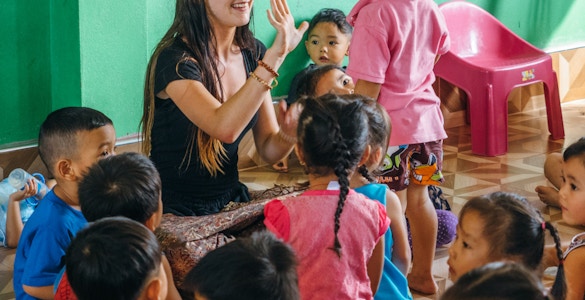
I recently returned from a mission trip to Sri Lanka and it was everything I dreamt it would be. I lived with a family in the jungle next to the longest river in the country, volunteering in a disabled childcare center. I was so happy with the project and had a wonderful - and sometimes challenging - experience. I would recommend this mission trip to anyone who wants to travel alone.
How much does it cost to go on a mission trip?
The cost of going on a mission trip varies depending on the destination and duration of the trip. IVHQ makes mission trips accessible to volunteers worldwide through affordable volunteer program fees and flexible durations.
For example, the cost of a 2-week mission trip with IVHQ to Tanzania is US$415, while a 4-week trip to India is US$585. These costs cover accommodation, meals, airport pick-up, and in-country support from IVHQ’s local team.
Additional costs that volunteers need to consider include the IVHQ registration fee , airfares, travel insurance, and any necessary visas or vaccinations. However, IVHQ provides detailed information and support to help volunteers prepare for their mission trip and manage these additional costs.
It’s worth noting that IVHQ also offers a range of fundraising ideas and resources to help volunteers cover the costs of their trip. For example, volunteers can create a fundraising page via IVHQ’s fundraising partner and share it with friends and family to collect donations.
IVHQ’s fees are transparent and inclusive, making it easy for volunteers to plan and budget for their trip without breaking the bank.
Why do a mission trip with IVHQ?
If you’re looking to join a mission trip, you likely have a social or environmental cause in mind that you’d like to contribute to. Just as you place importance on the program you join, it’s equally as important to choose a responsible mission trip organization.
At IVHQ, we believe that mission trips should contribute positively towards society. Environmental and social impact has always been at the heart of what we do, which is why we’ve undergone rigorous assessment to become a Certified B Corporation , holding us to the highest ethical standards. We’re also the first and only global volunteer travel provider to declare a Climate Emergency and our operations are certified as 100% carbon neutral.
With a B Corp stamp of approval , Program Fees starting at just $20/day including accommodation, and more than 17 years of experience , IVHQ is proud to be the mission trip organization of choice for thousands of individuals and groups looking to take a meaningful mission trip in 2024 & 2025.

Best mission trip opportunities across the globe

IVHQ offers a range of meaningful volunteer programs in Tanzania, Zambia, Victoria Falls, Madagascar, Ghana, Kenya, South Africa, Morocco, Zanzibar, Namibia, Botswana and Malawi. Explore Africa’s beauty while conserving endangered wildlife or giving back to local communities in need.
Available in 13 countries

IVHQ offers volunteer programs in 15 incredible destinations across Asia, including Bali, Cambodia, China, India, Laos, Nepal, the Philippines, Sri Lanka, Thailand and Vietnam. Discover new cultures and play a hands-on role in supporting local social and environmental projects.
Available in 12 countries
North America

Join a volunteer program in Mexico or the USA and choose from a range of meaningful projects, from Childcare and Teaching to Animal Care and Environmental Sustainability. IVHQ’s North American volunteer opportunities are based in New Orleans, or in Merida, Mexico.
Available in 2 countries
Central America

Based in the popular destinations of Costa Rica and Guatemala, IVHQ offers a range of impactful volunteer programs in Central America. Support community initiatives, work alongside locals and embrace unique cultural traditions for up to 24 weeks.
South America
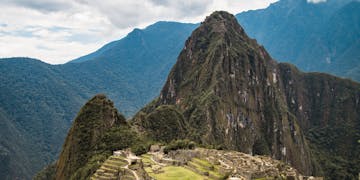
IVHQ’s volunteer trips to South America are based in iconic Latin American locations across Argentina, Brazil, Colombia, Ecuador and Peru. With unique opportunities in Teaching, Construction, Wildlife Conservation, Medical, Amazon Jungle Conservation, and more, there’s something to suit every volunteer!
Available in 6 countries

IVHQ’s Caribbean volunteer opportunities are based in and around the stunning islands of Jamaica, Belize, Trinidad and Tobago, and Puerto Rico. Give back to the local community through Teaching, Marine Conservation, Childcare, Animal Care and other impact led volunteer projects.
Available in 4 countries

Discover Europe’s rich culture and history on a volunteer program in Portugal, Spain, Italy, Greece, Romania or Croatia. Choose from a range of meaningful projects including Wolf Conservation, Youth Support, Teaching, Childcare, Special Needs Support, Environmental Scuba Diving and more.
Middle East

Explore the Middle East on a volunteer trip to Jordan. Choose from a range of community projects such as Youth Support, Women’s Education, Teaching and more. When you’re not giving back, you can explore the Middle East’s unique culture through our exhilarating tours and add-ons.
Available in 1 country

Experience the vibrant culture and welcoming communities of the Pacific on a volunteer trip with IVHQ. Choose from a range of life-enriching programs, from preserving the Great Barrier Reef in Australia and coastal waterways in New Zealand to teaching on the beautiful island of Fiji.
Available in 3 countries
Find the best mission trip for you
- Teens & High School Students
- College Students
- Summer Trips
Mission trips for teens & high school students
Joining a mission trip is one of the best ways to step outside of your comfort zone, gain new perspective and give back to communities in need. IVHQ offers a range of mission trips for high school students and teens , meaning you don’t need to be 18 to go abroad and make a difference.
Since 2007, IVHQ has supported thousands of young people to volunteer around the world on our youth mission trips. More than 20% of our volunteers are under 20, so we know a thing or two about providing life-changing, reliable travel experiences for young explorers.
We offer safe and affordable volunteer opportunities for teens and high school students in 17 destinations around the globe. Learn more about how to join a mission trip for under 18s .
Top mission trips for teens & high school students:
Volunteer in costa rica.
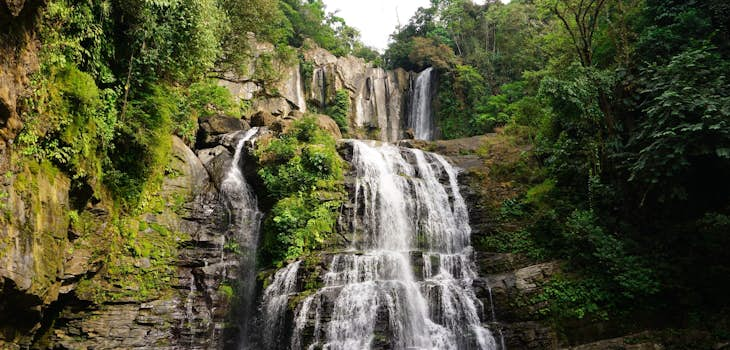
Volunteer in Guatemala
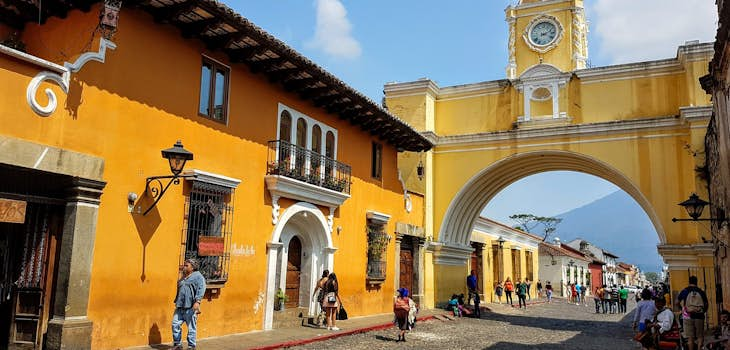
Volunteer in Tanzania
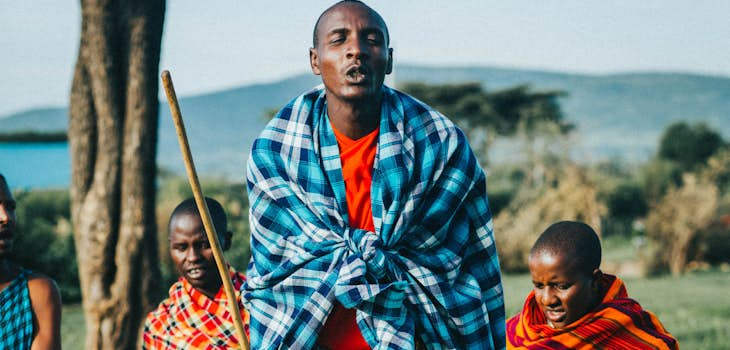
Mission trips for college students
Today’s student demographic is more progressive than ever before. That’s why student mission trips have become a popular alternative to studying abroad. Instead of studying abroad, many are opting for a more meaningful form of international travel - one that is regenerative and makes a positive impact on local communities.
IVHQ offers mission trips for college students in more than 40 countries around the world. Our mission trips to Africa are particularly popular amongst students. With fees starting at just US$20 per day, our low-cost mission trips are an affordable way for students and young professionals to discover a new country and gain a global perspective while making the world a better place.
When you go on a mission trip with IVHQ, you also have the opportunity to gain academic credit while you volunteer from as little as US$599 for 5 credits - making a super affordable alternative to studying abroad!
Top mission trips for college students:
Volunteer in peru.
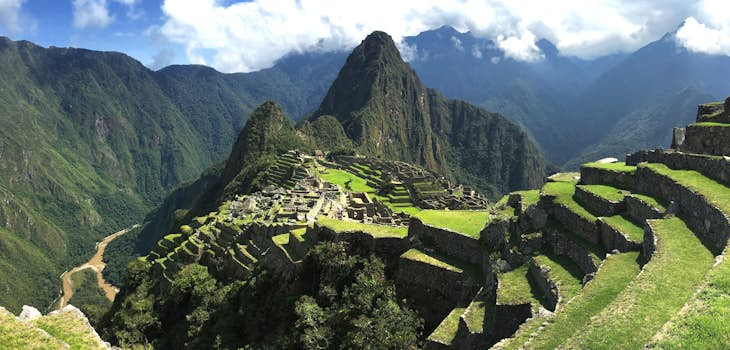
Volunteer in Victoria Falls
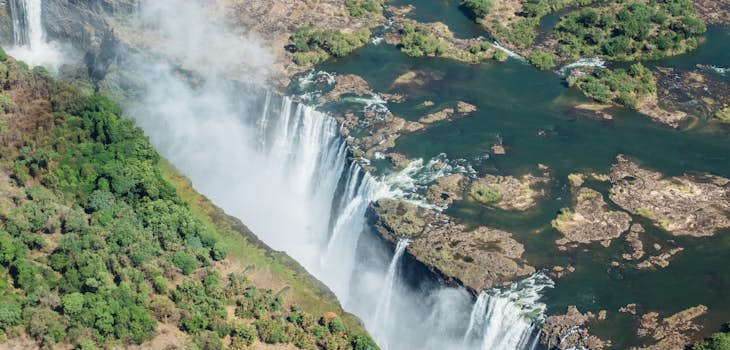
Volunteer in Zambia
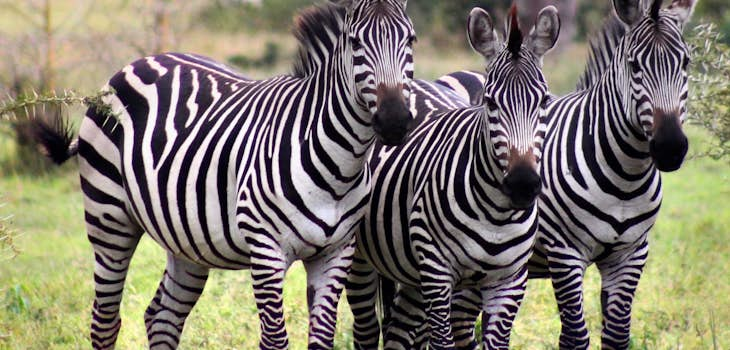
Mission trips for families
Planning a family mission trip can be a challenge, especially if you’re trying to accommodate multiple age groups. IVHQ’s fully-hosted mission trips mean that you can get away and make a difference without having to coordinate and plan for the entire family. The best part? Lots of IVHQ programs offer private room and accommodation upgrades at a very affordable price!
If you have young children, IVHQ has great options that will give you quality time together while instilling the values of service. Family mission trip opportunities are available in Africa , Asia , Europe , Central America and South America .
Our team of Volunteer Travel Experts can provide you with personalized family mission trip recommendations to match your budget and the causes you care about. Learn more about how you can go on a mission trip as a family .
Top mission trips for families:
Volunteer in kenya.
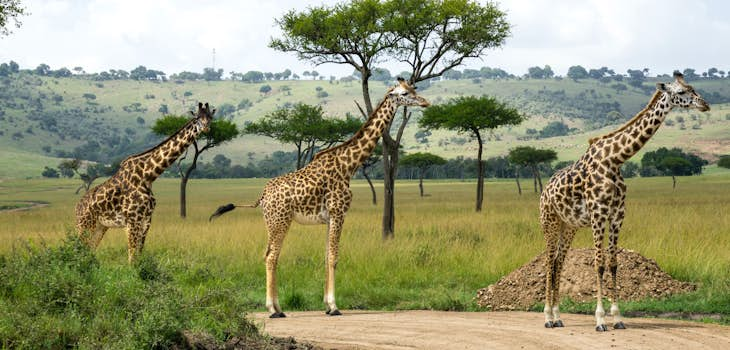
Volunteer in Portugal

Best short-term mission trips
IVHQ offers short-term mission trips for 1 to 3 weeks in over 40 countries, starting at just $20 per day including accommodation . This means you can get away and experience a new culture without needing to take ample time away from your day-to-day priorities.
Our short-term mission trips are designed for those who want to maximize impact in a short period of time and are perfect for students and professionals who are looking to take an alternative break . With everything organized for you, including airport pickup and 24/7 in-country support, you can hit the ground running as soon as you arrive at your destination. Check out our top short-term mission trips for 2024 & 2025:
Top short-term mission trips:
Volunteer in croatia.
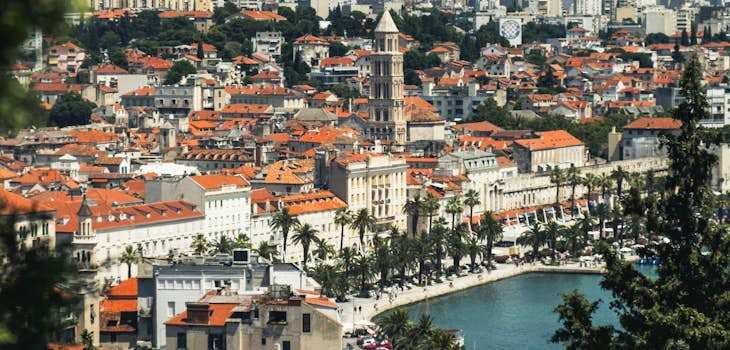
Volunteer in Ghana
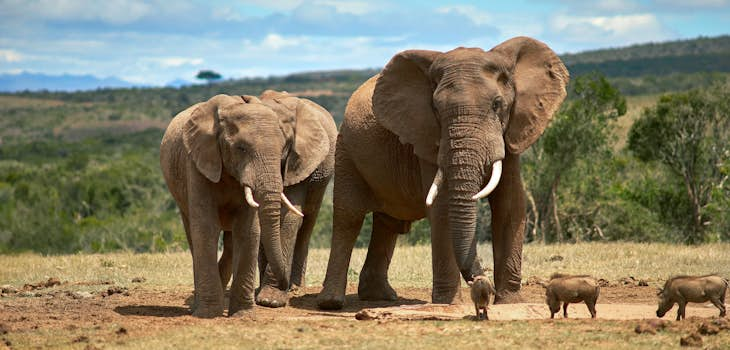
Volunteer in Mexico
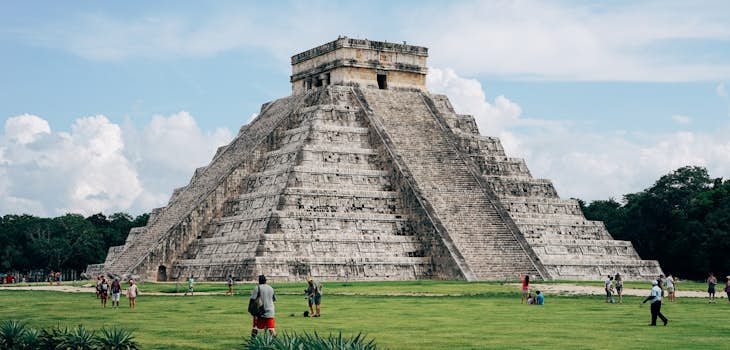
Best summer mission trips
Summer is one of the most popular times of year to go on a mission trip, allowing you to immerse yourself in a new culture and interact with locals while soaking up the sunshine. With time off from work and school, it’s the perfect opportunity to see the world and make a difference alongside like-minded people.
Whether you have a desire to volunteer abroad with animals or want to find a medical volunteer program , check out these top summer mission trips for 2024 & 2025 .
Top summer mission trips:
Volunteer in puerto rico.

Volunteer in South Africa
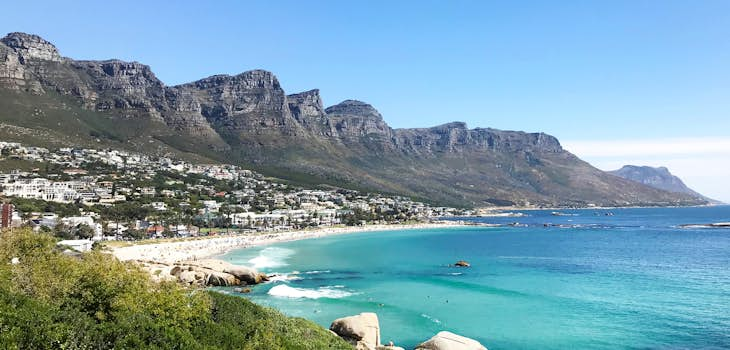
Volunteer in Zanzibar
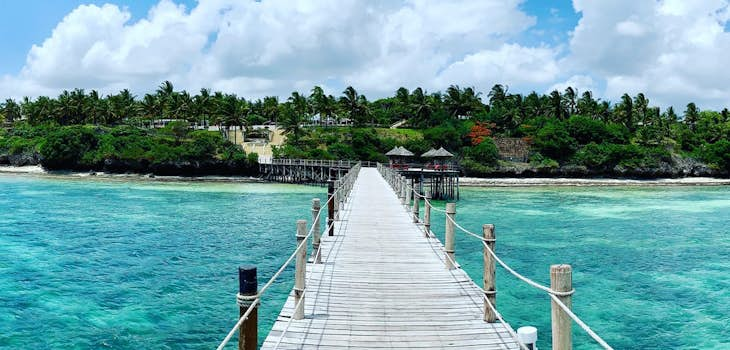
Where do you want to go?
What do you want to do?
Everywhere Select all
- Galapagos Islands
- New Zealand
- Philippines
- Puerto Rico
- South Africa
- South Korea
- Trinidad and Tobago
- Victoria Falls
- Arts & Music
- Sea Turtle & Marine Conservation
- Wildlife & Animal Care
- Environment & Conservation
- Climate Action
- Medical & Health
- Special Needs Care
- Elderly Care
- Construction & Renovation
- Community Development
- Christmas Volunteering
- Teen Summer Camps
- Women's Empowerment
- NGO Support
- Refugee Support
How to get started
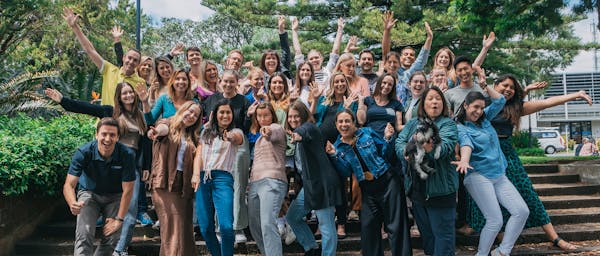
Still have questions? Let's talk!
We're here to answer all your questions so you feel 100% confident and ready for an unforgettable experience.
Be the first to know
Get exclusive offers, program opening updates, travel inspo, volunteer stories, scholarships and competitions… Straight to your inbox!
- Open access
- Published: 17 September 2024
Lessons from the COVID-19 pandemic to strengthen NCD care and policy in humanitarian settings: a mixed methods study exploring humanitarian actors’ experiences
- Éimhín Ansbro 1 , 2 ,
- Olivia Heller 3 ,
- Lavanya Vijayasingham 1 , 2 ,
- Caroline Favas 1 , 2 ,
- Jacqueline Rintjema 2 , 4 ,
- Alyssa Chase-Vilchez 5 ,
- Claire Stein 6 , 7 ,
- Rita Issa 8 , 9 ,
- Leah Sanga 1 , 2 ,
- Adrianna Murphy 2 , 10 &
- Pablo Perel 1 , 2
BMC Health Services Research volume 24 , Article number: 1081 ( 2024 ) Cite this article
Metrics details
The COVID-19 pandemic and response severely impacted people living with non-communicable diseases (PLWNCDs) globally. It exacerbated pre-existing health inequalities, severely disrupted access to care, and worsened clinical outcomes for PLWNCDs, who were at higher risk of morbidity and mortality from the virus. The pandemic’s effects were likely magnified in humanitarian settings, where there were pre-existing gaps in continuity of care for non-communicable diseases (NCDs). We sought to explore factors affecting implementation of NCD care in crisis settings during the COVID-19 pandemic and the adaptations made to support implementation.
Guided by the Consolidated Framework for Implementation Research, we undertook an online survey of 98 humanitarian actors from multiple regions and organization types (March-July 2021), followed by in-depth interviews with 13 purposively selected survey respondents (October-December 2021) . Survey data were analysed using descriptive statistics, while interview data were analysed thematically, using both deductive and inductive approaches.
Initially, humanitarian actors faced challenges influenced by external actors’ priorities, such as de-prioritisation of NCD care by governments, travel restrictions and supply chain interruptions. With each infection wave and lockdown, humanitarian actors were better able to adapt and maintain NCD services. The availability of COVID-19 vaccines was a positive turning point, especially for the risk management of people with NCDs and protection of health workers. Key findings include that, despite pre-existing challenges, humanitarian actors largely continued NCD services during the crisis. Enabling factors that supported continuity of NCD services included the ability to quickly pivot to remote means of communication with PLWNCDs, flexibility in medicine dispensing, and successful advocacy to prioritize NCD management within health systems. Key lessons learned included the importance of partnerships and cooperation with other health actors, and the mobilisation or repurposing of community health workers/volunteer networks.
Conclusions
The COVID-19 experience should prompt national and global health stakeholders to strengthen inclusion of NCDs in emergency preparedness, response, and resilience planning. Key lessons were learned around remote care provision, including adapting to NCD severity, integrating community health workers, providing context-adapted patient information, combating misinformation, and strengthening cross-sectoral partnerships.
Peer Review reports
The SARS-2 Coronavirus (COVID-19) pandemic caused unprecedented challenges worldwide, testing healthcare systems across continents, affecting populations’ health and wellbeing, and highlighting global and national inequities [ 1 , 2 ]. COVID-19 was more likely to cause severe infection and death in people who were older (75 years and above), immunocompromised or living with non-communicable disease (NCD) [ 1 , 3 ]. As early as May 2020, NCDs and COVID-19 were cast as twin epidemics and later as a “syndemic.” They acted synergistically on morbidity and mortality, and shared a common set of underlying risk factors, including socio-economic deprivation, obesity, older age, and ethnicity [ 4 ]. As COVID-19 deaths reached one million worldwide, and the key roles of social inequity and failed political leadership were recognised, there was growing acknowledgement that tackling NCDs would be a “prerequisite for successful containment” of COVID-19 [ 5 ]. This required a broader syndemic approach, encompassing housing, education, employment, health, and the environmental sectors.
For decades before the pandemic, NCDs, notably cardiovascular diseases, cancers, diabetes, and chronic respiratory diseases, were the leading causes of mortality globally. They are responsible for 41 million deaths each year, equating to 75% of total global deaths [ 6 ]. People living in low and middle-income countries (LMICs), where the majority (70%) of global NCD deaths occur, are disproportionally affected by premature NCD mortality (i.e., deaths occurring before the age of 70) [ 6 ]. For best outcomes, people living with NCDs (PLWNCDs) require functioning health systems to deliver a continuum of care. This includes early detection through screening and diagnosis; accessible and continuous care and medications; and supported self-care and education, as well as context-adapted healthy eating and exercise opportunities [ 7 , 8 ].
In parallel, more people than ever are affected by humanitarian crises, which have become more complex and prolonged [ 7 , 8 , 9 ]. Conflict, violence, and socio-economic inequity drive most of these crises, and many are now compounded by climate change. In 2021, COVID-19 overlaid other pre-existing and emerging crisis risks, as humanitarian needs remained at historically high levels. An estimated 306 million people were in need in 2021, 90.4 million more than in 2019, before the COVID-19 pandemic hit [ 10 , 11 ].
Humanitarian emergencies disrupt care for NCDs, through destruction of health infrastructure and supply chains, and by reducing access to care. The continuum from diagnosis and screening services, to medical consultation, provision of regular medicines and equipment, and referral pathways may all be affected. Limited evidence also shows that the rates of acute exacerbations, including heart attacks, strokes, asthma attacks, and amputations are increased by stress, and are higher both during emergencies and in their immediate aftermath [ 7 , 8 ]. Recent World Health Assembly resolutions and the World Health Organization (WHO) NCD Global Action Plan 2013–2030 underlined the importance of ensuring that refugees and internally displaced people can access care for NCDs [ 12 ]. However, until recently, NCDs have not been afforded the same priority as other important health concerns during acute crises, and have often been insufficiently integrated into emergency preparedness and response [ 13 ].
Refugees and other displaced people and those with limited health care access—as well as PLWNCDs—were considered “high burden” populations affected by the pandemic and its response [ 14 ]. Many national response policies to manage COVID-19 infections directly caused disruptions of NCD services along the continuum of care [ 15 , 16 ]. A WHO survey conducted from May to July 2020 indicated that about 75% of global NCD services were disrupted in the early days of the pandemic, with low (65%) and lower- middle income (49%) countries most affected [ 17 ]. In the initial months of the pandemic in 2020, NCD care was commonly disrupted because of the urgent diversion of health care resources towards the COVID-19 response, government-imposed travel restrictions, advice to high-risk people to isolate, and people’s understandable fear of attending health facilities [ 17 , 18 , 19 , 20 ]. Data from high- and middle-income countries demonstrate the consequences of foregone or delayed NCD-related healthcare seeking. These include poorer rates of diabetes diagnosis, control and up-titration of medications, and poorer CVD outcomes due to decreased access to care [ 21 , 22 , 23 , 24 ]. Reduced facility attendance or admission for acute NCD complications, such as heart attacks, often increase out-of-hospital deaths, and worsen long-term complications, including functional impairments and disability [ 20 ].
Some humanitarian actors have signalled their ability to continue NCD services with minimal disruptions during the peak of the COVID-19 pandemic [ 25 ], an ability that was not demonstrated even in stable high- and middle-income settings in the early phases of the response [ 18 ]. However, we know little about how COVID-19 disrupted NCD services in crisis settings more broadly, how actors adapted, and what factors enabled or hindered them to do so.
Though the peak of the COVID-19 pandemic is behind us, it is important that we learn lessons from this experience that may shape future NCD services and policies. Given the likelihood of another pandemic, and the fact that the climate crisis will cause more extreme weather events and compound the vulnerabilities that lead to conflict, WHO and other actors are placing greater emphasis on health system preparedness, response, and resilience. Therefore, factors affecting continuity of care for NCDs and successful adaptations to care delivery in the context of COVID-19 are important for preparing for future health service disruptions, for ongoing crises, and where marginalised or vulnerable communities have limited access to care [ 26 ]. Accordingly, we sought to explore factors affecting implementation of NCD care in crisis settings during the COVID-19 pandemic in LMICs, and the adaptations made to support implementation.
Study team and setting
The Centre for Global Chronic Conditions, in collaboration with the Health in Humanitarian Crises Centre, from the London School of Hygiene and Tropical Medicine (LSHTM), led the study in partnership with the Global Alliance for Chronic Disease (GACD) Humanitarian Crises Working Group. The research design was guided by an advisory committee of experts from key humanitarian organisations and agencies [WHO, United Nations High Commission for Refugees (UNHCR), International Committee of the Red Cross, Médecins sans Frontières, and International Rescue Committee] who work on global policies and programmes delivering NCD care in humanitarian settings. This was a global study, targeting humanitarian actors in all geographical settings, who were involved in direct delivery of NCD care during the COVID-19 pandemic.
Study design
The study used a newly developed online survey in English (Additional file 1 ) targeting humanitarian actors, followed by individual interviews (Additional file 2 ) with selected participants. We focussed on the delivery of care for hypertension, type-1 and type-2 diabetes (“DM/HTN”, implying care for either or all conditions) as these are the most common NCD types currently addressed by humanitarian organisations [ 13 , 27 ]. These conditions are also established tracer conditions, used in the healthcare quality assessment literature to assess health system or service performance [ 28 , 29 , 30 ]. These example conditions tend to be well defined, prevalent, relatively easy to diagnose, and have effective, available treatments.
Conceptual framework and definitions
We used an implementation science framework, the Consolidated Framework for Implementation Research (CFIR – Fig. 1 ) to inform the design and analysis of the survey and interviews [ 31 , 32 ]. CFIR is a practical framework, which provides a list of constructs, organised within domains, that are believed to influence implementation, either positively or negatively. It is intended to help guide the systematic assessment of potential barriers and facilitators and, thus, tailor implementation strategies and adaptations, and/or to explain outcomes. The five major domains of the framework – 1) intervention characteristics, 2) outer setting, 3) inner setting, 4) characteristics of individuals, and 5) process – provided a means to synthesise diverse interventions or adaptations in various contexts in response to a global pandemic.
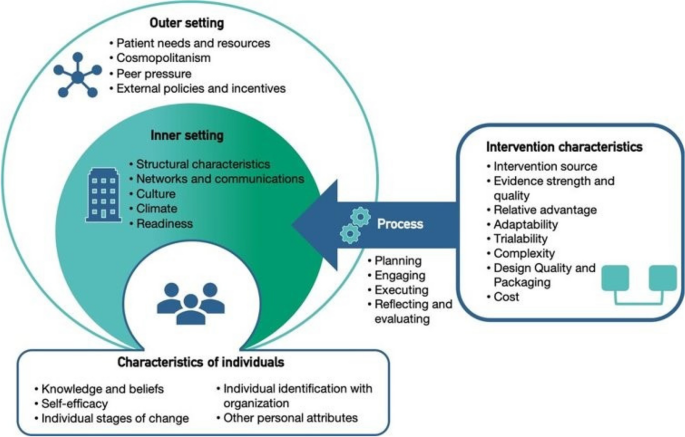
The Consolidated Framework for Implementation Research framework (2009), Source: [ 31 , 32 ]
For this study, we conceptualised the “intervention” as maintaining access to NCD care while responding to the health risks of the COVID-19 pandemic. “Maintaining access to care” was defined as the continued provision of care to the target population at a minimum acceptable level, compared to the baseline (e.g., before the pandemic), so that the services were available (i.e., with adequate human resources, equipment – including drugs – to safely deliver quality services), physically accessible and affordable, and utilised by the target population. NCD care refers to primary health care level activities for people with hypertension and/or diabetes that we propose are essential to maintain during the COVID-19 pandemic.
Data collection
The online survey (Additional file 1 ) was designed by the LSHTM team, guided by the CFIR framework constructs, reviewed by the advisory committee, and piloted. Questions focussed on the delivery of a specific programme/project, focussing on the characteristics of pre-pandemic NCD services, adaptations made in response to the pandemic, individual and inner and outer setting challenges or facilitators, and decision making. We defined the components of NCD services as: medical consultation, disease monitoring, PLWNCDs’ education and support services, and primary prevention and community screening. The survey was hosted on the BOS Online Survey tool ©. A survey link was shared with all participants via email, and the survey included screening questions to restrict participation to people with relevant profiles. It was launched in March 2021 and closed in June 2021.
For the in-depth interviews, a structured topic guide (Additional file 2 ) was used to direct the flow of conversation, and ensure coherence of discussions with the study’s aims and survey. To facilitate rapid data collection, a team of four female interviewers with a public health background (CS, AC, JS, RI) was trained by EA. Each interviewer invited two to four participants and undertook between one and three interviews. From October to December 2021, thirty participants were contacted by email, of whom 13 took part in an interview. Interviewers probed the participants with follow-up questions based on their unique responses, and at the interviewer’s discretion. Interviews took place from November to 2021 to January 2022, and lasted between 45–60 min. They were conducted online, over the phone, or via Skype or Zoom audio-conferencing platforms. Interviews were conducted in English and were digitally audio-recorded, and transcribed for analysis using MS Word and Excel. Written, informed consent, was transmitted via e-mail. Weekly meetings were held with the study team to debrief on interviews, discuss initial findings and iteratively adapt the topic guide.
Participant sampling
Project managers or medical staff directly involved in NCD care delivery at project/programme level in humanitarian settings during the COVID-19 pandemic were eligible for the online survey. Programming professionals are directly involved in the implementation of NCD programmes and service delivery, and their tacit working knowledge and experience provide invaluable insights into how the COVID-19 pandemic and policies affected NCD programmes, as well as how adaptations were formulated, coordinated, and implemented during this crisis. Using our existing GACD, LSHTM, and advisory committee networks, our partners emailed a convenience sample of their contacts who fit the sampling criteria, sharing information on the study, and inviting them to fill in the online survey. Snowball sampling of the respondents’ contacts was used to extend the sampling frame.
A sub-set of survey participants was invited to participate in in-depth interviews, six months after the survey was administered. The interview cohort was purposively selected to represent voices of participants in a range of roles in NCD programmes, from different organisation types that employed different types of adaptations, across different global regions. With input from the advisory committee, the study team defined the following selection criteria to identify follow-up interview participants: 1) geographical spread, 2) range of adaptations/ adjustments, 3) range of organizations, and 4) range of positions/ roles in NCD care delivery.
Data analysis
Descriptive tabulation of quantitative survey responses was undertaken using the Stata statistical software package [ 33 ]. The survey was conducted as a rapid response to the initial phase of the pandemic, and early findings were shared with the advisory committee.
Qualitative data from a) survey free text responses, and from b) interview transcripts, were analysed jointly, using a combination of Framework Analysis (deductive coding) and inductive open coding approaches [ 34 ]. The Framework Method provides clear steps to follow and produces highly structured outputs of summarised data. It is therefore useful where multiple researchers are working on a project, particularly in multi-disciplinary research teams where not all members have experience of qualitative data analysis. First, an a priori coding template using MS Excel was developed by EA based on the CFIR framework (Fig. 1 ) to guide the deductive coding process (performed by OH, AC, CS). A separate data-driven inductive coding exercise was conducted by EA and LV. Repeated review and the complimentary coding approaches enriched the research team’s interpretive and analytic understanding of the data. The qualitative data is presented as reconstructed narratives using both a descriptive and interpretive stance, by themes, and with direct quotes from the participants.
The survey received 98 responses, from 38 different organisations, operating in 21 different countries. Most survey respondents were working in South-East Asia, Africa, and the Eastern Mediterranean (34%, 33% and 28% respectively), and their programmes were based in protracted conflict areas (32%), and targeted refugees (83%), although 60% targeted mixed populations [i.e., a mix of refugees, internally displaced populations (IDPs), and/or host populations]. Most programmes were in camp settings (70%), and provided DM/HTN care integrated within general primary health care (63%) or with other NCDs (including cardiovascular disease and mental health care) (26%). Table 1 outlines the characteristics of the survey respondents and the NCD programmes they were involved in.
Interviews were conducted with 13 of these survey respondents. Table 2 outlines the interview participants’ characteristics.
Findings from both the survey and interviews are reported below, following the CFIR implementation framework constructs ( intervention characteristics, process, outer setting, inner setting, and characteristics of individuals ) and subconstructs, which are highlighted in italics. As mentioned, we defined the “intervention” as maintaining continuity of NCD services, while mitigating the threat of COVID-19.
Intervention characteristics
Before the pandemic, medical consultation was provided by generalist doctors in 90% of respondents’ NCD programmes; specialist doctors, nurses, and lay- or community-based health workers/volunteers were involved in 27%, 41% and 43% of respondent’s programmes, respectively. Consultations were done individually and face-to-face in most (98%) cases. Groups were utilised for consultation and monitoring, but mainly for education and prevention/screening activities. Most medical consultations were delivered in a primary care centre or health posts (89%), fewer in secondary or tertiary level hospitals (36%), and services included home visits in 25% and mobile clinics in 15% of cases.
During the pandemic response, more than half of the NCD service components provided before the pandemic were partially or fully maintained, including medical consultation (94%), disease monitoring (90%), PLWNCDs’ education and support (88%) and primary prevention and community screening services (61%). As might be expected, face-to-face individual services declined, with more than 50% of these services reduced during the pandemic, and medical consultation via home visits were cut by half. More detail on the characteristics of NCD service components before and during the pandemic are available in Additional file 3 .
Organisations’ implementation processes varied as they experienced different organisational ( inner setting ) and contextual ( outer setting ) barriers and facilitators. Services were adapted iteratively as the pandemic progressed. For example, survey respondents reported outer setting factors that hampered continuity of service delivery, including poor mobile phone coverage (28%), smartphone availability (35%) and internet connectivity (35%). PLWNCDs faced challenges in managing their disease, especially financially (49%) and mentally (42%).
The key CFIR intervention constructs that were generated from interview and survey free text data were source, evidence strength and quality, adaptability, and cost. At the onset of the pandemic, national policies immediately targeted infection prevention and control (IPC) to limit the pandemic’s spread, introducing movement restrictions, and diverting health system policy and resources to the pandemic response. In the early days, interviewees reported initial uncertainty in how to respond to these policies.
The decision to prioritise PLWNCDs and the specific adaptations made to service delivery were perceived as coming strongly from within individual organisations, with recommendations coming from WHO/UNHCR, rather than from national governments. The latter were largely perceived as having “ forgotten ” PLWNCDs in their initial pandemic response plans. The source of IPC guidance, training and equipment was perceived to be national governments, Ministries of Health, and international actors, such as the WHO and UNHCR. The UN sources were considered trustworthy and of good quality, filling essential gaps when information or action was lagging from national resources. The cost of maintaining NCD care was mainly spoken of in terms of the cost and diversion of funds into IPC measures, and the fact that pandemic-related inflation increased costs for governments, organisations, and PLWNCDs, for example, significantly increasing transportation costs. The CFIR constructs complexity, trialability and relative advantage versus other interventions did not feature strongly in the data. There were many unknowns at the beginning of the pandemic response, and there was acknowledgement that organisations did not have time to trial interventions but, instead, needed to act quickly.
In most settings, the process of maintaining NCD care could be summarised as involving the following key components: a) the introduction or enhancement of IPC measures; b) prioritisation of PLWNCDs and maintenance of clinical contact, including through remote means; c) maintenance of medication and equipment supplies; d) maintenance or adaptation of the health workforce; e) information sharing between organisations and with PLWNCDs, and countering misinformation; and iteratively adapting these approaches as the pandemic evolved:
“Adaptations done in NCD service delivery were aimed to address the safety of NCD patients from COVID-19, considering their susceptibility to mortality due to COVID-19, also safety of health care staff, from community level to health facility level” [ID01]
The CFIR constructs planning, engaging, executing, and reviewing were discussed in interviews and survey free text responses. Evaluating was less prominent in the data, given that data were collected relatively early in the pandemic response, and programmes did not have time to formally evaluate their response strategies. However, respondents reported anecdotally that their interventions were successful.
The WHO Health Sector Cluster System or UNHCR-coordination systems, which are used to coordinate multiple agencies during emergency responses, were instrumental in planning and executing the pandemic response in places where it was already established. For example, in these settings, collaboration and information sharing occurred early in the pandemic. Decisions on how to respond were generally made by the organisation’s management, although one interviewee described close engagement of clinical staff in an iterative decision-making process:
“…clinic staff, budget staff and … coordination, all three … were working together to come up with these recommendations of how to overcome the challenges at the clinic level. So, I think the recommendations came mostly from the clinic staff …but it was a collective decision. [ID31]
Infection prevention and control
Interview participants described rapidly introducing COVID-19 risk mitigation measures, including IPC protocols, such as the use of personal protective equipment (PPE), hand hygiene, and social distancing, and training on the clinical management of COVID-19. A number of participants noted there were supply delays in some circumstances. Where organisations initially suspended DM/HTN services, shortages in PPE (14%) was the most commonly reported reason. Masks and PPE were introduced as soon as supplies were available and were often provided by international non-governmental organisations (NGOs) and United Nations (UN) organisations, who stepped in when national supply chains were inadequate or too slow.
Prioritisation of people with NCDs
Respondents consistently reported that their organisations, unlike many national governments, recognised the increased risk PLWNCDS faced, and the need to prioritise their continuity of care. Organisations took varying approaches to social distancing to protect and prioritise PLWNCD and staff. For example, in some contexts, outdoor waiting areas were created, and temperature checks and triage of PLWNCDs were introduced. PLWNCDs were often separated from other primary care patients. In many, although not all, cases, only PLWNCDs with severe or uncontrolled conditions continued to be seen at facilities, by appointment only, while those with stable conditions were advised to remain at home. In a minority of cases, facility-based consultations were maintained for all PLWNCDs, while group-based activities were adapted (Additional file 3 ).
Maintaining NCD consultations
Table 3 outlines the survey response on the change or termination of NCD programmes implemented by the respondents’ organisations. Medical consultations were largely maintained or immediately adapted – only 12% of respondents reported initially suspending and then resuming them in an adapted format. The major reasons reported for suspending consultations were government-mandated movement restrictions (33%) and PLWNCDs’ fear of face-to-face attendance (24%). These factors also reduced the numbers of consultations in the initial months.
Other NCD programme components were also adapted, either immediately or after a period of brief suspension. In most cases, disease monitoring continued unchanged (46%), and the remainder of programmes simplified or reduced monitoring frequency. The few service components that were completely stopped without resumption tended to be at the community level (2% of education and support services, and 6% of primary prevention and community screening services) or involving group-based activities or mobile units (Table 3 and Additional file 3 ).
Reducing facility-based contact
Adaptations were introduced to maintain contact when PLWNCDs could not attend facilities. Face-to-face consultations were either dropped entirely (reducing from 93 to 39%) or decreased in frequency (73%). The principle means used to maintain contact with PLWNCDs remotely were via community health workers or volunteers (CHW), and via use of telemedicine.
CHWs were involved in some aspect of NCD service provision, mainly in education and support and/or NCD prevention and screening activities (Additional file 3 ). They played a role in medical and in disease monitoring in about one fifth and one third of cases, respectively. In response to the pandemic, one fifth of respondents (21%) reported additional task sharing to community-based staff. Their role was expanded to include education around COVID-19, IPC, and vaccination, active follow up of PLWNCDs, home-based clinical and adherence monitoring, and liaison with clinicians, supporting remote management of PLWNCDs. Interview participants from diverse settings highlighted the key role that CHWs played in reaching the community and gaining real-time insights on community needs, disseminating information, and gaining community trust.
In parallel, however, participants emphasised the need for adequate and regularly updated training, communication pathways, and support for CHWs:
“We ensured CHWs (were) kept on their toes in terms of trainings and refresher, information on COVID and NCD and management of NCD within the COVID-19 pandemic. Two, we ensured that CHWs also (were) giving (clinical) information back …It’s also very important to have (a) communication system where CHWs can … share information directly to you and … tell you the situation in the community…. [ID26]
Prior to the pandemic, the survey findings suggest that telemedicine via mobile or landline telephone, WhatsApp, or video consultation, was utilized by a very small proportion of our study respondents’ organisations (Additional file 3 ). The survey results also indicate a higher use of telephones during the pandemic to provide medical consultations, disease monitoring, education and support services, and primary prevention and screening. For example, 2% of respondents reported their organisations using telephone consultations pre-pandemic, which increased to 23% during the pandemic (Fig. 2 ).

Use of technology to support medical consultations before and during the pandemic
Access to and use of blood pressure and blood sugar monitors was variable. Similarly, access to digital devices with internet connectivity such as telephone, smartphones, and tablets, to communicate remotely with health facilities varied significantly. Where there was phone and internet connectivity and access to use of smart devices, programme staff were able to engage with, and monitor PLWNCDs through online platforms. Stable PLWNCDs with controlled disease were supported to self-manage at home via phone consultations or CHW visits, and this was facilitated by PLWNCDs having home monitoring devices (blood pressure machines and glucometers). This was more common in the Middle East and North African region than in Sub Saharan Africa. Lack of available self-care resources in other settings meant that PLWNCDs were not able to monitor and manage their health within their homes. In one setting, PLWNCDs were taught to self-inject insulin rather than having to attend the facility for health workers do it.
In some instances, this change in remote consultation approach was met with initial resistance. As the approach was normalised, PLWNCDs reportedly began to prefer these modes of communication.
Communication via these platforms spanned from health education and awareness, to targeted counselling and psycho-social support, where its wide reach was deemed beneficial in reducing stigma. For example, one programme provided nurse-led psychosocial support via WhatsApp groups. Uptake was increased through the delivery of “ ice breaking ” messages and the service was offered to all PLWNCDs, and therefore engagement with the service was not associated with having a mental illness.
Several examples of the CFIR constructs reviewing and evaluating were offered by interviewees. For example, several organisations realised that their initial attempts to use internet or smart phone-based technology were hampered by PLWNCDs’ lack of or uneven access to digital infrastructure, and they reverted to using telephones or community health workers to maintain contact. One interview respondent also described realising, after a period of implementing phone consultations, that doctors required specific guidance and tools to undertake these safely and consistently.
Maintaining supply of medication and equipment
At the beginning of the pandemic, most interview participants described issues with procurement of medication and IPC equipment, and national level supply chains being diverted to the pandemic response. Supply issues were reported as the main reason some programmes initially stopped or suspended DM/HTN service. In addition, almost half (45%) reported internal supply issues within their organisation which hampered continuity of care, and one third (32%) reported introducing adaptations to medication procurement or supply in response to the pandemic.
Key adaptations to medication supply included increasing the dispensing interval to three months (32%) (following WHO guidance), allowing family and friends to pick up medications from facilities (48%), and in one case, having community health workers deliver medication to people’s homes. The reduced frequency of medication pick-ups was seen as a useful to mitigate exposure to the virus in high-risk populations and to reduce crowding, caseload, and the number of people in health facilities.
Interviewees indicated that supply chain challenges lasted up to about four months and were resolved through national and international interagency collaboration.
Maintaining the health workforce
Survey participants cited staff absence due to COVID-19-related illness or quarantine (60%), and staff burnout (49%) as key internal organisational challenges to maintaining continuity of NCD care during the pandemic. Many health care workers were diverted from their usual roles to the pandemic response, their movements were physically restricted during the “lockdowns”, and interviewees recounted their initial “ panic” and high stress levels.
Strong interorganisational collaboration, particularly within camp settings, allowed organisations to pool their human resources and “cross-cover”, for example, taking on another organisation’s PLWNCDs when they had a COVID-19 outbreak among staff. One organisation reported creating two teams of staff who worked in separate shifts, to minimise burn-out and infection risk. To alleviate these workforce challenges, several reported task-sharing within the facility (25%) and/ or to community-based staff (21%) (Additional file 4 ). Interviewees cited improved supply of PPE and the introduction of COVID-19 vaccines as pivotal changes that protected staff and reduced their fear.
Sharing information and countering misinformation
Themes around use of existing data and data sharing between organisations were generated inductively from the interviews. The importance of patient registries was clearly highlighted, since they allowed staff to track NCD patients, which enabled continuity of care, and information sharing with patients. Where the WHO Health Cluster and UNHCR coordination mechanisms were strong, particularly in camp-based settings, agencies pooled their NCD patient lists and supply data, allowing agencies to share resources and collectively respond.
Communication strategies were key throughout the pandemic response. During the initial phase of the pandemic, programmes focussed on urgently communicating the infection risks and prevention strategies, through public and programme-based communication. Additional messaging on the importance of follow-up care for NCDs was then necessary, to counter people’s fear of attending facilities. Once vaccines were introduced, a new wave of messaging was required and implemented in many of the programmes—this time on the merits and safety of COVID-19 vaccines, and to counter misinformation and vaccine myths.
“At the beginning it was very difficult. You know, the misinformation “oh the COVID-19 vaccine it makes you die.” …we worked in coordination with other health services with the refugee camp and community health volunteers conducting home visits to ensure all NCD patients (got) the vaccine… [ID09]
Community health workers, where they were active, played an important role in delivering these messages, and interviewees also reported using social media, such as Facebook and WhatsApp, SMS messages in some settings, and more traditional loudhailers to spread educational messages, where settings were conducive to this e.g. in camps.
Inner setting
Structural characteristics of the surveyed organisations – most of which were humanitarian actors used to working in volatile settings, assessing acute needs, and rapidly intervening – and their internal networks and communications were important elements in quickly responding, and iteratively adapting to the pandemic. Narratives from the interviews, which were conducted about six months after the survey took place, highlighted that after the initial uncertainty, programme staff felt better equipped to manage the evolving circumstances. Interviewees highlighted their organisations’ resilience, inherent agility, and ability to adapt, and several expressed pride in their organisation’s success in coping, and maintaining continuity of care for PLWNCDs. Furthermore, teamwork and coordination were often strengthened by the pandemic response and several respondents proposed retaining these adaptations after the pandemic.
The physical infrastructure and camp versus urban setting characteristics were highly influential. Movement within camps was less challenging than moving in and out of camps, or within urban areas, and, where host populations used health services within camps, their access was jeopardised.
Strong baseline data collection systems and processes within an organisation enabled assessment of the situation, follow-up of individual patients and data sharing with other organisations:
“In our facility, we have one dedicated register for non-communicable diseases patient… so our dedicated team, continuously (kept) tracking these patients…and we (kept) connection with our community health workers ...” [ID02]
However, other organisations felt hindered by the lack of available data and data infrastructure in planning and rolling out their response.
Generally, interviewees were receptive to the changes that had to be made in response to COVID-19, the idea of protecting PLWNCDs, while maintaining continuity of care fit with individual and organisational norms and values. Interviewees generally felt they had support and feedback from managers. However, many described undertaking additional tasks with a reduced workforce and staff burnout as a prominent theme in both survey and interviews. Some participants also described a lack of “back-up” emergency plans, including alternative workflow plans when staffing was short.
Views on PPE training were mixed; some described it as delayed or improperly carried out. There were also contrasting accounts of CHW training, which was poor in some settings and highly successful with bespoke CHW training packages being developed in other settings. Overall, quick development and dissemination of training programmes, including for non-medical and CHWs, often through online/remote modules from various international and local health actors were recognised as an important enabling factor in continuing NCD care in a safe manner:
“All health workers had training about the IPC measures during COVID-19, and how to deal with patients. This was online training… done at the beginning of the crisis, through the WHO…on their website….” [ID09]
Outer setting
Participants were asked about their awareness of PLWNCDs’ needs and resources and their attempts to prioritise them. Survey respondents cited physical restrictions (88%), social restrictions (60%), fear of attending health services (54%), financial hardship (49%), and poor mental health (42%) as the key challenges faced by PLWNCDs during the pandemic (Additional file 4 ). They attempted to overcome them by introducing remote modalities for consultations and monitoring, and strong, agile messaging campaigns.
As anticipated, respondents highlighted established structural and infrastructural challenges in providing NCD care that existed before the pandemic, including a lack of NCD policy and funding and national economic pressures. More general challenges faced by humanitarians operating within an emergency response, such as fragmented health systems, with pluralistic actors, sometimes operating in vertical programmes with limited integration, were also noted.
The degree to which an organisation was networked with other external organisations ( cosmopolitanism within CFIR) proved a crucial enabler in rapidly adapting and maintaining care for PLWNCDs during the pandemic, and a key theme that was identified from surveys and interview data. Interviewees described utilising pre-existing networks of health actors and WHO-led health cluster meetings, especially in camp-based settings, with a significant strengthening of these relationships, and day-to-day collaboration increasing far beyond pre-pandemic levels. Examples of this included creating a master list of NCD patients within camps, cross covering each other’s operations and borrowing each other’s resources, including health workers, medical supplies, and community volunteer networks. These networks offered key support and a degree of peer pressure or competitive pressure to implement interventions.
One example of a new cross-sectoral collaboration was offered, whereby a health organisation repurposed a CHW network, which was usually involved in protection activities, to engage in active follow up of PLWNCDs. Government stewardship and leadership were also highlighted as key enablers to rapid response and adaptation.
External policies and incentives played a key role as either barriers or enablers. The lack of national-level emergency preparedness plans and mechanisms for coordination between health actors were highlighted by many respondents. Narratives around the early instructions from various Ministries of Health suggest a strong initial focus on infection control, and de-prioritisation of other services, including those for chronic disease:
"COVID took all the, let's say the light and only cases with COVID were prioritized. So no, I think NCDs were pulled back during the pandemic." [ID09]
A lack of pre-existing national-level policies and funding for NCDs, followed by the diversion of funding and staff time in public facilities to infection control measures and COVID-19 treatment hampered the continuity of NCD services and referrals. External policies by partner hospitals or health facilities also influenced the continuity of some NCD programme components. For example, non-emergency referrals to secondary and tertiary care hospitals were often postponed.
Other potential adaptations to reduce facility-based contact for PLWNCDs were hindered by the lack of enabling policies and national infrastructure. For example, policy barriers prevented longer-term dispensing of medicines in some contexts, and the lack of legal mechanisms to enable task sharing or telehealth consultations limited adaptions of service delivery in others. The baseline utility and availability of technology in the local context was a clear influence on the remote care modalities that could be introduced. Respondents reported a lack of national infrastructure to facilitate virtual or remote health activities prior to the pandemic, including for consultations, prescriptions, and medication delivery. Thus, while organisations were initially advised to use social media, smartphones etc., many found that this was unrealistic in their settings.
Persistent advocacy and engagement with Ministries of Health was successful in changing the policy approach towards NCD services and dispensing of medicines. Respondents suggested further advocacy was needed with governments to include NCDs as priority conditions in future emergency response, to allow for longer dispensing intervals to reduce the burden of facility attendance, and to build on technology and infrastructure to allow for remote consultation and dispensing. In Table 4 , below, we summarise our findings around the contextual factors, intervention characteristics and other barriers and enablers that influenced the continuity of NCD care in humanitarian settings during the COVID-19 pandemic. We also note our study participants' recommendations for action to maintain NCD care continuity during future crises (Table 4 ).
To our knowledge, this is one of the first studies to document factors affecting the implementation of NCD care in LMIC humanitarian settings during the COVID-19 pandemic [ 25 ]. A key finding was that NCD services were largely maintained throughout the pandemic response. Respondents’ organisations minimised interruptions to NCD care, while mitigating the risks of COVID-19, by adapting to enable remote care and reduce facility-based contact. Our study respondents highlighted how the pandemic response exacerbated the pre-existing challenges they faced in delivering NCD care in crisis-affected countries. Most humanitarian actors operate in fragile LMIC settings, where health systems are often under-resourced and fragmented, and where national-level emergency preparedness and response mechanisms may be limited. Reflecting the experience in other parts of the world, our data highlighted that initial COVID-19 responses seemed to de-prioritise PLWNCDs, health system resources were diverted away from NCD care and, especially in many LMIC settings, access to pandemic mitigation strategies, PPE and vaccines was frequently delayed [ 11 ]. Maintaining NCD care during the pandemic was also hampered by the lack of pre-existing policy or infrastructure to support remote care modalities, the fear and misinformation around COVID-19, and the initial resistance to remote care expressed by PLWNCDs.
Despite the challenges, humanitarian actors were adept at implementing context-adapted changes to support continuity of NCD services, which is consistent with findings from a similar study [ 25 ]. The humanitarian system’s in-built flexibility and agility, existing humanitarian coordination mechanisms, and strong experience communicating with PLWNCDs and advocating with authorities were all supportive factors. The UN agency coordination mechanisms, including the WHO health cluster approach and UNCHR working groups enabled quick coordination and sharing or repurposing of partner resources. When it was available, strong data collection on NCDs, such as patient registries and supply monitoring, underpinned this effective interagency coordination. Humanitarians’ experience with previous outbreaks, such as cholera and Ebola, while different, may have allowed them to react in a more agile manner than national health systems could. In keeping with this, LMIC countries that were most successful in their pandemic response built on prior outbreak experience and on existing community resources, including community health workers [ 14 ].
The key role of community health workers and volunteers in facilitating continuity of NCD care, sharing key information, and building trust among communities stood out in our data. This is consistent with other studies, which found that, with adequate and timely resources, including adapted protocols, training, and PPE, pre-existing CHW programmes were able to continue with minimal disruption during the pandemic [ 15 , 33 ] . The key part CHWs played in many of the pandemic responses recounted here reflects their pre-existing role in refugee camp settings and within Sub-Saharan African and in Southeast Asian health systems. By contrast, the role is not often utilised in the Middle East and North Africa, and it has been highlighted as a potential area for development [ 35 ]. There is growing evidence for the positive impact of CHWs on NCD management both in stable LMIC settings, and in maintaining services during periods of disruption [ 36 , 37 , 38 , 39 , 40 , 41 ]. However, in expanding this role in future NCD programmes, lessons must be learned around the need to adequately support CHWs with resources, supervision and training [ 42 ].
Telehealth, defined as “the combined use of the internet and information technology for clinical and organisational purposes, both locally and remotely”, has been touted as one innovative approach to maintaining continuity of care for PLWNCDs that should be retained and built upon post-pandemic [ 43 , 44 ]. According to the WHO, telemedicine and patient triage were the most common mitigation strategies used to reduce NCD service disruption in the early days of the pandemic [ 17 ]. However, our study reflects the literature around the introduction of telehealth – its success is highly contingent on national infrastructure, smartphone ownership rates, and internal organisational factors. Moreover, clear guidance, training and culturally-congruent communication all support its successful implementation [ 45 ]. Our data also highlight the need for guidance for clinicians in the use of telemedicine, in keeping with previous calls for specific WHO guidance on the development and use of digital health solutions for NCD care [ 20 ]. Narratives from this study suggest that the wider use of self-care, via home-based monitoring equipment, coupled with tele-health or CHW networks may be beneficial. These modalities may increase access to care, especially in crisis settings, where populations may be cut off from facilities, or where populations are marginalised or hard to reach. However, their cost effectiveness, acceptability and feasibility in different contexts must be tested with robust implementation research [ 46 , 47 ].
Introducing telemedicine may increase health inequalities [ 42 ]. Throughout the pandemic, the use of digital health for NCDs has not been equitable across world regions, disease types, or populations [ 43 ]. Indeed, the COVID-19 pandemic has highlighted and entrenched existing global inequalities - essential health workers, migrants, refugees and other displaced or marginalised populations, and those living with NCDs were among the groups most burdened by its effects [ 14 ]. It shone a spotlight on the global NCD epidemic and the enormous negative health, social and financial effects NCDs bring, the magnitude of which far outweighs that of the pandemic [ 48 ].
Implications and recommendations for practice and policy
Humanitarian actors and health systems continue to learn lessons from the COVID-19 response that may enhance models of NCD care. Our data support calls for more person-centred, community-based care that limits facility-based contact. Developing such models would be useful beyond the pandemic, as they bring care closer to people’s homes and communities and improve access by decreasing transport and time cost burden on vulnerable, resource-limited, and marginalised patients. They also decrease the risk of nosocomial infections, and potentially decrease the burden on health facilities and staff, allowing more time to be spent on quality care. The means of achieving this must be adapted to the context, but may include increased use of community health workers, telephone consultations, home-based disease monitoring and adapted dispensing practices. The potential for social media and CHW networks to spread reliable health messaging was also highlighted in our study. We recommend that new or adapted models of care should be co-developed with PLWNCDs, and evaluated for cost-effectiveness, using implementation research approaches. Training on NCDs and adequate supervision and funding is needed for health care providers – including CHWs – to build and retain their role in supporting communities. Increased funding and advocacy for the inclusion of NCDs in emergency preparedness and response is essential. Finally, we recommend further implementation research to evaluate some of the adaptations described here, for example, CHW- an/or tele-health supported self-care.
The COVID-19 pandemic exposed how underprepared the health systems of many countries were to respond to the global NCD epidemic. For example, only 42% of low-income countries included the continuity of NCD services in their national COVID-19 plan [ 20 ]. WHO has highlighted steps to “build back better” NCD services post-pandemic, such as including NCDs in national emergency response and preparedness plans, and strengthening baseline NCD data collection and NCD supply management systems [ 49 ]. In keeping with the “health for all” paradigm, NCDs should be integrated into strengthened primary health care within a universal health care approach, and access must be extended to people who are forcibly displaced by humanitarian crises.
Strengths and limitations
This study was designed in the early days of the pandemic to gain insights that could be useful to humanitarians as they rolled out their responses. Engagement with an expert advisory committee, and pre-existing relationships with global humanitarian actors, provided access to respondents from multiple global regions. The survey and interviews took place at different time points in the pandemic, enabling the generation of insights relating to different response phases. Analysis was guided by an implementation study framework, which helped synthesise findings from diverse contexts.
However, the survey was not designed to identify the number of unique programmes, nor was it designed to detect differences in service delivery approaches before and during pandemic with statistical power. We cannot comment on the actual level of service use, on how it may have changed, nor on what impact any of the documented adaptations may have had on clinical outcomes, including complication rates and mortality.
We note that our survey’s initial convenience sampling approach, via study partners and existing networks, facilitated reaching major international humanitarian actors, such as UNHCR, but resulted in few local NGOs being included. This sampling frame meant that most survey participants worked in camp settings, despite most refugees and other forcibly displaced populations now living in urban, integrated settings [ 50 ]. The findings around enhanced communication and collaboration may, therefore, be less generalisable to non-camp-based settings. Despite producing a version in Spanish to encourage responses from South America, we had few responses from the Americas and from the Western Pacific. This was presumably because the major relevant NGOs had limited operations in these regions. Offering the survey in French and Arabic, for example, may have increased responses from other regions. Fewer than half of the invited interviewees accepted to participate, possibly because they were still actively involved in the pandemic response. We also acknowledge that PLWNCDs themselves were not included as participants in this study and recommend further research to learn from and respond to their experiences of the pandemic.
The lessons around factors affecting continuity of care for NCDs and successful adaptations to care delivery in the context of COVID-19 are important for preparing for future health service disruptions, including in contexts experiencing ongoing crises or where marginalised or vulnerable communities have limited access to care. Our study findings reenforce global calls for more investment, strengthened partnerships and greater integration of NCDs into emergency preparedness, and building of resilient health systems.
Availability of data and materials
The datasets used and/or analysed during the current study are available from the corresponding author on reasonable request.
Data availability
The data that support the findings of this study are not openly available due to reasons of sensitivity and are available from the corresponding author upon reasonable request. Data are located in controlled access data storage at the London School of Hygiene & Tropical Medicine.
Abbreviations
Community Health Worker or Volunteer
Consolidated Framework for Implementation Research
SARS CoV-2 Coronavirus
Diabetes Mellitus
Global Alliance for Chronic Diseases
- Hypertension
Infection Prevention and Control
Low- and Middle-Income Country
London School of Hygiene & Tropical Medicine
Non-communicable Diseases
Non-governmental Organisation
People Living with Non-communicable Disease
Personal Protective Equipment
United Nations
United Nations High Commissioner for Refugees
World Health Organization
Al-Oraibi A, Nellums LB, Chattopadhyay K. COVID-19, conflict, and non-communicable diseases among refugees. eClinicalMedicine. 2021;34. Available from: https://www.thelancet.com/journals/eclinm/article/PIIS2589-5370(21)00093-6/fulltext . Cited 14 Feb 2023.
Booth A, Reed AB, Ponzo S, Yassaee A, Aral M, Plans D, et al. Population risk factors for severe disease and mortality in COVID-19: A global systematic review and meta-analysis. PLoS ONE. 2021;16:e0247461.
PubMed PubMed Central Google Scholar
Kluge HHP, Wickramasinghe K, Rippin HL, Mendes R, Peters DH, Kontsevaya A, et al. Prevention and control of non-communicable diseases in the COVID-19 response. The Lancet. 2020;395:1678–80.
Google Scholar
Sheldon TA, Wright J. Twin epidemics of covid-19 and non-communicable disease. BMJ. 2020;369: m2618.
PubMed Google Scholar
Horton R. Offline: COVID-19 is not a pandemic. The Lancet. 2020;396:874.
World Health Organization. Non communicable diseases: Key Facts. 2022. Available from: https://www.who.int/news-room/fact-sheets/detail/noncommunicable-diseases . Cited 31 Oct 2022.
Jawad M, Vamos EP, Najim M, Roberts B, Millett C. Impact of armed conflict on cardiovascular disease risk: a systematic review. Heart Br Card Soc. 2019;105:1388–94.
Ngaruiya C, Bernstein R, Leff R, Wallace L, Agrawal P, Selvam A, et al. Systematic review on chronic non-communicable disease in disaster settings. BMC Public Health. 2022;22:1234.
UNHCR. UNHCR Global Trends 2023. UNHCR. 2023. Available from: https://www.unhcr.org/ie/global-trends . Cited 17 Feb 2024.
OCHA. OCHA’s Strategic Plan 2023–2026: Transforming Humanitarian Coordination | OCHA. 2023. Available from: https://www.unocha.org/publications/report/world/ochas-strategic-plan-2023-2026-transforming-humanitarian-coordination . Cited 13 Dec 2023.
UNHCR. Global Trends Report 2022. UNHCR. 2022 [cited 2023 Dec 13]. Available from: https://www.unhcr.org/global-trends-report-2022 . Cited 13 Dec 2023.
World Health Organisation. WHO | Global Action Plan for the Prevention and Control of NCDs 2013–2020. WHO. 2015. Available from: https://www.who.int/nmh/events/ncd_action_plan/en/ . Cited 17 Feb 2015.
Ansbro É, Issa R, Willis R, Blanchet K, Perel P, Roberts B. Chronic NCD care in crises: A qualitative study of global experts’ perspectives on models of care for hypertension and diabetes in humanitarian settings. J Migr Health. 2022;5:100094.
Sachs JD, Karim SSA, Aknin L, Allen J, Brosbøl K, Colombo F, et al. The Lancet Commission on lessons for the future from the COVID-19 pandemic. The Lancet. 2022;400:1224–80.
Luciani S, Caixeta R, Chavez C, Ondarsuhu D, Hennis A. What is the NCD service capacity and disruptions due to COVID-19? Results from the WHO non-communicable disease country capacity survey in the Americas region. BMJ Open. 2023;13: e070085.
Yaacoub S, Zmeter C, Abbas LA, Leresche E, Kdouh O, Hammoud R, et al. Has the COVID-19 pandemic changed the utilization and provision of essential health care services from 2019 to 2020 in the primary health care network in Lebanon? Results from a nationwide representative cross-sectional survey. PLoS ONE. 2023;18: e0288387.
World Health Organization. Pulse survey on continuity of essential health services during the COVID-19 pandemic: interim report, 27 August 2020. 2020. Available from: https://www.who.int/publications-detail-redirect/WHO-2019-nCoV-EHS_continuity-survey-2020.1 . Cited 31 Oct 2022.
World Health Organization. Non-communicable Diseases Progress Monitor 2022. 2022. Available from: https://www.who.int/publications-detail-redirect/9789240047761 . Cited 12 Nov 2022.
Nikoloski Z, Alqunaibet AM, Alfawaz RA, Almudarra SS, Herbst CH, El-Saharty S, et al. Covid-19 and non-communicable diseases: evidence from a systematic literature review. BMC Public Health. 2021;21:1068.
The World Health Organization. The impact of the COVID-19 pandemic on noncommunicable disease resources and services: results of a rapid assessment. 2020 Sep. Available from: https://www.who.int/publications-detail-redirect/9789240010291
Holland D, Heald AH, Stedman M, Hanna F, Wu P, Duff C, et al. Assessment of the effect of the COVID-19 pandemic on UK HbA1c testing: implications for diabetes management and diagnosis. J Clin Pathol. 2021; Available from: https://jcp.bmj.com/content/early/2021/10/12/jclinpath-2021-207776 . Cited 15 Feb 2023.
Carr MJ, Wright AK, Leelarathna L, Thabit H, Milne N, Kanumilli N, et al. Impact of COVID-19 on diagnoses, monitoring, and mortality in people with type 2 diabetes in the UK. Lancet Diabetes Endocrinol. 2021;9:413.
Del Pinto R, Ferri C, Mammarella L, Abballe S, Dell’Anna S, Cicogna S, et al. Increased cardiovascular death rates in a COVID-19 low prevalence area. J Clin Hypertens. 2020;22:1932–5.
Wright FL, Cheema K, Goldacre R, Hall N, Herz N, Islam N, et al. Effects of the COVID-19 pandemic on secondary care for cardiovascular disease in the UK: an electronic health record analysis across three countries. Eur Heart J - Qual Care Clin Outcomes. 2023;9:377–88.
Miller L, Alani AH, Avril N, Jingree ML, Atwiine AB, Amire KA, et al. Adaptation of care for non-communicable diseases during the COVID-19 pandemic: a global case study. BMJ Glob Health. 2022;7: e006620.
World Health Organization. Strengthening health emergency prevention, preparedness, response and resilience. 2023. Available from: https://cdn.who.int/media/docs/default-source/emergency-preparedness/who_hepr_wha2023-21051248b.pdf?sfvrsn=a82abdf4_3&download=true . Cited 17 Feb 2024.
Jaung MS, Willis R, Sharma P, Aebischer Perone S, Frederiksen S, Truppa C, et al. Models of care for patients with hypertension and diabetes in humanitarian crises: a systematic review. Health Policy Plan. 2021;36:509–32.
Kessner DM, Kalk CE, Singer J. Assessing Health Quality — The Case for Tracers. N Engl J Med. 1973;288:189–94.
Lindström K, Berg L, Rylander B, Hagman A, Olsson L, Bengtsson C. A model for quality assessment in primary health care using the tracer condition technique with insulin treated diabetes as one of the tracers. Scand J Prim Health Care. 1997;15:92–6.
Nolte E, Bain C, McKee M. Diabetes as a Tracer Condition in International Benchmarking of Health Systems. Diabetes Care. 2006;29:1007–11.
Damschroder LJ, Aron DC, Keith RE, Kirsh SR, Alexander JA, Lowery JC. Fostering implementation of health services research findings into practice: a consolidated framework for advancing implementation science. Implement Sci. 2009;4:50.
Research Team-Center for Clinical Management Research. The Consolidated Framework for Implementation Research – Technical Assistance for users of the CFIR framework. 2022. Available from: https://cfirguide.org/ . Cited 11 Nov 2022.
StataCorp. Stata Statistical Software: Release 18. College Station, TX: StataCorp LLC.; 2023. https://www.stata.com/support/faqs/resources/citing-softwaredocumentation-faqs/ .
Gale NK, Heath G, Cameron E, Rashid S, Redwood S. Using the framework method for the analysis of qualitative data in multi-disciplinary health research. BMC Med Res Methodol. 2013;13:117.
Cragg, L, Davies, M, Macdowall W. Health Promotion Theory. 2013. Available from: https://www.mheducation.co.uk/health-promotion-theory-9780335263202-emea-group . Cited 17 Feb 2024.
Washington CH, Tyler FJ, Davis J, Shapiro DR, Richards A, Richard M, et al. Trauma training course: innovative teaching models and methods for training health workers in active conflict zones of Eastern Myanmar. Int J Emerg Med. 2014;7:46.
Perri HB, Ed. National Community Health Worker Programs from Afghanistan to Zimbabwe. 2020. https://chwcentral.org/resources/health-for-the-people%E2%80%8B-national-community-health-worker-programs-from-afghanistan-to-zimbabwe . Cited 17 Feb 2024.
Farzadfar F, Murray CJ, Gakidou E, Bossert T, Namdaritabar H, Alikhani S, et al. Effectiveness of diabetes and hypertension management by rural primary health-care workers (Behvarz workers) in Iran: a nationally representative observational study. The Lancet. 2012;379:47–54.
Newman PM, Franke MF, Arrieta J, Carrasco H, Elliott P, Flores H, et al. Community health workers improve disease control and medication adherence among patients with diabetes and/or hypertension in Chiapas, Mexico: an observational stepped-wedge study. BMJ Glob Health. 2018;3: e000566.
Neupane B. Integrating nutrition in local governance structures: An example from suaahara program Nepal. FASEB J Conf Exp Biol. 2015;29.1. Supplement.741.3. https://doi.org/10.1096/FASEBJ.29.1_SUPPLEMENT.741.3 .
National Health Mission India. Module for Multi-Purpose Workers (MPW) - Female/Male on Prevention, Screening and Control of Common Non-Communicable Diseases. Available from: https://main.mohfw.gov.in/sites/default/files/Module%20for%20Multi-Purpose%20Workers%20-%20Prevention%2C%20Screening%20and%20Control%20of%20Common%20NCDS_2.pdf . Cited 17 Feb 2024.
Salve S, Raven J, Das P, Srinivasan S, Khaled A, Hayee M, et al. Community health workers and Covid-19: Cross-country evidence on their roles, experiences, challenges and adaptive strategies. PLOS Glob Public Health. 2023;3: e0001447.
Bouabida K, Lebouché B, Pomey M-P. Telehealth and COVID-19 Pandemic: An Overview of the Telehealth Use, Advantages, Challenges, and Opportunities during COVID-19 Pandemic. Healthcare. 2022;10:2293.
Abd-Alrazaq A, Hassan A, Abuelezz I, Ahmed A, Alzubaidi MS, Shah U, et al. Overview of Technologies Implemented During the First Wave of the COVID-19 Pandemic: Scoping Review. J Med Internet Res. 2021;23: e29136.
Favas C, Ansbro É, Eweka E, Agarwal G, Lazo Porras M, Tsiligianni I, et al. Factors Influencing the Implementation of Remote Delivery Strategies for Non-Communicable Disease Care in Low- and Middle-Income Countries: A Narrative Review. Public Health Rev. 2022;0. Available from: https://www.ssph-journal.org/articles/ https://doi.org/10.3389/phrs.2022.1604583/full . Cited 17 Aug 2022.
Slama S, Kim H-J, Roglic G, Boulle P, Hering H, Varghese C, et al. Care of non-communicable diseases in emergencies. The Lancet. 2017;389:326–30.
Remme M, Narasimhan M, Wilson D, Ali M, Vijayasingham L, Ghani F, et al. Self care interventions for sexual and reproductive health and rights: costs, benefits, and financing. BMJ. 2019;365: l1228.
Pan X-F, Yang J, Wen Y, Li N, Chen S, Pan A. Non-Communicable Diseases During the COVID-19 Pandemic and Beyond. Eng Beijing China. 2021;7:899–902.
World Health Organization Regional Office for South-East Asia. Integration of NCD care in emergency response and preparedness. 2018. Available from: https://www.who.int/publications-detail-redirect/9789290226352 . Cited 17 Feb 2024.
Guterres A, Spiegel P. The state of the world’s refugees: adapting health responses to urban environments. JAMA. 2012;308:673–4.
Download references
Acknowledgements
We would like to acknowledge the Global Alliance for Chronic Disease Humanitarian Working Group, Dr James Smith, and our Advisory Board of humanitarian and United Nations actors: Dr Philippa Boulle, Dr Sigiriya Aebischer Perone, Dr Lilian Kiapi, Dr Mike Woodman, and Dr Slim Slama.
EA, CF, AM, PP received LSHTM salary support from Novo Nordisk AAS for this study. The co-authors received no specific funding for their role in the study. The funder had no role in the conceptualization, design, data collection, analysis, decision to publish, or preparation of the manuscript.
Author information
Authors and affiliations.
Department of Epidemiology of Noncommunicable Diseases, Epidemiology & Population Health, London School of Hygiene & Tropical Medicine, London, UK
Éimhín Ansbro, Lavanya Vijayasingham, Caroline Favas, Leah Sanga & Pablo Perel
Centre for Global Chronic Conditions, London, School of Hygiene & Tropical Medicine , London, UK
Éimhín Ansbro, Lavanya Vijayasingham, Caroline Favas, Jacqueline Rintjema, Leah Sanga, Adrianna Murphy & Pablo Perel
Service de Médecine Tropicale Et Humanitaire, Hôpitaux Universitaires de Genève, Geneva, Switzerland
Olivia Heller
Faculty of Law, University of Toronto, Toronto, Canada
Jacqueline Rintjema
Global Alliance for Chronic Diseases, Wellcome, London, UK
Alyssa Chase-Vilchez
Help Age International, Yangon, Myanmar
Claire Stein
Faculty of Economics and Business, University of Groningen, Groningen, The Netherlands
School of Global Development, University of East Anglia, Norwich, UK
T.H. Chan School of Public Health, FXB Center for Health and Human Rights, Harvard University, Boston, USA
Department of Health Services Research and Policy, Public Health & Policy, London School of Hygiene & Tropical Medicine, London, UK
Adrianna Murphy
You can also search for this author in PubMed Google Scholar
Contributions
EA, CF, AM and PP conceived of and designed the study. EA, CS, ACV, RI collected data. CS, ACV, OH, LV, EA, LS analysed data. EA, OH, LV drafted the manuscript and all authors reviewed drafts.
Corresponding author
Correspondence to Éimhín Ansbro .
Ethics declarations
Ethics approval and consent to participate.
Ethics approval to conduct this study was obtained from the LSHTM Ethical Review Committee (ID 22825). Details of the study focus were shared with participants prior to the survey and interviews. Their written informed consent was obtained before data collection commenced. Participants’ identifying information or the organisations they represent have not been included to ensure their anonymity.
Consent for publication
Not applicable.
Competing interests
The authors declare no competing interests.
Additional information
Publisher’s note.
Springer Nature remains neutral with regard to jurisdictional claims in published maps and institutional affiliations.
Supplementary Information
Supplementary material 1., supplementary material 2., supplementary material 3., supplementary material 4., rights and permissions.
Open Access This article is licensed under a Creative Commons Attribution 4.0 International License, which permits use, sharing, adaptation, distribution and reproduction in any medium or format, as long as you give appropriate credit to the original author(s) and the source, provide a link to the Creative Commons licence, and indicate if changes were made. The images or other third party material in this article are included in the article's Creative Commons licence, unless indicated otherwise in a credit line to the material. If material is not included in the article's Creative Commons licence and your intended use is not permitted by statutory regulation or exceeds the permitted use, you will need to obtain permission directly from the copyright holder. To view a copy of this licence, visit http://creativecommons.org/licenses/by/4.0/ .
Reprints and permissions
About this article
Cite this article.
Ansbro, É., Heller, O., Vijayasingham, L. et al. Lessons from the COVID-19 pandemic to strengthen NCD care and policy in humanitarian settings: a mixed methods study exploring humanitarian actors’ experiences. BMC Health Serv Res 24 , 1081 (2024). https://doi.org/10.1186/s12913-024-11458-2
Download citation
Received : 29 March 2024
Accepted : 19 August 2024
Published : 17 September 2024
DOI : https://doi.org/10.1186/s12913-024-11458-2
Share this article
Anyone you share the following link with will be able to read this content:
Sorry, a shareable link is not currently available for this article.
Provided by the Springer Nature SharedIt content-sharing initiative
- Humanitarian
- Noncommunicable
- Implementation
- Service delivery
BMC Health Services Research
ISSN: 1472-6963
- General enquiries: [email protected]

IMAGES
VIDEO
COMMENTS
At Global Volunteers, we take a positive, innovative approach to comprehensive human and economic development. We leverage the world's endlessly renewable resource - volunteers - to catalyze change while always working under the direction of resourceful local leaders. Our volunteers create, nurture, and sustain the well-being of the world's children and their families through targeted ...
The Bali program is one of IVHQ's best volunteer abroad programs, with between 40-80 volunteers starting each month. There are six different projects available, with everything from Turtle Conservation to Childcare Support, so there's plenty of variety to customizes your meaningful volunteer trip to Asia.
With over 1,600 volunteer opportunities, there's a project out there for everyone. Explore your destination as you work and help local communities reach their goals. See a side of your travel destination that tourists never get to see and connect with the locals on a profound level. Volunteer opportunities are your gateway to meaningful travel.
United Planet is an international non-profit organization with a mission to create a global community, one relationship at a time. We connect people who want to make a difference in communities across the world through overseas volunteer travel programs, global virtual internships & volunteering, and project-based virtual exchange programs.
Volunteer as a Group. Volunteer Worldwide: Push beyond your boundaries and see what a difference you make! Help children and families thrive on the best volunteer abroad programs available. Build, teach, and provide care on stimulating and cohesive service programs. These are measurable and meaningful projects that truly change lives!
Program length: 1-52 weeks Price point: $$$ What's included: hostel or host family accommodation, 3 meals a day, travel and medical insurance, airport pickup, orientation, in-country transportation, and 24/7 in-country and visa support. Pros: Staying with a host family allows you to connect with the local community on a deeper level. Teaching and childcare volunteers have access to a resource ...
Our Volunteer Abroad Programs. In 2024, Volunteer World offers more than 1,600 volunteer programs in 84 countries. Whether you're excited about marine conservation in Madagascar or dream of teaching soccer in South Africa, you'll find these international volunteer opportunities along with many others on our platform.
World's Most Affordable Volunteer Travel Specialist. 40+ Countries From Only $20 Per Day Including Accommodation & Meals. See Where You Can Go Right Now... Book now for the holiday season & get free changes . 142,970 volunteers since 2007. Destinations Destinations
Projects Abroad is the world's largest provider of international volunteering, internships, and meaningful travel experiences. We've been running for over 30 years and have been trusted by over 130,000 participants who've joined our award-winning trips. As champions of Responsible Travel, all our volunteer projects work towards the United ...
United Planet is an international non-profit organization with a mission to create a global community, one relationship at a time. We connect people who want to make a difference in communities across the world through overseas volunteer travel programs, global virtual internships & volunteering, and project-based virtual exchange programs.
Contribute your skills and make an impact with our safe, supportive, and hassle-free volunteer trips abroad! Call us on: (+1) 619 320 2424. Request Info. Request Info. Search; 1 3 6 3 7 1 volunteers since 1992. Trustpilot. Risk-Free Refund Policy. Search. ... Options for Global Volunteer Opportunities. View specific types of projects using the ...
Global Crossroad is one of the leading volunteer abroad organizations in the world. Since 2003, we have been running the most affordable and highly rated volunteering abroad programs, internship abroad opportunities, summer escapes, mini- adventures, hands on medical volunteer programs, alternative spring break trips, family volunteering projects, and high school and college group programs in ...
Other programs, however -- especially ones that provide meals and housing for volunteers -- simply cannot afford to take on the additional expenses. Volunteer trip costs can range from $500 - $4,000 depending on the destination, program fee, program length, flights, and visa requirements. Read more about how much it costs to volunteer abroad on ...
With volunteer abroad programs starting from just $20 per day including accommodation, you won't find a more affordable and trustworthy organization for impactful volunteer vacations, gap years, volunteer trips abroad, or an alternative break. You can volunteer overseas with IVHQ for durations ranging from 1 week to 24 weeks, with ...
United Planet is an international non-profit organization with a mission to create a global community, one relationship at a time. We connect people who want to make a difference in communities across the world through overseas volunteer travel programs, global virtual internships & volunteering, and project-based virtual exchange programs.
Since 2006, GoEco has offered affordable volunteer abroad programs and internships in over 45 countries throughout Africa, Asia, Australasia, Central America, Europe, the Middle East, and South America.With more than 170 different programs, GoEco is a great organization to check out if you're looking for a variety of impactful volunteer abroad trips to choose from, from wildlife conservation ...
Don't limit your travels to surface level! Explore the aquatic world by becoming a fully certified scuba diver. Here's how you do it. Volunteer abroad on one of our sustainable worldwide volunteer travel programs working with communities, nature or animals. Volunteer and travel to Africa, Europe, Central and South America, Asia and beyond.
Conserve our planet, ethically. Join one of our locally-led conservation programs and contribute to research aimed at reversing biodiversity loss and preserving essential ecosystems, while spending time with some of the world's rarest and most at risk species. people. Join locally-led sustainable development projects and invest in a more ...
Volunteer travel is a combination of volunteerism and tourism, where individuals travel to various parts of the world to engage in volunteer work. ... Applied successfully, volunteer travel creates global citizens with deep empathy, cross-cultural understanding, and leadership skills. Leading Volunteer Travel Orgs. Several organizations have ...
Work in your community or take a trip across the world. Help us spread hope to those in need. Skip to content. Initiatives & Campaigns. Back. Initiatives & Campaigns. ... Volunteers Help Convoy Make a Global Impact. Updated on July 16, 2024. Volunteer Training Equips People for Disaster Response. Updated on August 24, 2022.
With long-term and short-term mission trips starting at just $20/day including accommodation, meals and 24/7 in-country support, IVHQ is the world's leading mission trip organization. IVHQ offers both short-term and long-term mission trips with durations ranging from 1 to 24 weeks. Through IVHQ, you can choose from a diverse range of ...
Adventure tour Perm Krai Gold. Guided small group tours and trips to ⭐ Only verified travel experts. Real reviews from travelers. Help in selecting a tour. Online booking.
Answered: Starting from November 14, some departures of the trains #83/#84 (Северный Урал) and #11/#12 (Ямал) will skip all stops from Perm-2 to Chusovskaya. These trains offer the best times to arrive in Perm from Nizhny Novgorod. May I ask what are the...
The SARS-2 Coronavirus (COVID-19) pandemic caused unprecedented challenges worldwide, testing healthcare systems across continents, affecting populations' health and wellbeing, and highlighting global and national inequities [1, 2].COVID-19 was more likely to cause severe infection and death in people who were older (75 years and above), immunocompromised or living with non-communicable ...
About Mapcarta.A special thanks to Mapbox for providing outstanding maps. Text is available under the CC BY-SA 4.0 license, except for photos, directions and the map. Description text is based on the Wikivoyage page Perm Krai.Photo: Jinma, CC BY-SA 3.0.Jinma, CC BY-SA 3.0.
6. Perm Academic Theatre-Theatre. 73. Architectural Buildings. Perm Academic Theatre-Theatre is one of the oldest theatres of Perm region, as it was founded on the 14th of March 1927. Almost a century of its history shows a story of a remarkable development: …. 7. Motovilikhinskiy Plant History Museum. 131.